#but then people still need to contextualize everything she does as really well-intentioned
Explore tagged Tumblr posts
Text
my apparently hot utena take of the day is that when anthy purposefully loses the rock paper scissors game for the bed in episode 31, it is not something she does to protect nanami or utena. this is a common reading of the scene, and i understand why, but i just don't think it makes a whole lot of sense. i don't think anything would have happened to them if she had chosen to win the game instead - that's not the plan. the plan is for nanami to walk into the planetarium like she does at the end of the episode, and see the truth of what is going on (the way she ultimately reacts to it, though, is of course not according to plan). the consequence of losing the game is simply to not get to sleep in one of the beds. anthy chooses the couch as her alternative, likely on akio's behest, but had one of the other two lost they probably would not have. anthy is not getting between akio and anyone in this episode, and she doesn't need to either. they're not at any more risk in this particular moment than they are every single day they spend in that tower. she's just playing her role.
#and.. i love anthy but she just. is not that selfless. especially when it comes to nanami#and if she was trying to protect utena then uh. that's a pretty short-sighted attempt#she's flawed in this way! let her be flawed#if you do read this as a selfless act of protectiveness though more power to you#i just. don't see it#also just a little funny how much talk there is about how great it is that anthy is not a perfect victim or w/e#but then people still need to contextualize everything she does as really well-intentioned#m
88 notes
·
View notes
Note
Re: ableism w/Symphony Donnie: Definitely some internalized ableism but I think that’s unfortunately due to not many people knowing what exactly neurodivergence looks like and how people with it processes things differently.
Like, honestly, my biggest gripe was the recording and even that, for the SPECIFIC context of this story and Donnie as a character, it makes sense. Does it make it right? No, but if Donnie never had to think about these things before, for him it’s the same as recording everything to protect his family. Just something he does.
Also, even though my heart broke with Reader’s at her realization, MULTIPLE times reader has said Donnie says what he means and even at the beginning with the “I like you” thing I was like, “Girl, I’m going to need you to define the relationship with him.”
And I think, with Leo, even when writer’s do write him as neurodivergent, what I’ve read always has him as the he better masker whether it’s explicitly said or not. Idk if Symphony Leo is neurodivergent or not but STILL, reader has picked up that he’s good with masking which usually comes off as charming or “easy breezy beautiful cover girl”.
Idk, maybe because I know a lot of people like Donnie irl but if anything I was more frustrated at the obvious miscommunication between both of them than him directly, because as reader said, she projected her feelings on to him when he’s been super direct with his intentions.
Basically, there are sometimes where I wish people would just realize that processing the same thing between two people doesn’t always look the same and that one isn’t necessarily bad.
well-said, anon-chan!
edit: this got SPOILER!! HEAVY!! for chap. 22 and also soooo long so i'm going to tuck it under a cut. but here's some meta on symphony to explore this a bit since it's something that's very important to me and also... pretty critical to the fic itself! i don't typically like explaining myself outside of the text and letting the fic itself speak but. hm. i suppose i shall let it slide for today!
as you all have hopefully noticed by now, as an author, i like to be. hm. more subtle with things. i prefer to tuck things away versus having things be blatant in the text. and this is kind of coming back to bite me a little with donnie and his neurodivergence, i suspect.
i've tried pretty hard to make it contextually obvious that donnie's autistic. i've all but used the word. the way he behaves and communicates is heavily autism-coded.
meanwhile, the story is from viola-chan's pov, and she's neurotypical-coded (well. as much as i, an adhd-riddled autistic cat in a trenchcoat can manage).
as a result, she doesn't... pick up on donnie's problems with communication. not right away. but here, in this chapter, we see where she finally figures out what their issue has been the entire time:
…Oh. Oh god. He really doesn’t get it. You’d known, of course, that Donnie wasn’t great with people. That he doesn’t communicate well. He doesn’t pick up on cues, or use them himself. No wonder he’s always so frank in his language, you realize. No wonder he’s so comforted by the firm rigidities of science. No wonder he looked so lost. No wonder he was so perplexed.
then, she puts that into practice by being specific and precise with how she talks. and we see that she now knows how to communicate with him in a way that works for both of them. and it works for them:
God; it’s like—a breath of fresh air, you think, staring at him in a little bit of awe. It’s so easy to talk to him, now that you’re just… letting it all out. Being honest. Frank. Infuriating that you hadn’t done this earlier. Feeling your irritation deflate, you nod. “…Okay. You just—need an explanation. Clarification.” “Yes, please,” Donnie gushes, fretting a little.
it's going to take some work. she still takes things he says personally and extrapolates past them (the whole "leo being an important person" thing). but she immediately nips it in the bud and is like. no. we're not doing that anymore. so, going forward, her relationship with donnie is one that's built on learning how to develop this open communication.
of course, it's not perfect, because they're human. donnie twisting her arm into still talking to him by calling in the favor is shitty behavior. a desperate bid to keep someone close that, for some reason, he can't imagine being without. not cool. the recordings of them having sex were shitty behavior to us, people who Know Better. but when violist-chan said 'hey, that's not cool, don't do that' and donnie was given a reason why not to, he just says ok. he might not understand ("but i record everything"). but he acknowledges that there's a concern there, and he agrees to be more conscientious in the future (having a consent sheet).
now then, let's look at leo's behavior in comparison.
donnie's biggest fault was that he didn't know to check in and make sure they were on the same page with everything. leo's fault, on the other hand, is purposeful, manipulative, and cruel. his open admission that he's been manipulating her from the beginning. manipulating donnie. lying to her.
to me, this is much, much worse than what donnie did. even knowing that at some point he starts developing friendly feelings towards her—and some of their interactions were indeed genuine!—i'm with violist-chan here. i'm not going to be digging through every one trying to parse out which ones were real and which ones were him being a dickhead. they're all tainted by the stain of betrayal.
also. because it has come up in a different ask that i will be publishing probably tomorrow bc of spoiler reasons: someone said something to the effect of 'why didn't he just not say anything? he could have taken that to his grave. how selfish'. i will remind you of a conversation between violist-chan and leo that happened in the previous chapter:
“Most of all, he’s honest,” you keep going, tangling your fingers together, staring down at the way they knot at your waist. “If he says something, I can take it at face value. There’s no hidden meaning. Nothing deeper. If he says something feels good, I know it feels good. If he says he likes something, he likes it. If he doesn’t like it, he doesn’t like it. If he asks for something, I don’t need to ask if he’s sure. He asks, so he’s sure. It—It’s a breath of fresh air. If I want to know what he’s thinking, really thinking, all I have to do is ask. And...” [...] Leo’s still as stone for a few moments longer, looking at you like he’s trying to decide if he wants to say something; but finally he relaxes and comes back to you himself. Reaching out, he flicks your forehead, causing you to wince and rub at it.
i think... leo maybe wouldn't have ever said anything about it. but then you said this. how donnie matters to you because he's honest. there's nothing deeper with him. it's all at face value. you never have to worry about what he's doing, what he's thinking. and that i think... really messed with leo. because he knows he hasn't been honest with you. you can't trust what he says at face value. you do have to worry about what he's doing. and for you to say that that's the main thing you love about donnie—it messed with him. so, even though he knew it would jeapordize the relationship with you, even knowing he wanted to put this off for as long as he could, even though, even though, he decides he has to tell you. he has to come clean.
so even though it feels like shitty, selfish behavior... it's actually him trying to do right by her for a change. to conform to what she looks for in a relationship (both romantic and platonic). it just... didn't go over so well, predictably. most people don't like hearing that not one, but two of their most precious relationships were built on a foundation of misunderstandings or lies.
side note. i do headcanon leo as having adhd that primarily manifests itself as an inattentive form. i don't suspect it has much to do with his behavior here... save perhaps for some possible rsd being triggered when violist-chan is like 'ok actually go fuck yourself i'm out of here.' i don't find it particularly relevant to the discussion of ableism, in this context.
so anyway. long post aside. it's... interesting to me. to see people saying 'actually fuck both donnie and leo equally!!! bleh bleh bleh!!!!' i don't know that it's. hm. active ableism. i'm certainly not accusing anyone of the sort. but it is, at the very least, indicative to me that there are a lot of people who don't read into the text as deeply as perhaps i would like on certain character traits, if i had a magic wand to wave.
....and also perhaps just ableism, haha.
44 notes
·
View notes
Text
guys. guys. guys please.
ochako didnt say she's jealous over himiko confessing freely to deku with a cute smile or over her expressing romantic love, she's jealous of the smile she makes when she says she likes someone/is expressing her love.
Ochako is all about smiles like Himiko is all about blood, and in their arc is clear how envy, jealousy, social expectations/keeping peace and love get mixed up quite easily.
People don't want to hear it, but this wasn't about focusing on love confessions. Is the particular face Himiko does when loving someone and expressing it! If you read it, its clear the confession part is contextual -she doesnt love all Himiko's smiles, she disliked the one she gave her when Ochako "rejected" her.
The more I think about them, the more I see them as pure love; they love... life in general. They both love things that arent conventionally how they are supposed to love -ochako loves everyone's smiles, while himiko loves everyone's blood; they find these things beautiful and mean everything is okay.
Someone's blood can mean many things, but flowing blood is all about being alive, its a good thing! Himiko since she was a child doesnt search for taking all the blood, but getting some of it as she admires it so so much. She gets sad over the dead bird and tries to help it, thats her intention all along, like Ochako tries to help others always.
This is why these scenes are important, Ochako is expressing her own admiration and form of love towards Himiko -you dont have to see as romantic, I think she loves life itself a lot and cares deeply about everyone's well being.
The point isnt about focusing on Himiko telling Deku in particular anything, but about how Himiko's expression of love is lovely. She has always been told shes creepy and shouldn't smile, and Ochako, a person who loves smiles, wants to make her smile too, while also feeling jealous of her beauty.
Ochako is expressing her negative emotions to Himiko, and opening up completely about herself and her own selfishness -this whole fight is her being selfish and not heroic, which is what she tells Deku in the epilogue while crying and regretting not getting to save her life.
They both end up opening up about deeply buried insecurities and fears, things not even their closest friends know about.
People forget how Ochako many, many times, fake smiles in order to make others feel better -I think her real smile is much softer, less big-, of course she's going to feel jealous over Himiko's smile when she embodies exactly what she is: love.
Later on, Ochako admits she knows she wont replace the league, but she thought she needed to tell her about her beautiful smile -again, this wasn't about feeling jealous over her being able to confess to Deku, but about her smile.
Im tired of people trying to make this about Deku, changing the contexts and the literal text to push a hetero reading; im so tired of them, its dumb bc this is just fictional characters, but they make me feel like at any moment, they could just be right. Because its hetero, ofc at any moment it could happen, its the safest option and the one dudebros want. It just makes me think about... so many things.
How sapphic relationship are never seen as real, how they could always just be really close friends or be casually friendly like this
How there always has to be some guy in the middle of everything, without the possibility of them growing away from the simplistic beginning; they both like the same boy, and thats what connects them at first. Ochako wants to know who is she, what are her feelings, tell her her smile is lovely. But still, ppl will make this about Izuku, and her "wanting" to confess with a lovely smile, I guess.
How queer shippers never can feel secure in their opinions, bathes could never be about them. Go back to your queer genres, you could never belong here.
16 notes
·
View notes
Text
From Understanding Willow to Agony of a Witch
I think Understanding Willow is in some ways foreshadowing to Agony of a Witch, as well as the flashback in Young Blood, Old Souls; Specifically Amity, and the way she handles hurting her close friend Willow, and how that parallels how Lilith hurt Eda…
The first time Amity hurts Willow, both herself AND Willow are being threatened here. In Agony of a Witch, Belos threatens to kill Lilith by the end of the day if she doesn’t deliver Eda to him; Not only that, but Lilith has been told by Belos that he’ll cure Eda of her curse if she does so. Lilith knows the curse is worsening, that Eda hates it and wants it gone- And we also know from Eda herself that it’s going to deliver her to a ‘fate worse than death’.
Amity is being threatened by her own parents, which- It’s asking a LOT for an abused kid to stand up to that. But not only that, Willow’s chances at Hexside are directly threatened, and Amity couldn’t imagine ruining Willow’s academic future! And while I doubt Willow would’ve enjoyed losing her chance at Hexside; I feel like had she known the full context, she wouldn’t have valued enrollment at the school THAT much, just as Eda hates the curse, but isn’t willing to have it cured if it means joining Belos. Amity and Lilith make this sort of choice for their loved one, without really telling them or giving them any agency in it; Likely because it hurts a lot for them to admit that the person they’re serving is terrible. For Lilith, she’d be admitting to Eda that yes, Belos IS a tyrant that she’s been serving; And Amity, she’s an abused kid, and I imagine it’s super uncomfortable to admit what her parents are like to anyone, even her best friend.
Then in the present-day, Amity goes behind Willow’s back to burn her memory photo; And while I can see her having some semblance of altruism behind the act, ultimately it was done in selfish motive, possibly to preserve Amity’s friendship with Luz, for fear that Luz would judge her after hearing how Amity broke ties with Willow. When Lilith and Eda had to duel to join the Emperor’s Coven, Lilith also goes behind Eda’s back to curse her; And while I’m sure she also justified it in her head with the idea of Eda being so talented that she could join the Emperor’s Coven another time anyway (just as Amity could’ve reasoned that Willow wouldn’t want this painful memory), it was still done for selfish reasons.
Lilith wanted to join the Emperor’s Coven… And she cast a curse that should’ve been way more simple, way less disastrous, than it actually was; Just like how Amity burned the memory photo, and only expected THAT photo to burn; But then the rest did, starting a process that would’ve destroyed Willow’s mind, while also igniting (ba-dum tsss) some very powerful grief and rage within her former friend. Both Lilith and Amity acted selfishly to harm their loved one, believing the actual effects would be way less than what they ended up being… And unlike Amity, Lilith wasn’t able to undo the damage.
(It’s also worth noting that Lilith didn’t have a ‘Luz’ to guide her, to tell her that what she did was wrong; While also providing Lilith the opportunity and support to fix the actual problem. I just think that’s important to remember when it comes to this show’s themes of loneliness and how that can really effect one’s relationships and handling of issues.)
Of course, Lilith and Amity also contrast as well, as they’re not exact copies of one another; Lilith’s selfish decision came in the past, Amity’s in the present; With Lilith’s more forced decision happening in the present, while Amity’s occurred in the past. Lilith’s second mistake was in some ways done to remedy what she’d done; While Amity’s was to hide what she did. In Understanding Willow, we’re led to assume the worst of Amity, but then find out the story was more nuanced than we were led to believe; While with Lilith, we’re led to believe that she’s trying to cure her sister out of the goodness of her heart, and she IS… But then we learn that she’s also fixing a problem that shecaused. Amity’s actions are re-contextualized as more sympathetic, whilst Lilith’s become much darker.
However, even though Amity’s side of the story DOES make her rejection of Willow come across as a lot less cruel and painful, and in some ways altruistic… It was still bad. And I think that’s interesting, that Amity recognizes that it’s valid to tell her side of the story regarding what happened, to at least get that out of the way; But she also acknowledges that it hardly excuses what she did, that Amity still messed up and she has to change her behavior to fix things. While Inner Willow does briefly calm down and reconsider everything that happened with the new information, Amity still makes a point that she still failed Willow in ways she didn’t need to; And that she needs to make up for what she’s done, apologize, and change her behavior.
Amity never suggests nor insinuates that Willow should be grateful, that Willow should forgive her- If anything, Amity resists telling the truth, possibly because she refuses to defend herself. Amity thinks that what she did to Willow was so deplorable that it doesn’t need an explanation, because that wouldn’t change what she did. But in the end, Amity tells the truth- Possibly because she’s learning to vouch for herself with Luz’s encouragement… But mostly, I imagine, because Amity knows that Willow deserves closure as part of the healing process. That even if Amity was doing what seemed like the best decision at the time, Willow still deserves to know the truth, just to give her that peace of mind.
This is different from Lilith, who refuses to tell Eda about why she cursed her sister, about why she’s willing to take Luz hostage; Likely out of more cowardice, but also some degree of pride. Again, Lilith probably doesn’t want to admit that her revered Emperor is actually a terrible person for threatening her, to Eda’s face. Lilith never explains her side of the story to give Eda some comfort, that at least Lilith had to be forced to do this; And she definitely doesn’t explain why the curse happened, for plenty of selfish reasons, alongside potentially not wanting to hurt Eda with that kind of knowledge of betrayal. When Lilith DOES initially confess, she does so out of spite; While Amity does it out of a sense of care.
Then there’s Lilith explaining her side of the story a second time, regarding why she cursed Eda; And while she tells it to Luz (because Eda isn’t there), it at least gives closure to the girl, who can later pass it on to Eda if Lilith can’t. It reassures Luz that Lilith isn’t THAT terrible, that she did mean well, or at least not nearly as terribly- And thus she can be counted on for wanting to fix her mistakes.
In short, Understanding Willow foreshadows Agony of a Witch, in that both episodes have a witch who’s forced to hurt their loved one, under duress of both themselves AND their loved one. Lilith and Amity both thought they were doing the best possible option in that scenario, while also protecting the loved one they were hurting; But in the end, they still caused pain, and neither Eda nor Willow owe them forgiveness. Similarly, Lilith and Amity don’t want to admit their side of the story, because it means acknowledging that they’re unhappy, that they’re being forced to do this and lack agency; And it involves admitting to others that the people they look up to in their lives, are actually terrible.
There’s also foreshadowing to Lilith’s flashback in Young Blood, Old Souls; And how an explanation shouldn’t detract from the apology… After Lilith confesses, she briefly insinuates (whether or not she believes it or if she’s just doing damage control) that her explanation would make Eda less hurt, and in many ways that makes sense… But it’s also clearly done because Lilith believes that Eda will be more inclined to forgive her, while with Amity, she doesn’t seem to expect much, if any sympathy… Lilith seems to hope that additional context will make Eda less hurt; But Amity knows that while Willow deserves context, she also deserves an actual change in behavior, whilst Lilith continues with trying to capture Eda, and even threatens Luz’s life to do so.
Lilith realizes this, and that’s why in Young Blood, Old Souls, she both gives her a long-due explanation for the curse, and THEN follows up by actually changing her behavior; Helping Luz rescue Eda. Because even if context is needed, it doesn’t make up for an apology; Actual changed behavior is also needed. When Lilith realized she first cursed Eda, she tried to change her behavior initially by finding a cure, but she didn’t tell the truth. Then when Lilith told the truth about the curse, she didn’t change her behavior and kept using Luz as a hostage, while trying to capture Eda; Only by doing both, by telling the truth AND changing her behavior, did Lilith begin to make things right with Eda. Now she’s begun to reconnect with her sister after so long… Thereby providing a happiness and closure that was long-due.
These similarities make sense, Lilith and Amity ARE narrative parallels after all! By the end of the day, they recognize that they still irreparably hurt a loved one, and shouldn’t expect them to be grateful that they didn’t hurt them as much as they could have; ‘For your own good’ does not justify hurting a loved one, even if that motive does provide more nuance and closure, as well as a reassurance that they weren’t hurt pointlessly, needlessly- At least, that was not the intention. Because knowing what happened and explaining yourself, let’s that person know they weren’t hurt for no reason, and that if there’s good intent behind actions; That good intent can be repurposed to be actually constructive, helpful, meaningful! Because they DO want to help, really, and they need guidance on how to do so- They’re not someone acting with planned malice, the way ‘jerks who want to debate aren’t coming from a place of intellectual honesty’, as Luz would put it!
And ultimately, I think it plays a role into why Eda will sometimes explain, upon questioning by Luz, her own thought process behind certain unusual ideas or teaching methods, as a reassurance that she DOES care and want the best… Which in turn shows Luz that Eda is willing to respond to criticism, because she’s acting in good faith, or trying to- And that means Luz feels safe to voice her own ideas, because she knows that Eda will legitimately take them into account, this time really, for Luz’s own good. It’s an open, honest communication, and showing that your loved one’s input really did have an impact. It’s why I think Lilith and Amity could really benefit to learn from Eda, because if they’d been more open and honest with those they cared about, been willing to reach out and admit that they need help- A LOT of issues could’ve been avoided. And while sometimes it can be too little, too late; Oftentimes it’s better late, than never.
#the owl house#toh#the owl house amity#amity blight#the owl house lilith#lilith clawthorne#the owl house willow#willow park#the owl house eda#edalyn clawthorne#the owl house luz#luz noceda#meta#foreshadowing#analysis
50 notes
·
View notes
Note
you would probably be able to go on forever answering this (and honestly i would love something like the way u did when u answered if he loved shirley or kallen more after cc.. if it's not too much trouble for you 😅) but what convinced you that lelouch loves cc the most out of all the other girls (shirley & kallen)? taking just the series into consideration first then the movie. thank u!
Lol true 🤣😂 I could ramble forever.
And if it's about CLuCLu? 🤭😅😂 You better be ready for a lengthy (and I mean lengthy) essay. 😍😂
As for who Lelouch loves the most?
I'm not so sure I would say C.C...
Canonically speaking, that would be Nunnally... And then probably Suzaku (platonically & shipping aside).
It's honestly not so much as I think he loves C.C. the most, it's just the ship that's to my taste. I mean, it's pretty obvious he cared about everyone he had personal relationships with. And I'm not Lelouch so I can't give a definitive answer. Lelouch is so complicated. 🙉😂
We could look at the subtle affection between them though 🤣😂😅 And why Lelouch & C.C. are soooo compatible (in my humble opinion).
But before we do...
Let’s dive into the background.
And let's address the elephant in this essay.
C.C. betrayed Lelouch by lying to him for the majority of the series.
Okay... But do we understand why?
This is why I don't outright judge any character in Code Geass, because they all have a reason for doing what they do... well, the main cast anyway.
I saw this in a translation of the official texts...
C.C. is the kind of code bearer who is torn between wanting to die or fulfilling her true wish. She purposely makes her contractors hate her for the sake of making it easier for them to take her code and kill her one day. (Which is why Mao doesn't work. Because he's too obsessed with her to kill her). Because she's desperate to die, and end her suffering. But let's not forget that she also has a secret wish: to be loved... 💝💘❤💗
Throughout R1 (and you only realize this after you watch the series in its entirety) and most of R2, C.C. is hellbent on making sure she dies that time around (especially because Lelouch shows so much promise and potential for ending her existence). Now why would I say that?
She deliberately lies to Lelouch and withholds information from him to make him hate her. So it would be easy to kill her and she gets to die, and he walks off happy without emotional baggage or trauma... In C.C.'s POV, that's a win-win. Her hypothetical scenario looks something like, "I make you hate me, that way when the time comes, you can kill me easily. I finally end my hell of immortality, and you get to live forever, although you may hate it one day like I did."
But you know what's fucking sad?
Aside from living on and on and having accumulated experiences and seeing the world and finding the entire point of life pointless and hopeless, the romantic part of me strongly believes C.C. wants to die because she 1) gives up on life and 2), she doesn't think anyone can truly love her after everything. She may have been hopeful, probably in the early years of immortality, but after everything she's been through, it's fucking impossible.
That might as well be canon. 😆 For all I know, it probably is. 🙉🤷♀️
Anyway, back to the point before I went on a weird tangent...
Remember, C.C. even asks him that question outright when they were in the Avalon. Remember? Kallen cockblocked them 🤣🤣😂😂
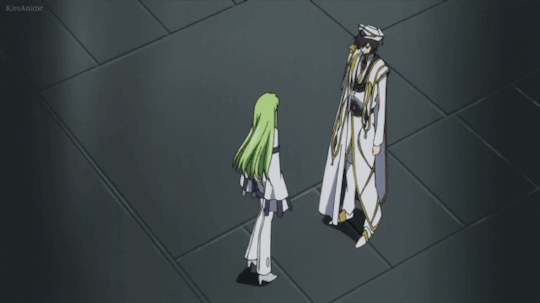
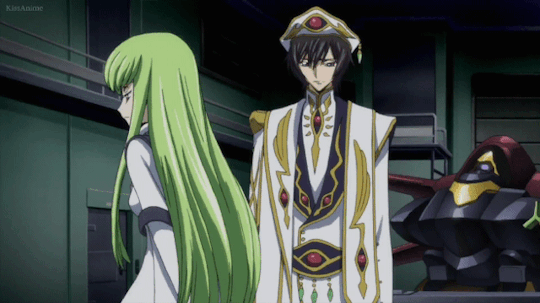
She asked if he hated her after everything she'd done to him (contextually speaking, & not the actual C.C. quote)
Anyway, when Lelouch finds out the terms of the contract... what happens?
He's moved by empathy... Because in his words, "Living just to die is so sad." He's too damn kind. C.C.'s intentions and plans BACKFIRE. It was in this moment that I believe Lelouch starts to understand (like truly 💯 understand) the depth of C.C.'s sadness and her personal tragedy.
He already started doing so in R1 when he saw her many deaths and he said he'll be a demon because she's a witch.
This series has reaffirmed the nature of their relationship as accomplices and partners plenty of times. First it was C.C. reiterating that in early R1, then Lelouch affirms it after the Mao-shooting-C.C.-in-Clovisland incident, and then the one I mentioned where they said they'd be a warlock/demon & a witch.
Now we circle back to R2, where Lelouch learns her true wish and gets to really see her. Like, C.C. in her entirety. From former slave-girl, to Geass-wielder, and then code-bearer.
Their complicated-turned-wholesome relationship has a slow and subtle build-up that mounts to, dare I say, a satisfying conclusion. For me anyway.
Because in the end, Lelouch did motivate C.C. to start living again. And C.C. stuck with Lelouch even if she didn't have to.

And he came to death smiling. 🥺😭

CG isn't about romance.
But if it did have an element of explicit romance between C.C. and Lelouch, I wouldn't have had complaints. It could have been a tragedy still, and I would be happy with it.
“C.C. didn't have to struggle as much for Lelouch's affection and that she got everything handed to her in a silver platter.” <-------- WRONG!
I do believe Lelouch bounces between hating C.C. and needing her. Like a fucking spectrum. And until her true self is revealed to him, I don't think Lelouch saw C.C. as a human being. Just another means to an end.
Lelouch & C.C.'s relationship is as bumpy as Lelouch & Suzaku's, albeit more subtle in its complications. Obviously, the SuzaLuLu dynamic is more fleshed out compared to CLuCLu because duh, CG is Lelouch & Suzaku's story. 😅
I can literally point out every moment where Lelouch is hating on C.C., and when you can tell he's desperate for her help and her presence. (But that's for another post 😂😂) Point is, he does it plenty of times that it's obvious their relationship is far from lovey-dovey hearts and rainbows.
So no, any sliver of implied romance between them is neither forced nor instant. There 👏 was 👏 build 👏 up! 👏
If CLuCLu romance was an actual thing in the show, it would have been so interesting to see the progression.
It's built on a slow but steady train to Love Land 🤣😂 Slow burn at its finest, as I imagine it would have taken two seasons before either Lelouch or C.C. would fess up and confess. Hell, it took them 2 seasons to care about each other deeply in all reality.
If it were a real shoujo romance, it would have been built on a unique trust... you know, the kind that only crops up when you've seen each other's lowest points and still choose to support one another. Unconditional love and all that 🤪🥳
It's not a stretch to say that Suzaku and C.C. saw plenty of moments where Lelouch was at his lowest, rawest moments. Moments where he strips himself of pride and his façade, and he caves to his burdens.
Lovely example of this is the C's World episode,


Also this scene where he calls and begs Suzaku to protect Nunnally...
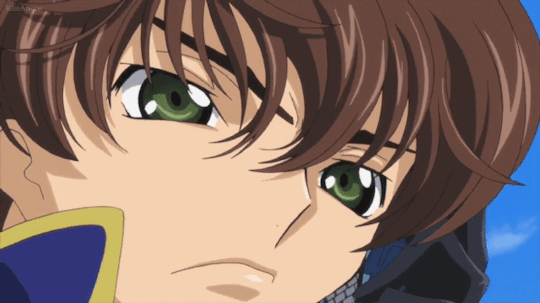
And the times Lelouch grieves and despairs in C.C.'s presence.
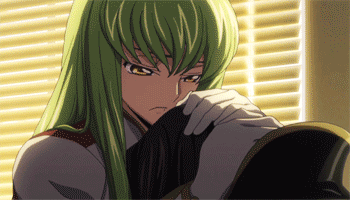
They even added that lovely scene in the Recaps where he's despairing over Suzaku being Lancelot's pilot and having to fight his best friend. And C.C. is there offering him her advice and being the realistic voice.
A Brief Opinion on Re;surrection
The ending of Re;surrection was truly the closing of unfinished business between him and C.C... and as messy as that movie was, I still love that they touched on the profound meaning behind the names C.C. and Lelouch choose for themselves.

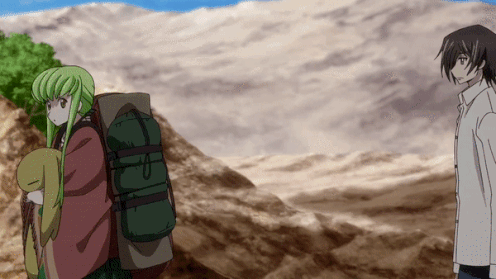
Re;surrection is Lelouch & C.C.'s moment 💯! CLuCLu fanservice at its finest. It's actually a decent (not great) alternate route if Lelouch lives after being killed. Plus, it's kind of obvious now that Re;surrection and the Recap films set it up to be CLuCLu end-game.
Still, it could have gone differently. Lelouch could have stayed behind and let C.C. leave. He had a choice. No one was asking Lelouch to go, and C.C. certainly wasn't goading him into leaving with her. Plus, it's obvious people wanted him to stay. Suzaku and Nunnally especially.
So of all the people he could have chosen to be with at the end of that movie, why her then?
Well, probably because C.C. really does know him and understand him on a level that's not easily achievable by many. Only matched by Suzaku, really. (Even Nunnally could admit to never really understanding Lelouch because her older brother shielded her as much as he could from being touched by the true cruelty of the world).
She wasn't handed his affection on a silver platter and vice versa. It's a relationship that developed mutual trust and understanding, even paving the way to noble sacrifice. Also, their sass is fucking on point.
And honestly, ever since Lelouch chose Geass and his path of blood, he wasn't exactly tethered to the world like a normal human being would be anymore. Both the original and alternate timeline express that wonderfully.
After everything he'd been through and the kind of power he'd acquired (both in the original & alternate timeline), I'd say he now exists on a level that's a little bit on par with C.C... Whether he wanted it or not, he tied his own fate to C.C.'s, in a way, when he accepted that contract and by making the choices that he did.
With that said,
In comparison to the main characters shipped with Lelouch -- Shirley, Kallen, and Euphemia -- C.C. (and Suzaku, honestly) have the edge for a romance with Lelouch. (According to my opinion! 👏👏👏)
Lelouch and Suzaku are opposites... Moon & Sun
Lelouch and C.C. are complements... Moon & Star
I know that's fucking cheesy 🧀🧀🧀 But it's the only metaphor I can think of. 😆😅 (Also, can you tell how pro-SuzaCLuCLu I am?)
All of that ⬆️ got me on board the CLuCLu train. And honestly, I don't want to leave.
#code geass#my half-baked#cluclu#analysis#lol#lelouch x c.c#lelouchcc#lelouch vi britannia#lelouch lamperouge#c.c. (code geass)#lulucc#lelouch of the rebellion#code geass fukkatsu no lelouch#wbad blog#wbad ask me#yo i finally did it
33 notes
·
View notes
Text
Jaclyn Santos
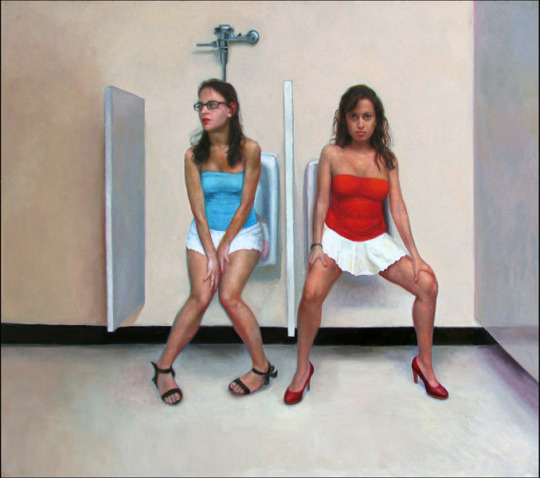
FP: We've spoken about the subject of the male gaze, and even part of the mission statement of FP is to question what it means when women artists control the power of their own objectification. There have been other artists who have paved the way, ie. Vanessa Beecroft, why do you think it is still considered controversial and shocking for a female artist to portray her sexuality as outwardly powerful and/or vulnerable?
JS: While many women artists have displayed their own sexuality in their artwork, every girl and woman still has to confront this topic individually and form her own convictions. It's something we continuously re-examine as we age and deal with new personal struggles. There are so many conflicting messages in society regarding a woman’s stance on her own sexuality and most women are still trying to figure it out for themselves. On one hand, society definitely rewards physical beauty yet, in many other ways, it can be an impediment. Increasingly, I think people turn to media figures as a barometer for their own morality. For the "Shock Challenge" I wanted to generate discussion about the way women are often criticized because of images they present of themselves – particularly the way certain female celebrities objectify themselves by posting sexy personal photos on social networking platforms such as Twitter. Often these photos are low-resolution and snapped from cell phones. I decided to photograph myself in this manner as a sort of contemporary “self-portraiture” and elevate the photos to fine art status by re-contextualizing them. I then displayed the images in the gallery and allowed the audience to physically alter the work in any way with sharpies, which draws attention to the way women are criticized online. I titled the piece, “Triple Self-Portrait in Bathroom,” which references Andy Warhol, an artist known for working with the idea of celebrity persona.
Another reason it may still be considered controversial is because of female competition, which occurs in part due to socially imposed myths of female worth. The scrutiny with which women can judge each other is incredible. Growing up, I wasn’t horrendously unattractive but I did go through an “awkward phase,” and for five years of my life other girls ridiculed me nearly every day. Now that I am older and have grown into my looks, I am condemned by some women because I keep up my appearance, when if I didn’t I would be put down for it. The world sets up a standard for beauty, then criticizes those who admit they struggle with it. I’m willing to honestly examine this contradiction through my artwork.
FP: You've also mentioned isolationism in your statement...a theme that seems to be prevalent in American culture today, particularly because of the internet, and our ability to be alone yet still remain virtually connected. Can you speak about how that relates to your work?
JS: I think the piece I did for the "Art That Moves You" challenge on WOA, "11x17", touches on the issue of isolationism in contemporary urban culture. It also examines voyeurism, a somewhat natural response to isolation. While most people do not spy on their neighbors' with binoculars, voyeurism has transcended to the internet in a more diluted version, where many of us use social networking platforms and blogs to comment on the lives of those we see on Television and other forms of Media. The pseudo-anonimity of the Internet offers protection while potentially causing further isolation. I think this has affected women in a very specific way. Oftentimes women display sexy images of themselves in an attempt to garner attention or praise, yet this often backfires into “unwarranted” criticism. Too often photos or explicit videos are released without consent.
FP: In regards to the nudity on the show...it really was a missed opportunity as you said for the production to discuss the current state of feminism as it pertains to the art world. Such a HUGE topic and yet (for the sake of time constraints? titillation of tv?) Bravo chose to edit down your provocative "shock value" piece to a hot girl defaulting to her own voyeuristic sexuality more than anything else. How did you feel about that? What could they have done to further the dialogue? What do you think would have happened if say one of the male artists had asked to photograph you naked or had photographed themselves naked...do you think more or less would have been made of that episode?
JS: So far my character has appeared very one-dimensional. The fact is, I am not a "bimbo" in any capacity. Instead of portraying my true personality, they jumped on every opportunity to dumb-down my character. I was very disturbed by the way my piece, “Triple Self-Portrait in Bathroom,” was depicted on Work of Art as well as the way my character and art making process were completely distorted. I don’t think this was done because of time constraints; rather, it was done to create a very simple story arch that any casual viewer could follow. This was problematic because it made me look like I default to nudity without any thought behind the concept of the work, which undermines my art process. I am not shy about my appearance as they suggest, but I did feel incredibly vulnerable being taped in the nude. There's a huge difference between presenting a photograph that I have carefully selected and composed, verses handing over raw footage that can be manipulated in any way whatsoever. I was very hesitant about doing this but I believed in the piece and the producers said they needed the footage only to display my process. Yet in the episode, the rest of my process was barely discussed, then it was falsely made to look as though I was not responsible for conceptualizing the final product.
The treatment of sensitive issues on set was different for the boys. A male contestant was not required to film himself ejaculating on a piece of art, which caused some tension on set.
FP: In The Art of Reflection: Women Artists' Self-Portraiture in the Twentieth Century, Marsha Meskimmon states: "If the task was to find oneself, then the crisis for the postmodern subject is that nowhere is home, everything shifts and changes. What is the reflection in the mirror that 'vanity' holds? She refuses now to be the 'site' of another's desire and reflects back to you the insubstantiality of your projections."1
Do you think it's possible for the physicality of an attractive female artist to ever be a separate entity from her work, particularly if she is the subject matter of her own work? Is vanity and the mirror important to an artist?
JS: To answer the question, if the womans' chosen subject matter deals with nudity or sexuality in the form of self-portraiture - i.e. Marina Abramovic, Cindy Sherman - no, I don't feel the artist's appearance could be a seperate entity. If the subject matter involves sexy images of other women or the imagery is more illustrative - i.e. Lisa Yuskavage, Hillary Harkness - I think it will be much less of an issue. I think it can only be a non-issue if the artist completely plays down her appearance or doesn't acknowledge it in her work. Yet this doesn't necessarily mean it won't be an issue. At a college critique, a guest artist was invited to our studios and the minute he saw me, before he ever saw my work, he blurted out, “you are the artist”? “You don’t look anything like an artist... YOU are as interesting as your work." This sort of thing happened so often that I made a decision to incorporate my appearance into my work.
FP: Another great quote from this same book: "One of the key issues in feminist theory has been that of women's voice in male language. To what extent is it possible to enunciate a truly different position when you are already within the structures which mark your difference?"2 Do you think the art world is still a predominantly masculine one or is it now equal...what has your experience been thus far?
JS: While certainly more doors are now open to female artists, there’s no denying the highest paid artists are all still men. There’s also no denying that the vast majority of Art collectors are men. I worked for Jeff Koons for two years and there were very few women who came in to purchase work. Granted, this may simply be because men still make more money than women and if women had more spending power, more of us would invest in contemporary art. I think it is a challenge to make work about women that can appeal to both a male and female audience on the same level. We respond to images of the female form rather differently, and it's hard to subvert the provocative aspect of a sexualized image.
FP: The high-low art status is interesting in your pieces --do you think anything can be elevated to art status by redepicting it?
JS: Yes, it can, if done in a particular way. Intent is important -- low art must be appropriated in an intelligent way. For instance, a high school student copying his incredible hulk comic book is entirely different than Jeff Koons appropriating the hulk into his personal iconography.
FP: You worked as a studio assistant to pop art icon Jeff Koons. Has he influenced your work? And who are your biggest influences?
JS: Before I ever worked for Jeff Koons, I loved his Made in Heaven series as well as his Luxury/Degradation series. Speaking of Made in Heaven, that’s a prime example of low-art being successfully elevated to high -art. Jeff Koons is brilliant and there are very few people who love art as much as he does. Working at his studio was an incredible learning experience. It was so interesting to see how he spoke with visitors about his work and I learned an incredible amount of technical skill while at his studio. Jeff talked "acceptance" quite often. We must accept who we are -- our individual and collective pasts -- our shortcomings, failures, weaknesses, and strengths. As artists, we must be honest with ourselves in order to make work that is personal yet transcends to a wider audience. So many artists have influenced my work, but to name a few: Damien Hirst, Marilyn Minter, Laurel Nakadate, Liz Cohen, Vanessa Beecroft
FP: Where do you see your work evolving now that you've participated in Bravo's Work of Art? Has the show inspired you in a new direction? What's on the horizon? Where can we see your work next?
JS: Participating in the reality show was an experience like no other. It really made me more aware of the internet as a portal for criticism and dialogue in fine art. It also opened my eyes to how incredibly critical and voyeuristic our culture is, and I think I would like to comment even further on these qualities in my new projects. The show also allowed me to branch out into other mediums when appropriate, something I think I may have been afraid to do before. Since the show wrapped up, I’ve been continuing my series of figurative paintings as well as a new series of explosions that respond to the war and oil spill.
Check my website, www.jaclynsantos.com for frequent updates of my new work.
2 notes
·
View notes
Text
Just Finished RWBY Volume 4...
...and I actually liked it?
[Spoilers Ahead, Y'all Know The Drill]
I mean, from what I've heard the Volume gets a lot of flack but honestly? I don't think it deserves it.
Yes, this is the first volume without Monty, and yes, the fights lost a bit of their momentum compared to earlier volumes, but aside from that... it's actually pretty good?
Alright, let me give you the play by play character style.
Ruby Rose
There goes my baby... off to destroy evil.
Ruby hasn't changed much, at least to a noticeable degree, compared to the rest of the cast. Actually, no, that isn't true, she just hasn't changed in a way that would force her overall character to noticeably shift. And I think that's fine. She's still a child at times, and is still really optimistic. But the thing is, she has matured. She doesn't immediately jump head first into danger like she used to, and it's clear she's still trying to process what happened at the Fall of Beacon. And yet, she's pressing on, and I'm glad that she and the rest of Team RNJR have each other's backs.
My only concern is what will go down in Mistral...
Weiss Schnee
Welp, Jacques Schnee, congrats! You've joined Cinder and Adam on the hit list I'm writing up!
The a-hole aside, I really like how Weiss played out this volume. According to what I've heard, volume 4 took place about 6-8 months after Beacon, so I'm kinda sad that Weiss was stuck home for all that time. On the bright side, we get a look at her progress on her summons, which looks to be coming along quite nicely. Then we see the concert, and ooh does that make my blood boil. I'll get to Jacques in a bit, but personally, I'd have no qualms watching him burn, figuratively, or literally.
Fly, Weiss, fly from the coup. Give your bastard of a father the metaphorical middle finger he deserves! (P.S. Klein is best dad.)
Blake Belladonna
Oof. I hurteth.
So Blake tends to stay away out of fear that she'll hurt her friends (i.e. some alternate version of survivor's guilt). In order to make amends from her point of view, she heads home to Menagerie. And once again, we're reminded on why humanity sucks sometimes!
Humans: Here, have this desert island for your large spanning species that covers just as much ground as we do.
Faunus: But... but it's so small!
Humans: Is it? Oh well, we can't have everything!
Me: Y'all LITERALLY have several freaKING CONTINENTS-!
*Ahem* That said, Sun came along! And we met Blake's parents! But first, Sun; I'll admit, I had mixed feelings about him being there at first, but that was mostly because Blake was being angsty and despite Sun's best intentions, virtually nothing he did help. Although, towards the end of the Volume, he managed to help Blake realize why her way of thinking was wrong, so props to him for that. Uh, Sun, could you maybe knock like a normal person? Wait, Blake, DON'T SLAP HIM FOR IT!!!
Ah, Kali, you're just as chaotic as Sun, oh dear... Ghira, never change, man. Never change.
Yang Xiao Long
Oof. I hurteth again. (ADAM!! LET ME DESTROY YOU, DANGIT!!!)
So Yang has been... adjusting to life after Beacon and without an arm. Oh, and Adam gave her PTSD! Isn't that just swell?
[When the find your corpse it'll have Wilt running through your spine and your skull severed with bullet shots from Blush I swear-]
Luckily, Yang gets a prosthetic from Atlas. I was afraid she'd reject it, but it's actually kinda nice to see that she takes to it rather well. And after seeing Oobleck (YAY!) and Port again, it's cool that she's just trying to find her footing. Though, Tai, you might wanna consider NOT flying to close to the Sun Dragon, capiche?
And all this culminates in Yang finally getting back out in the end of the Volume, hoping to find some answers. Hopefully she takes Tai's words to heart.
Jaune Arc
IT'S BIG BOI SWORD HOURS!!
But seriously, it was... kinda off-putting to see Jaune act so... morose. Granted, we all know why (PYRRHA!!!), but still. I'm glad his team is looking out for him and that he's slowly starting to recover like everyone else. His conversation with Ruby in Kuroyuri was also really touching. Come to think of it, didn't Blake have a similar conversation with Sun? The PARALLELS!
Also, that upgrade, tho. CUT THAT NUCKELAVEE INTO DUST, MY DUDE!!!
Nora Valkyrie+Lie Ren
You can't talk about one without bringing up the other.
Guys, this was as much a Renora volume as it was a RWBY-Post Beacon volume. The Fall triggers some odd behavior in Ren, but we figure out why pretty quickly once we reach the Kuroyuri episode.
First, young Ren and Nora... adorable!
Second, I was NOT ready for when Nora had to talk Ren out of charging blindly at the Nuckelavee. The slap. The way Ren sees young Nora and then sees current Nora. Nothing could prepare me. Nothing.
They are so SOFT together, it's just... <3
New Characters (and Old ones, too)
Lightning round, baby!
Qrow Branwen. So Qrow serves as the inside man. He knows what's been going on, and he fills the rest of us in. We also know why he tends to keep his distance, because his semblance brings bad luck to allies and enemies alike. The poor birb. Glad he managed to survive Tyrian!
Jacques Schnee. Egotistical manipulative piece of garbage whom I will not feel sorry for once he's put in his place. 'Nuff said.
Whitley Schnee. Mixed feelings. Mixed feelings everywhere. 'Cause on one hand, I've seen plenty of the fandom's takes on his character putting him in a positive light, but on the other he starts getting kind of unbearable after Weiss loses her title as heiress. Then I have to remind myself that Whitley is the "Fawn" reaction to trauma. Weiss is "Fight," Winter is "Flight," their mother is "Freeze," and Whitley is "Fawn." Stuff like that helps me contextualize that when Whitley says things about their dad like "It's foolish to not do what father asks," or "It's barbaric. It's beneath me. Beneath father," Whitley's not just saying that 'cause he's a bit of a brat. That's his coping mechanism to the abuse Jacques put him and the rest of his family through, and it's probably been a long time that he's been telling himself stuff like this so he can keep in his father's good graces and not risk getting a slap to the face like Weiss, while also trying to deal with the fact that Weiss and Winter get a freedom that he never had a chance to get. And you have to remember that Winter and Weiss were abused to, and that trying to blame Whitley's current condition on the two of them doesn't make things any better. They're not obligated to care about Whitley just as much as Whitley isn't obligated to care about them. It would be nice if either one of them could get through to him, but they were all trying to combat Jacques in one way or another. Whitley was just the odd one out. And if you really think about it, the biggest brain play you can take from all this is to blame it solely on Jacques. I swear, when I get to Volume 4 in my NWBE AU, one of my top priorities will be getting Whitley the ever loving hell out of that accursed mansion alongside Weiss, mark my words.
Klein Sieben. Ladies and gentleman, the only valid man under the Schnee roof! And a Seven Dwarves reference no less. Thanks, I love him! Glad he helped Weiss escape his father's clutches.
James Ironwood. Oh boy, boss man is starting to lose his grip on things. Granted, he's trying to do the right thing, but it's clear his paranoia is getting to him. You know crap is getting bad if the most valid person in all of Atlas simultaneously needs to be told to get a grip from Jacques of all people (especially if he's making a point). Hope this doesn't trigger a downward spiral...
Ghira and Kali Belladonna. Ghira is done and Kali just wants to have fun. I love their dynamic and interactions with Blake and Sun! It was a nice wind down from everything else going on, though I don't think that'll last for long.
White Fang. So we got three more WF members: Fennec, Corsac, and Ilia. The Albain brothers are sleezeballs already, since they're working with Adam and all. Ilia's working with them too, but I'll have to withhold my judgement since she appears to have an as yet undisclosed connection to Blake, but I don't want to get my hopes up since she already stabbed Sun, so... Low expectations, but still expectations.
Salem's Group. Yup, Salem's a villain alright. I'll be keeping my eye on her, she just reeks of trouble. Cinder apparently lost her voice... eh, probably for the best. Emerald, Mercury, get the ever-loving FRICK outta there, you're clearly out of your element! Hazel, you're... fascinating. Neutral Evil, perhaps? Watts, you're on my radar, especially with the last episode of the Volume. And Tyrian... well, he's clearly beyond the point of no return, entirely devoted to Salem, and his psycho-sadistic tendencies are enough to freak Cinder of all people out. Needless to say, I hope something or someone takes care of him before the damage becomes irreversible.
And for now, I'll wrap this up with Oscar Pine. I'll admit, it was interesting how they set up Oscar's character as a slow burn this Volume. We learn he lives a quiet life with his aunt in a barn, and at first we're wondering "Who the heck is this kid?" But then Ozpin shows up and suddenly everything is like "Oh... wait, WHAT!?" So yeah, Ozpin just brought another child into thia conflict. At least they're both not happy about it, and hey, they met Qrow! Hopefully that keeps things from getting too crazy down the line. We still need answers, after all.
Well, those are my thoughts. Sorry they took so long. Hopefully Volume 5 won't be so hard to complete. Well... cheers!
-Mathewton, the RWBY Newbie (15 May 2020)
#rwby#rwby volume 4#rwby volume four#rwby vol 4#team rwby#team jnr#team rnjr#cinder fall#emerald sustrai#mercury black#tyrian callows#hazel rainart#arthur watts#jacques schnee#whitley schnee#klein sieben#james ironwood#oscar pine#rwby ozpin#rwby salem#qrow branwen#i just realized i forgot about Raven#yeah... she ain't a good mom#and i question her motives#if what tai said was anything to go off of... we might be in trouble#taiyang xiao long#liveblog#rwby liveblog#kinda#rwby-nwbe
35 notes
·
View notes
Text
Don’t Miss
I had to go over this scene again and I was surprised with what I realised. Going over it again without being anxious really makes a difference 😂
So this scene:
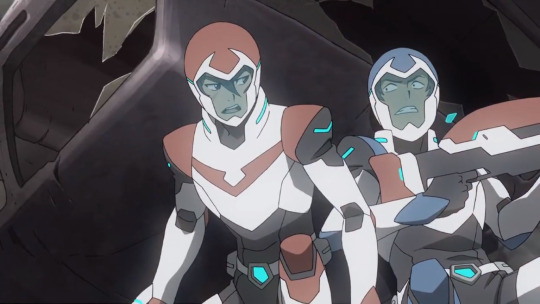
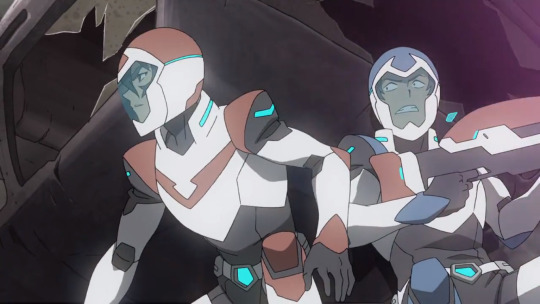
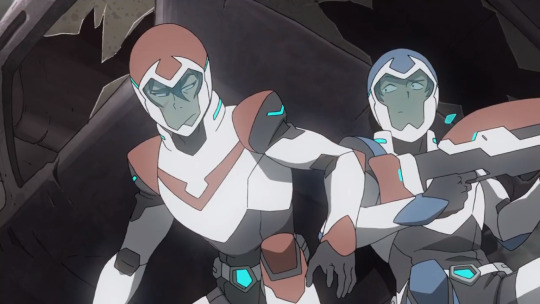
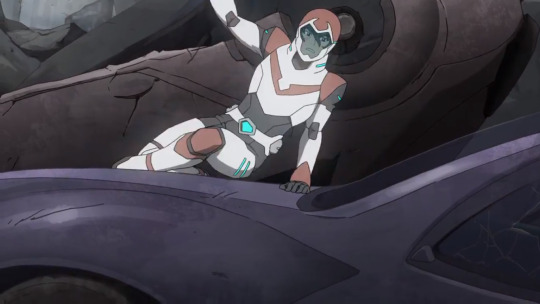
Keith is not being mean here. He was actually provoking Lance, he was challenging him.
Look, the people who are like "wtf Keith, you know Lance won't miss. You should know better, seeming as he shot a knife before it sliced you"
You are totally right! Keith does know. Just, don't automatically assume that Keith was being mean or off. His expression and tone don't match it.
Keith does know Lance is an excellent shot.
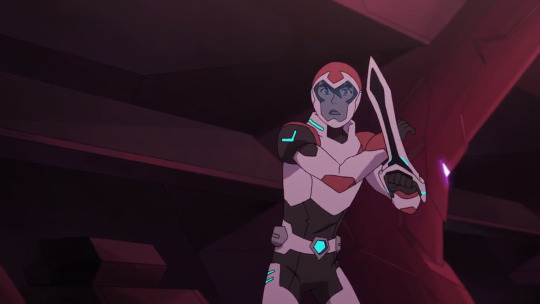
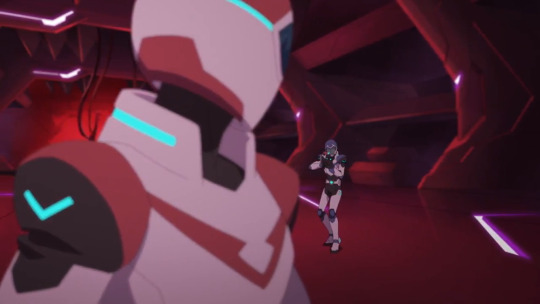
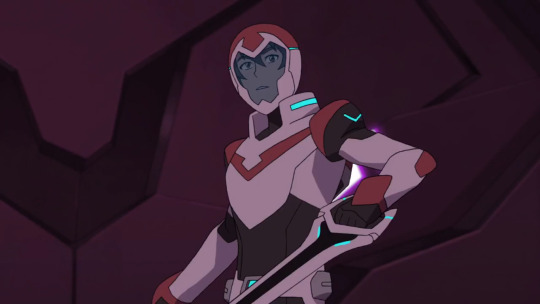
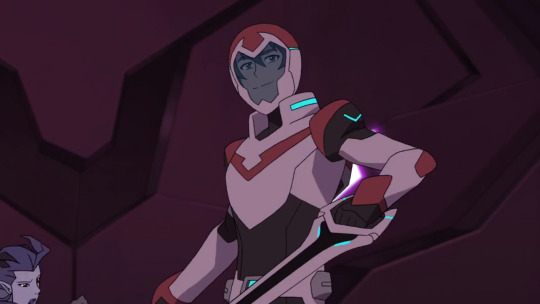
Keith also knows Lance's potential. That wasn't lost this season.
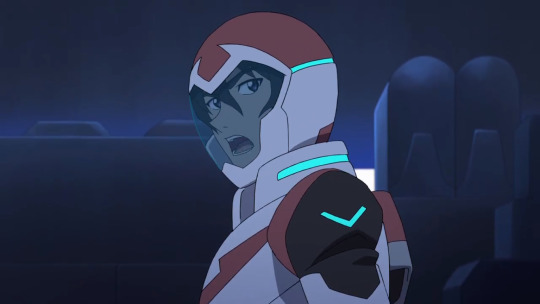
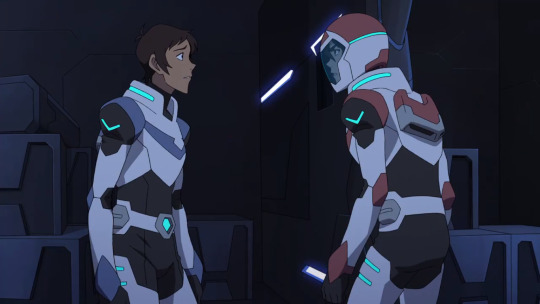
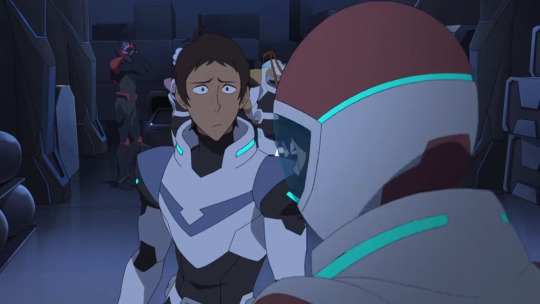
Keith was still building Lance up this season. He was doing that in here by exploiting their old dynamic; getting under the other's skin.
Rest lies under the cut:
We know that Lance likes to prove people wrong, it's a way of proving himself wrong. That's what gives him fuel. It's why he pushed himself to be a good pilot. We saw that majorly in the Family Feud episode:
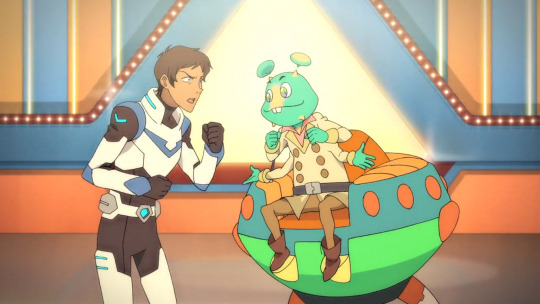
He was pumped, enthused, determined
Though he did give in, when he got scared
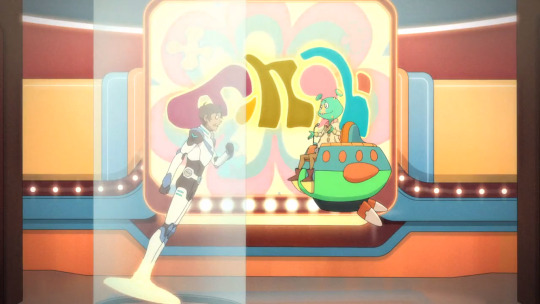
"I wasn't listening to that. You know I'm the dumb one!"
Keith knew that provoking him would get a rise out of Lance because they used to be like that. Lance especially knew what got under Keith's skin.
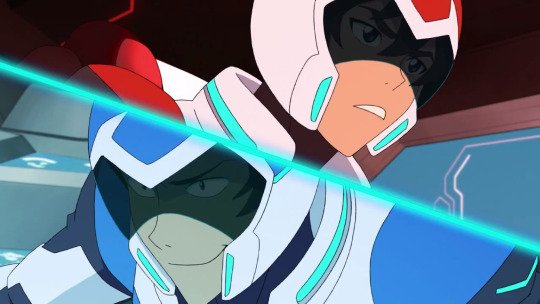
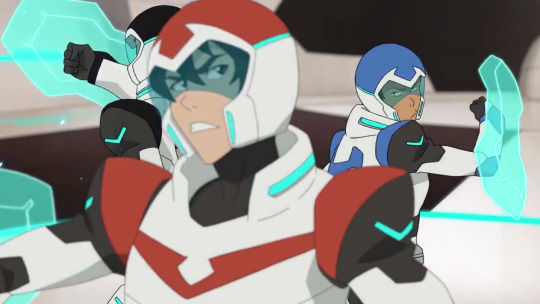
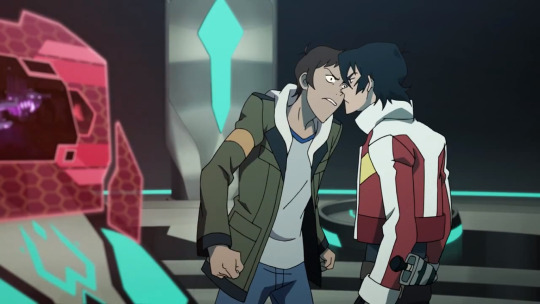
Lance always challenged Keith, now Keith is doing that to Lance
But it's different now. These two still have the dynamic of S3, Keith knows Lance is insecure, Keith knows his potential, Keith also wants Lance at his best. So what better way to get Lance enthused that to challenge him?
The roles have been reversed. Keith is now the one challenging Lance
This is honestly so fucking awesome.
Keith, being the team leader now, knows each persons strengths and weaknesses, he is exploiting this knowledge here. So getting under Lance’s skin, challenging and provoking him gets Lance to play to his strengths. It’s what Lance did to get attention.
Keith knows that Lance has insecurities
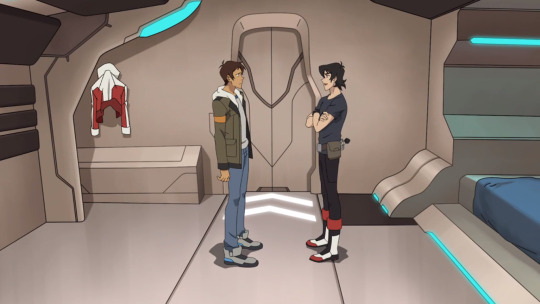
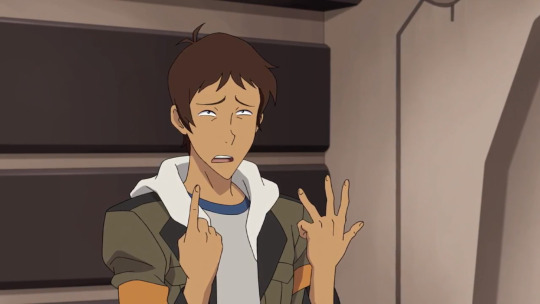
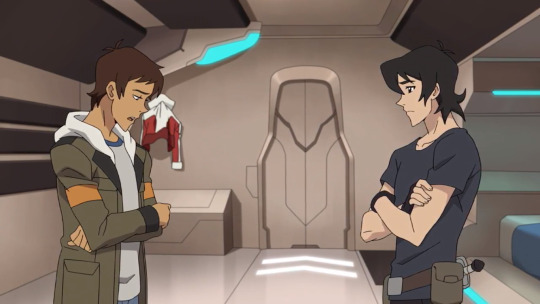
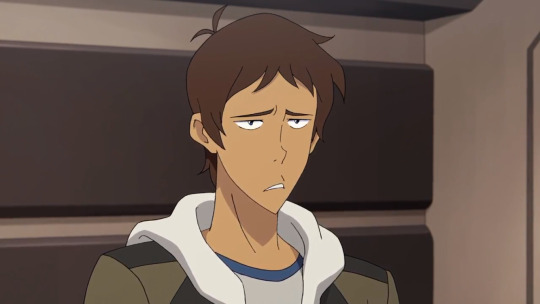
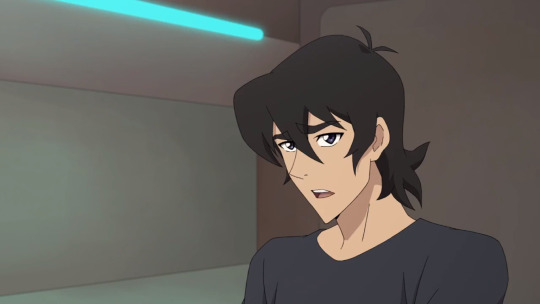
He knows Lance has a weakness. But also in relation to the bedroom scene, Keith knows Lance's strengths. That is why Keith said things will work themselves out, then proceeded to step aside and left.
Lance is giving up on himself though.
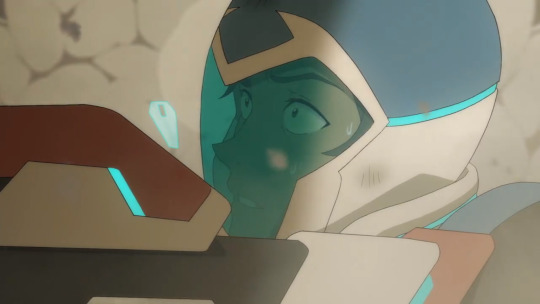
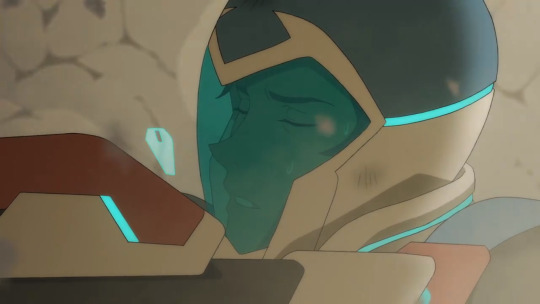
But Keith continually showed that he is riding a lot on Lance and putting the most faith in him, despite Lance being unsure; of himself and of Keith's intentions (if he will leave again)
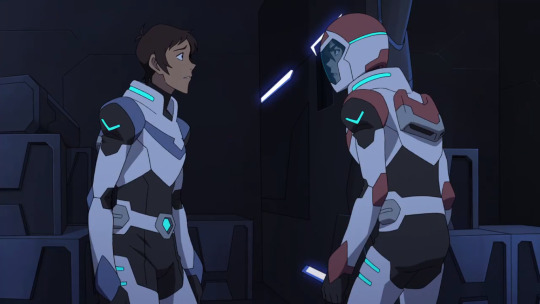
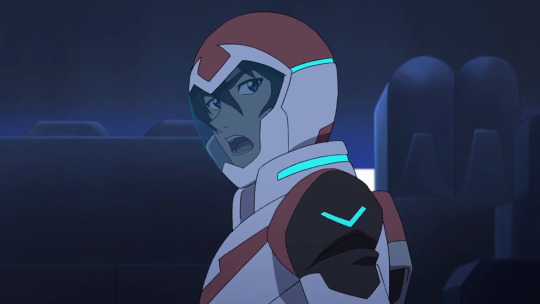
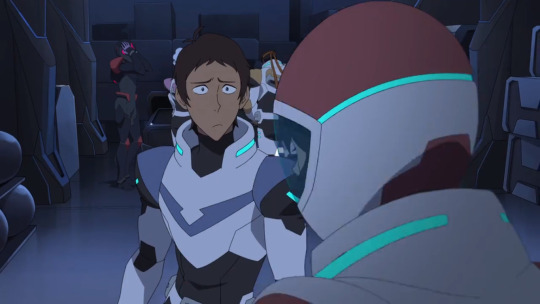
Keith and Lance always know what hits too close to home with the other. Hence why we still get this
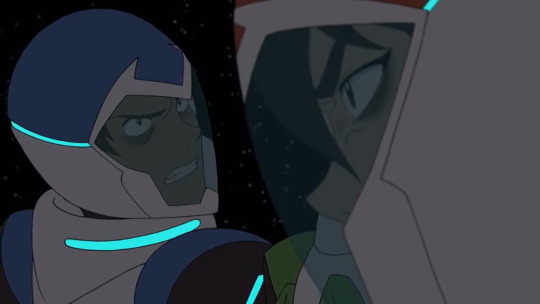
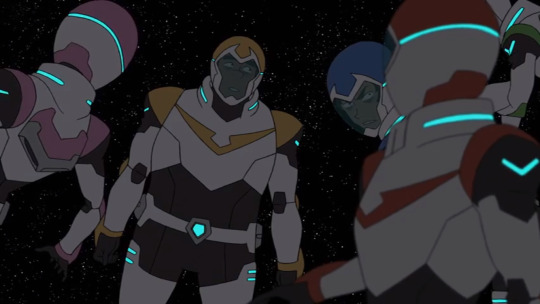
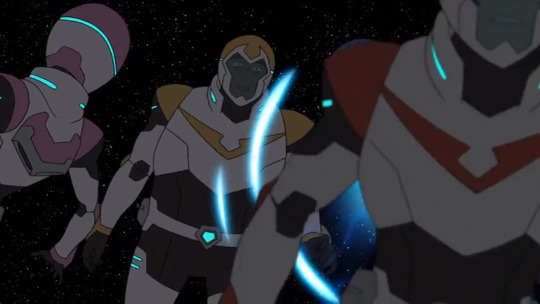
Keith and Lance are bad at communicating at times because Keith used to be reserved, always better at actions rather than words and Lance always gets mixed feelings/emotions when it comes to Keith, especially when it seemed to hurt his pride. They are unsure about the others intentions and then have miscommunication and they end up hurting each other.
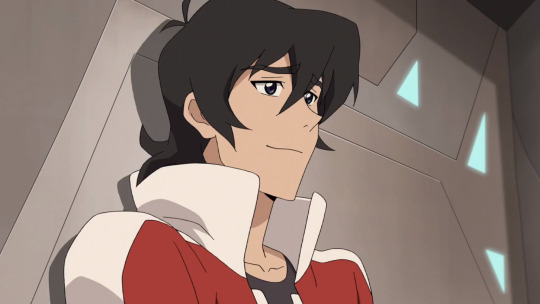
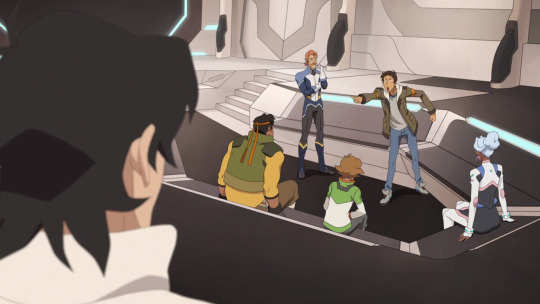
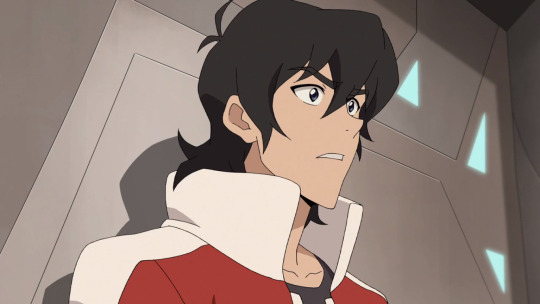
Keith is working on his words
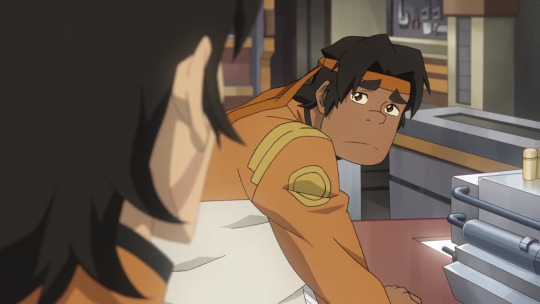
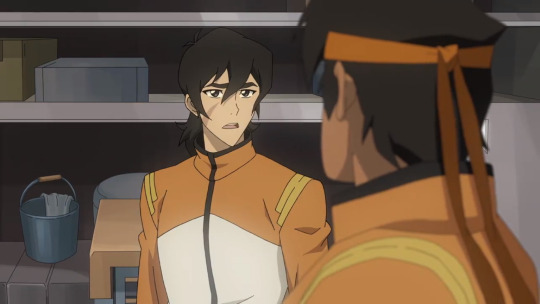
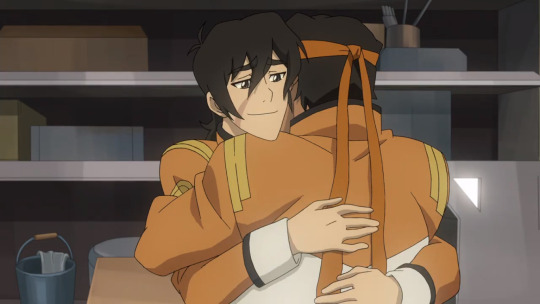
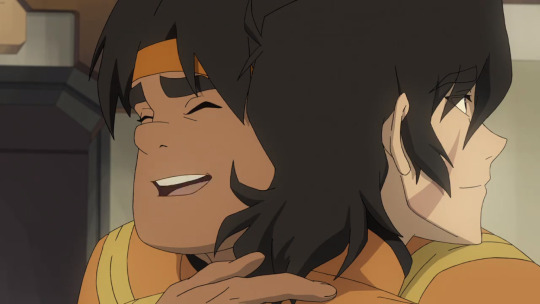
Lance is finding himself still
Lance and Keith have a lot of talking to do. But the roles have switched slightly.
In this scene
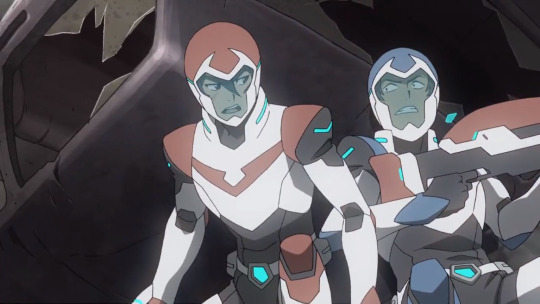
It parallels them in 0107
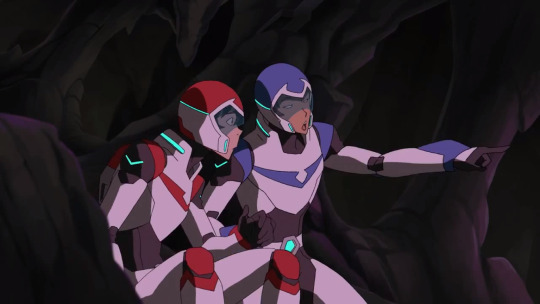
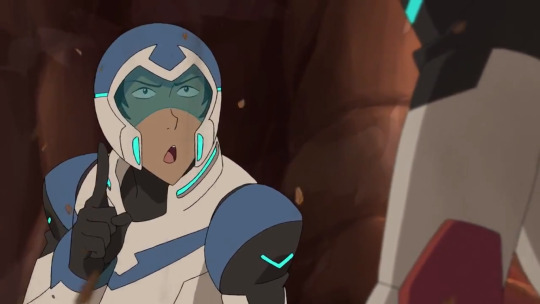
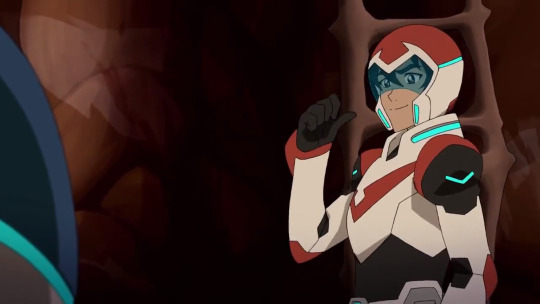
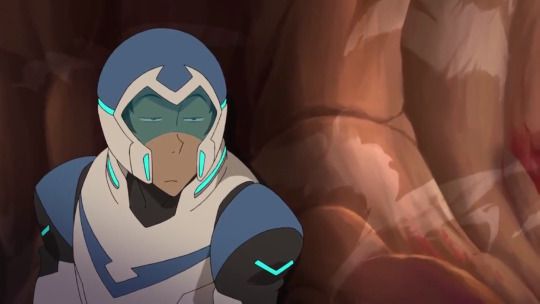
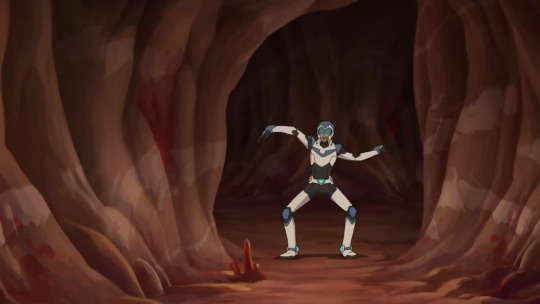
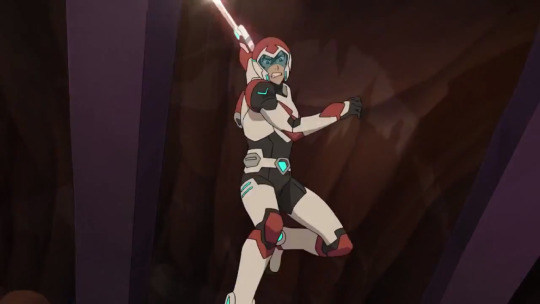
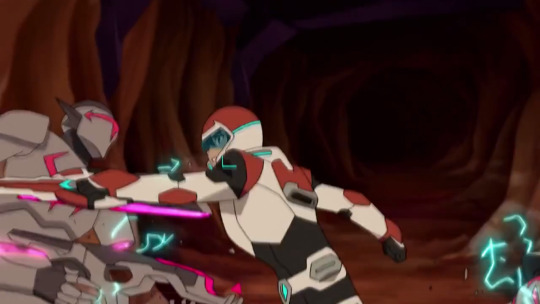
Then of course is brought back up again with Pidge while Lance is the lookout (funny as Pidge is also the look out)
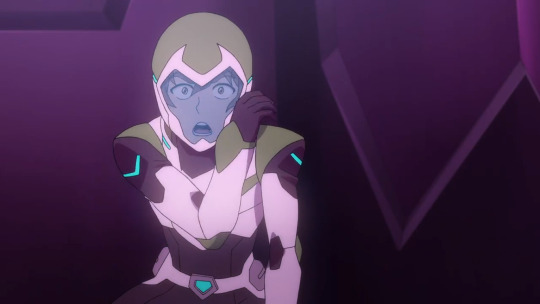
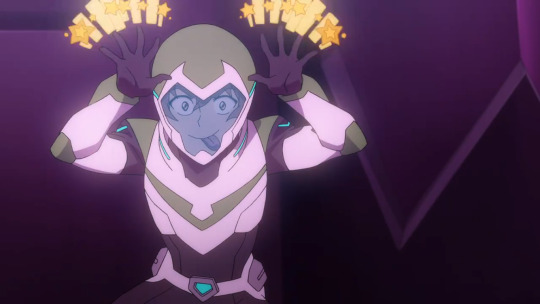
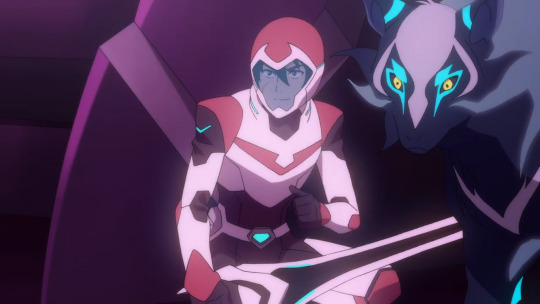
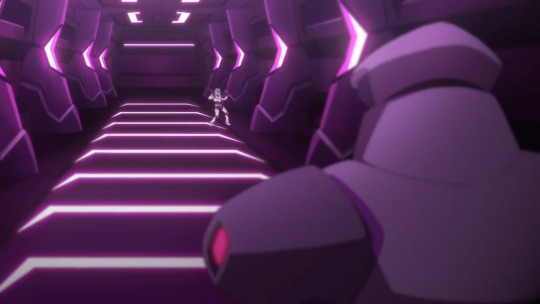
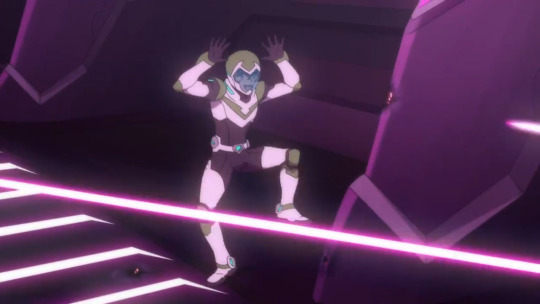
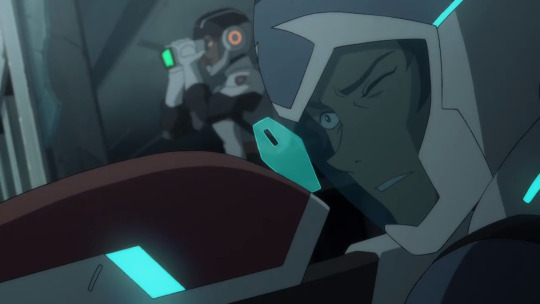
But in this scene I'm talking about the role change. Keith is giving the command, Keith is the distraction whilst Lance follows command and attacks. Why can't Keith also be the one who is getting under Lance's skin like Lance used to with Keith?
Keith is teaching Lance what he has learnt now. Lance has always followed in Keith's footsteps
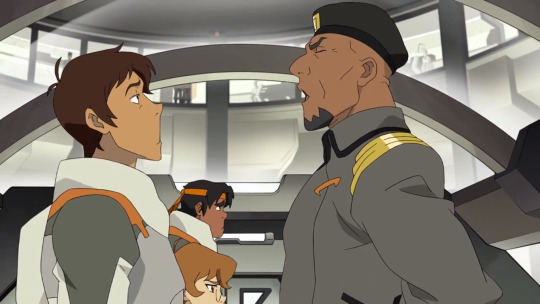
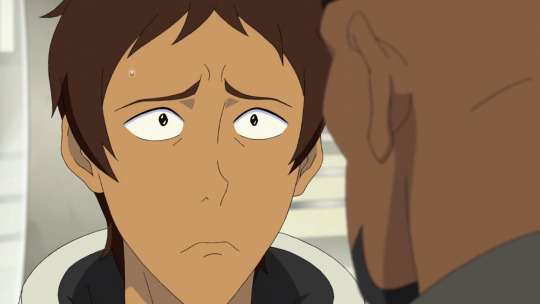
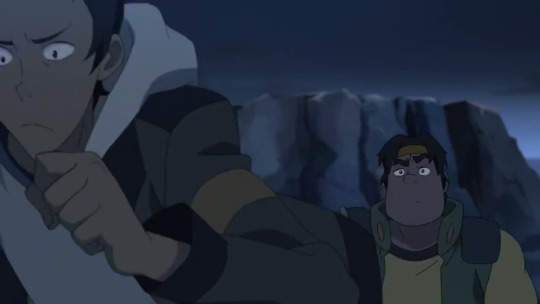
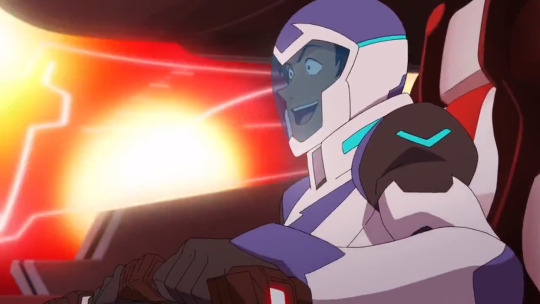
Lance used to strive to be on par with Keith. Then he grew and encouraged Keith to do so.
That is their dynamic. One grows, that person then builds the other up so they are neck and neck.
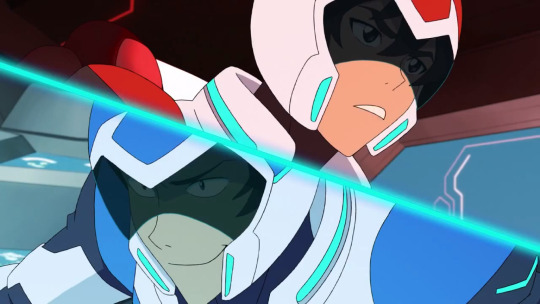
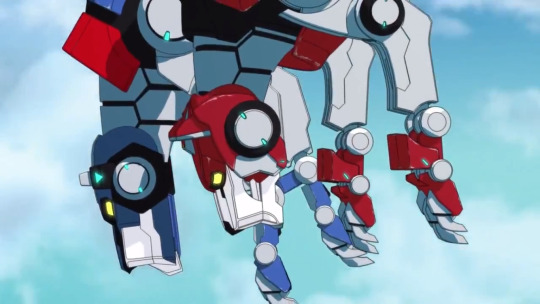
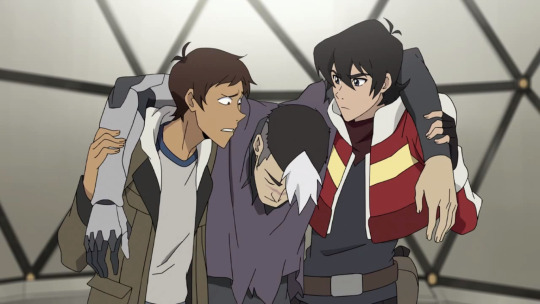
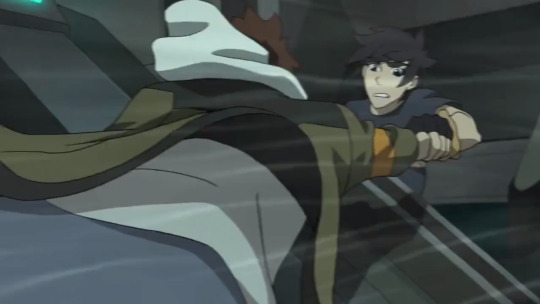
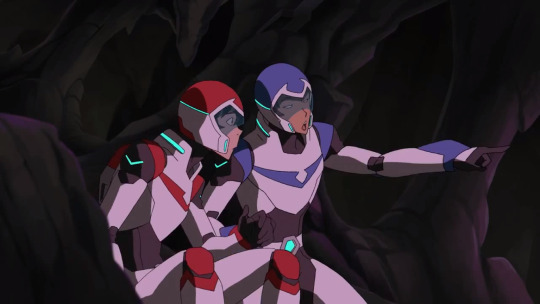
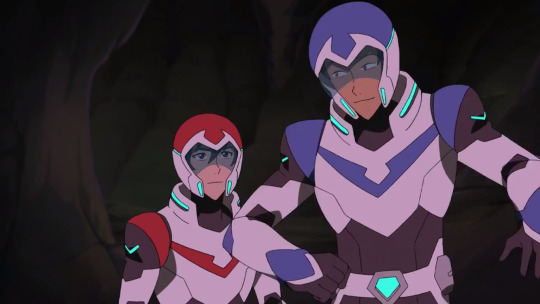
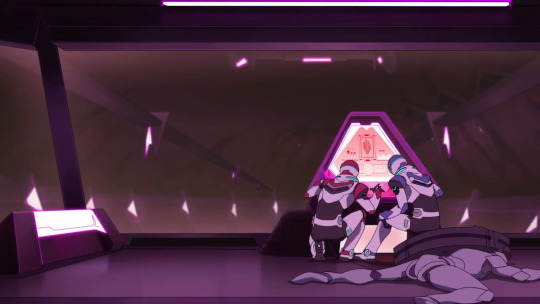
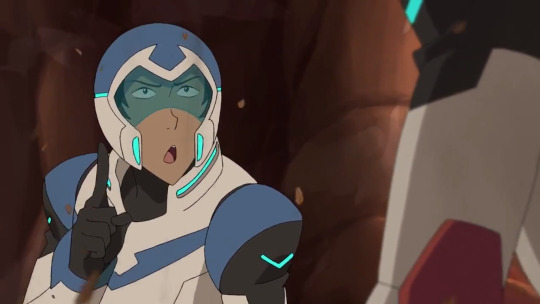
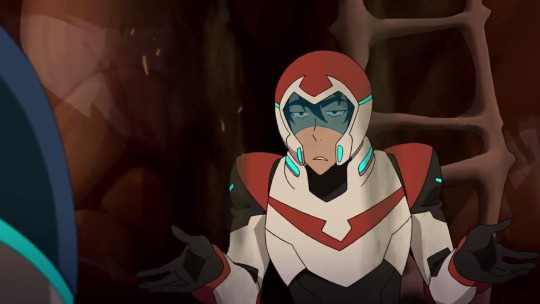
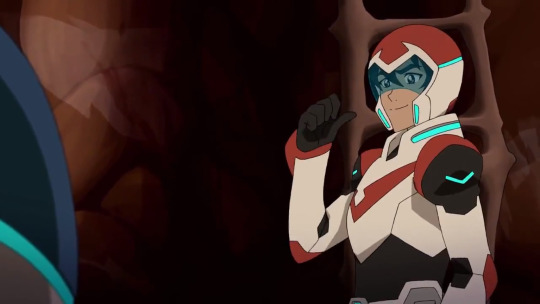
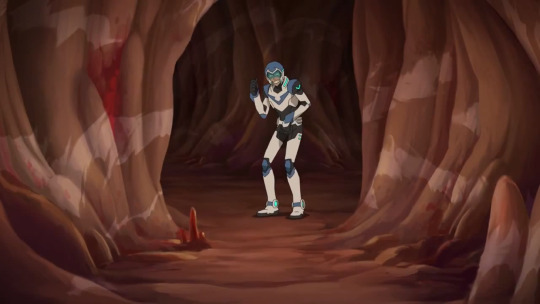
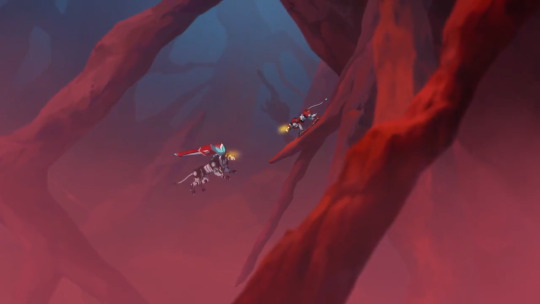
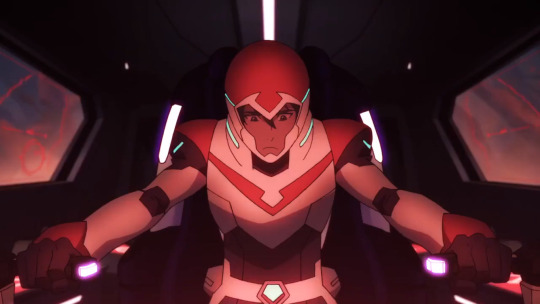
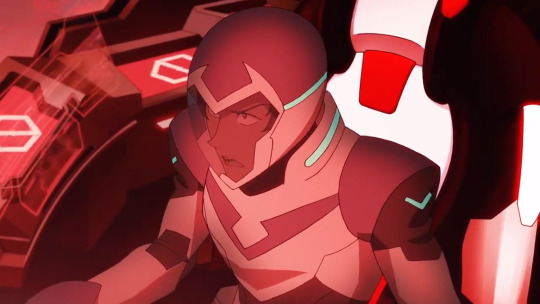
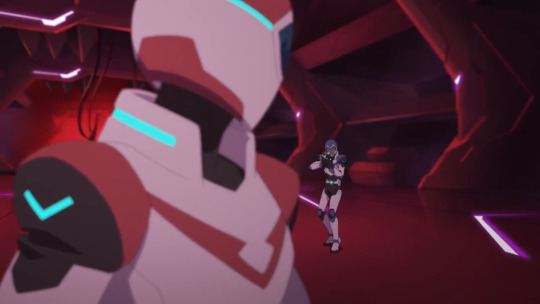
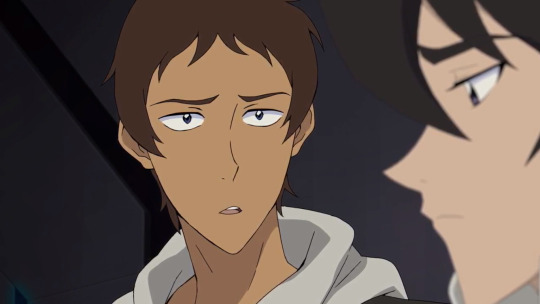
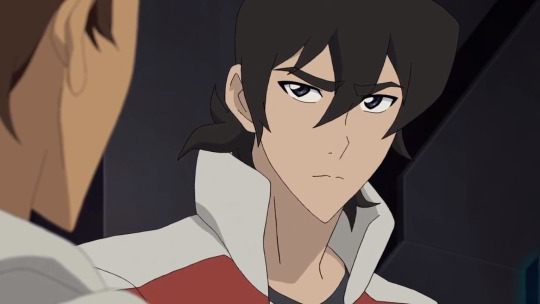
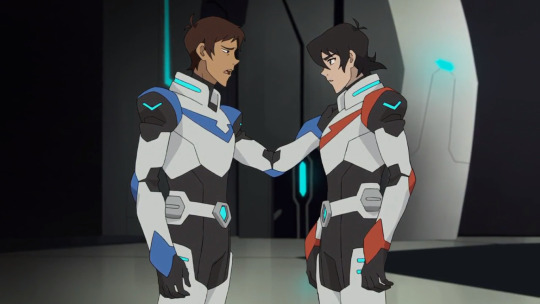
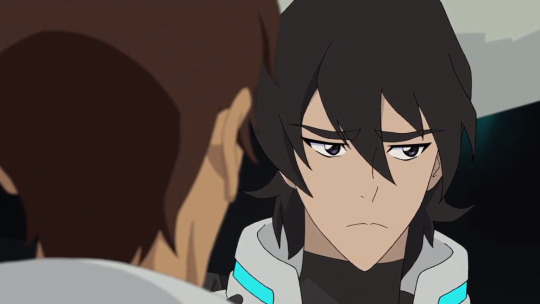
This dynamic was there all throughout season 7 because Keith is more open now. Keith knows Lance is struggling and he feels bad about leaving him. Keith is encouraging to follow him in his footsteps.
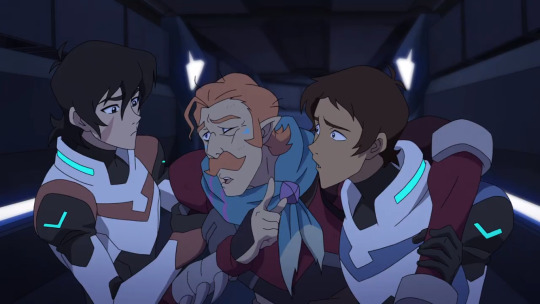
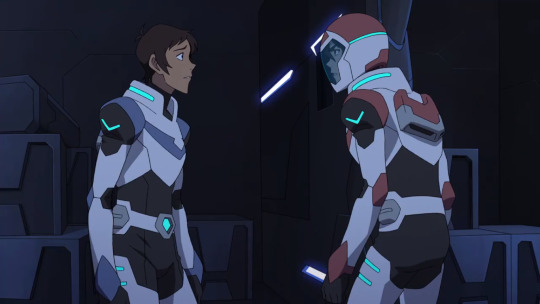
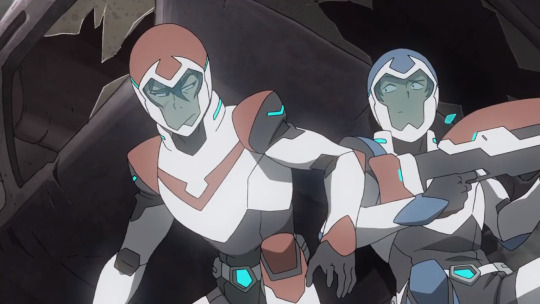
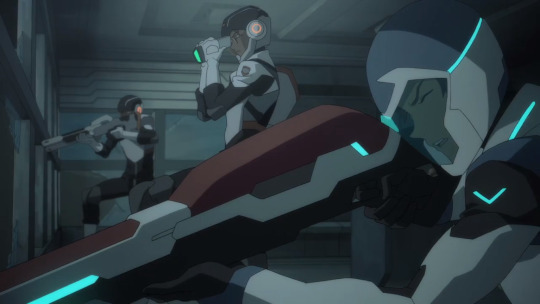
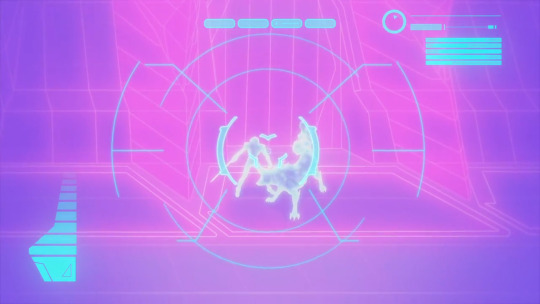
When Keith said "Don't miss" it wasn't malicious at all, quite the opposite really. Listening to it alone is like a tease. His face also looked too funny for it to be harsh. The fact that Keith turned back to say that as well means something a little more.
I'm 99.9% sure that Keith did that to encourage Lance. Keith is just so awkward with how he gets things across, especially to Lance.
It is honestly a little similar to how awkward the A//urance scene was
Keith is unsure but he knows Lance and he was playing into his weakness to get out his strength. And it totally worked!!
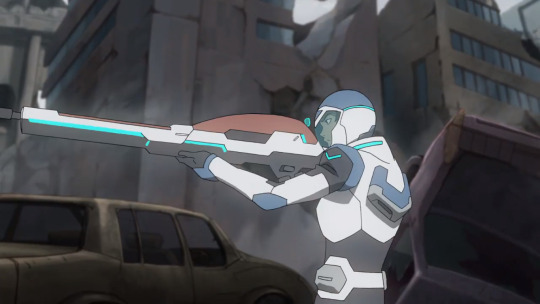
Lance got to use his sniper as well!! (a.k.a indicates his growth and he used it a lot this season because Keith needed that from him ;) )
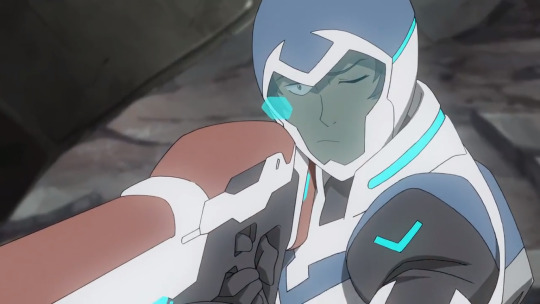
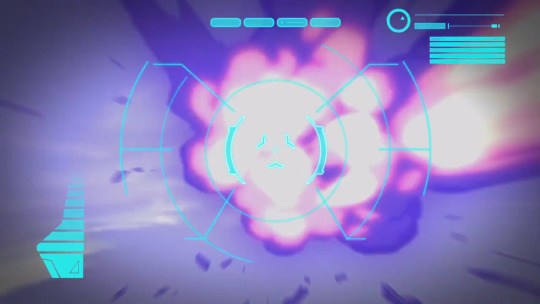
Lance was curt, precise and took those drones down in the fastest time we have ever seen him do something like that, he then proceeds to take down an extra drone, which was right by the rest of the team and kinda out of his peripheral vision.
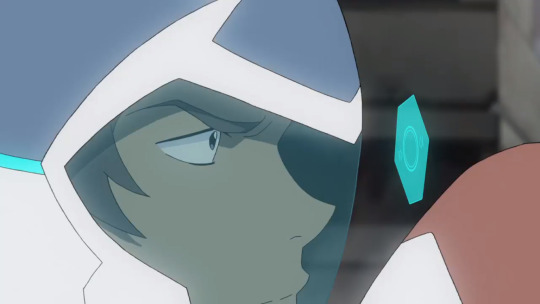
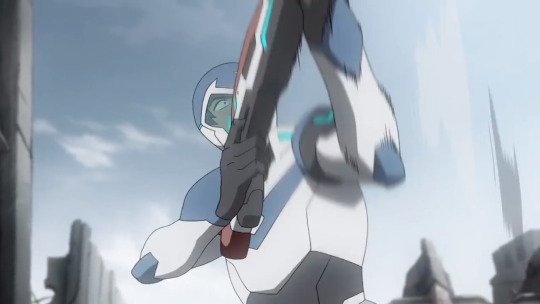
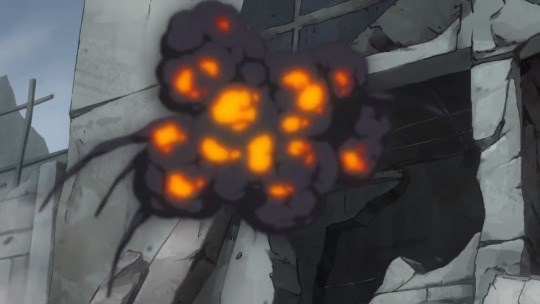
Hunk and Pidge are dumbfounded.
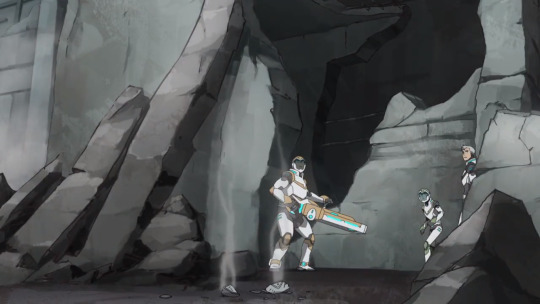
Lance's sniper hadn't yet finished whirring both times (taking out the first three and then that last one) which means he started firing before the gun was ready. It was awesome, seriously. They make a lot of emphasis on these scenes with Lance, it's because he's in his element.
I felt something so different this time though. Not just because Lance was swift and fast, but there was something so off and hollow about it.
I mean, I know Lance is the person who does what needs to be done at the end of the day and doesn't ever gloat about those awesome feats.
Let me compare it to 0210
He was insecure throughout half of Beta Traz
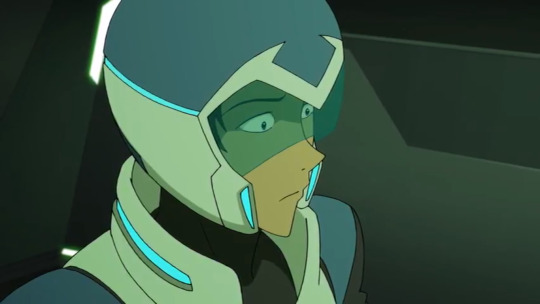
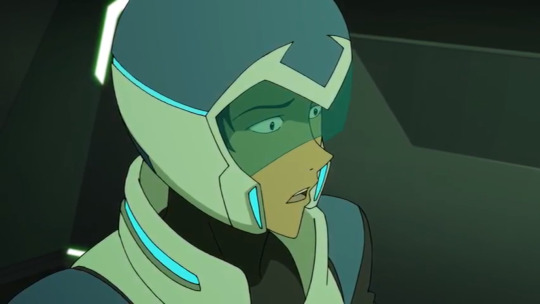
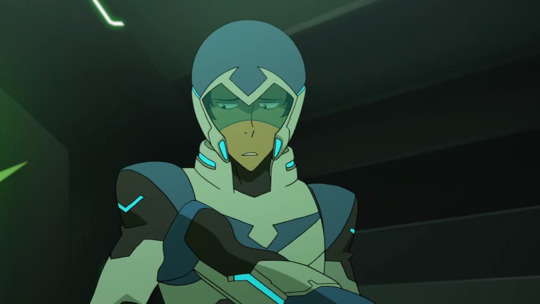
Then when he makes that dire shot
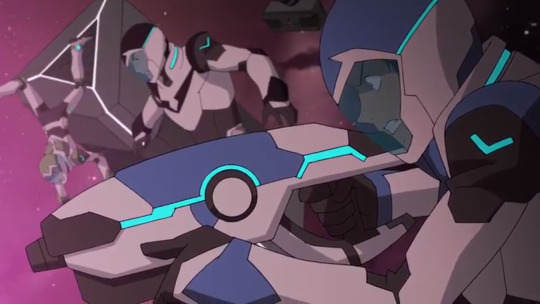
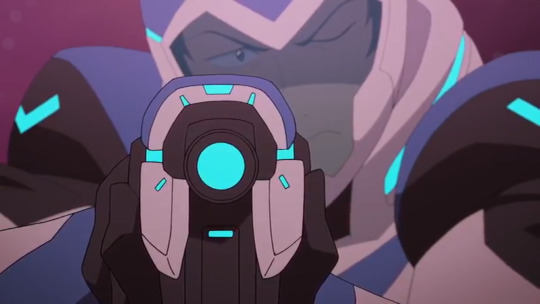
It makes him feel good about himself.
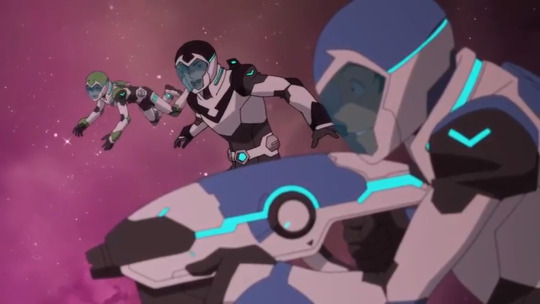
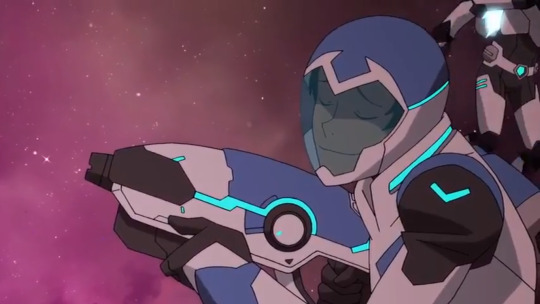
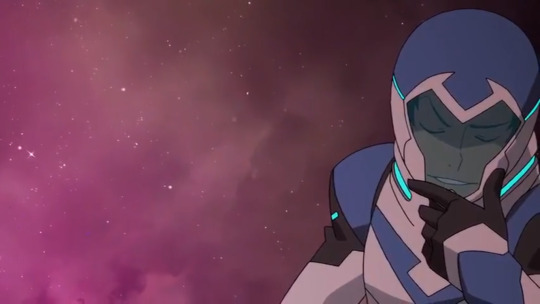
This scene didn't, especially since Keith said what he did, and managing to take down an extra.
I know Lance used to gloat about like the stupid stuff and not actually the really cool, right stuff because he was an awkward person who just wanted attention.
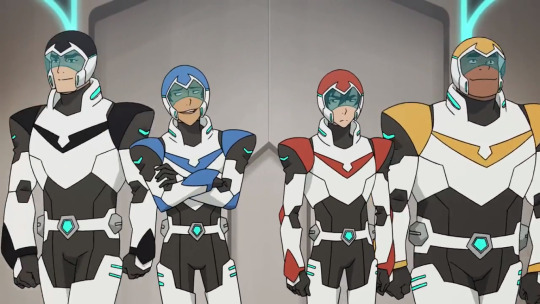
But this scene... idk it felt a little cold. I think that is because of the doubts that Lance does have that he’s lacking in certain emotion. Maybe it’s just that the situation was too serious and nothing could make any of them happy, though Lance still manages to lightly boast when asked if his gun had infrared.
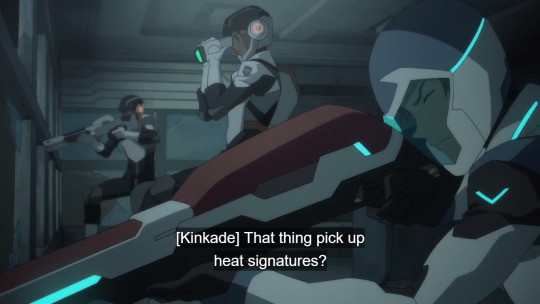
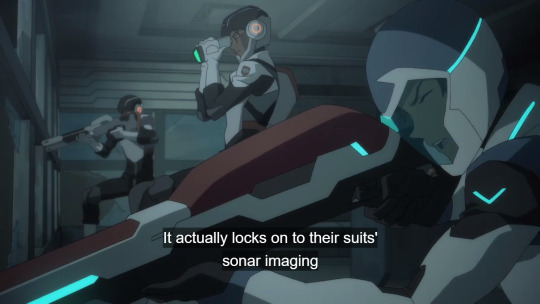
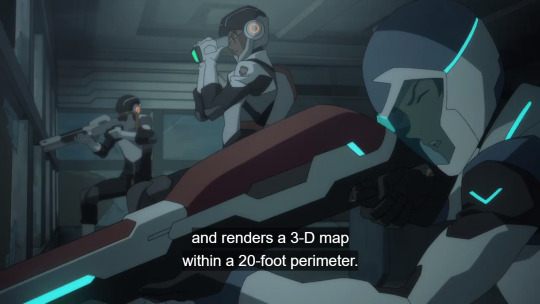
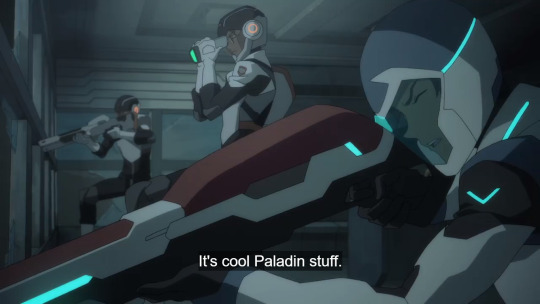
Though Lance has gotten good at remembering terms and such, so it might just be an exchange of knowledge. Still didn’t necessarily need to put in that last comment though.
So like, Lance has grown more and more into the shadows, though he has always wanted to be the centre of attention (I mean with sniping he is literally in the shadows).
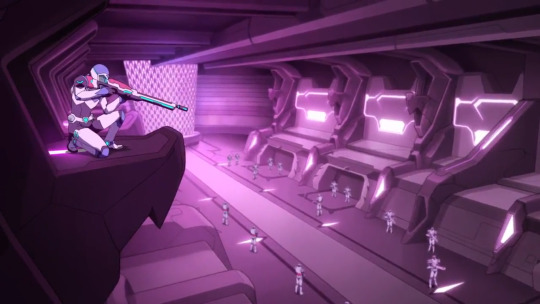
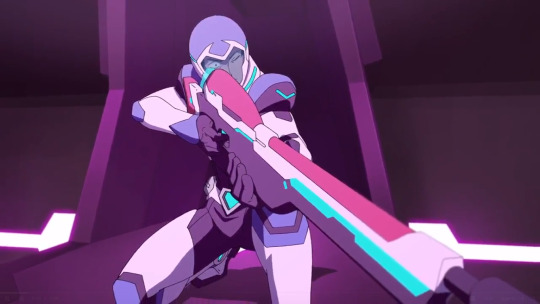
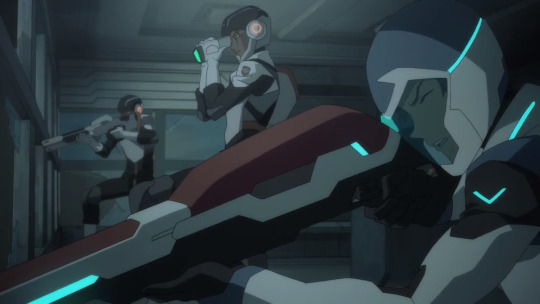
But here eyes were on him, it may be why we get this reaction from Hunk and Pidge
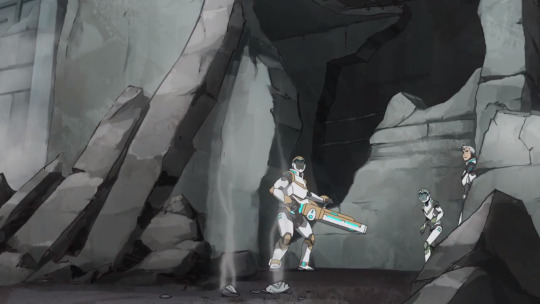
Lance's doubts are growing more and more and that is not making him put in much effort, or to actually think properly.
It's why he gives up
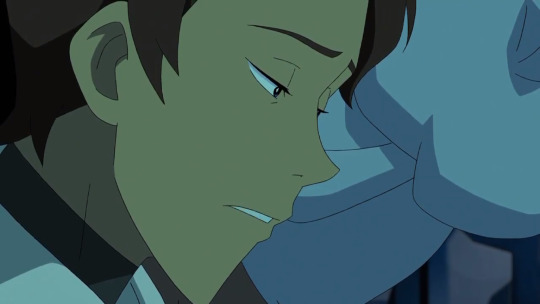
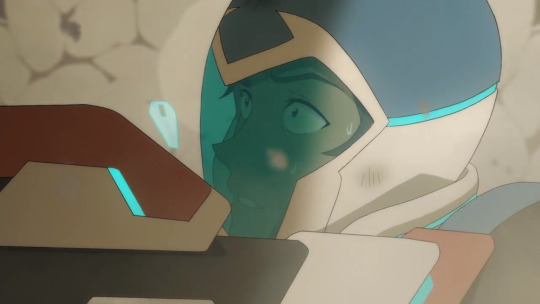
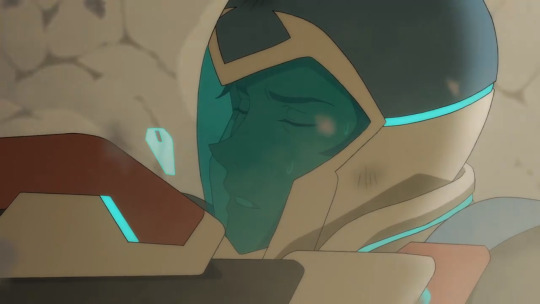
Why he talks of death
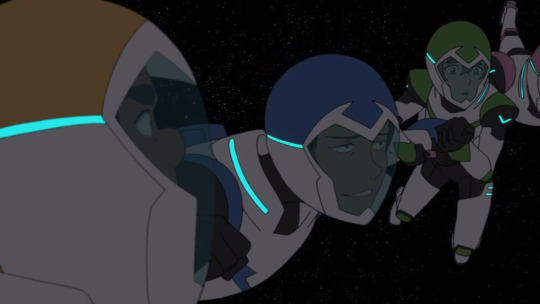
and doesn't actually help the situation,
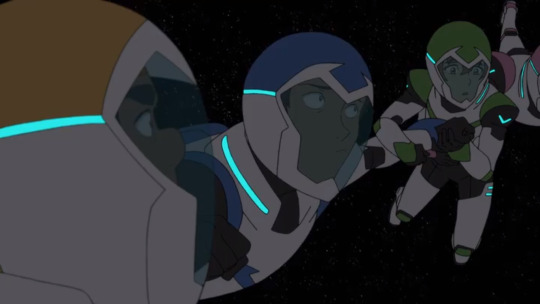
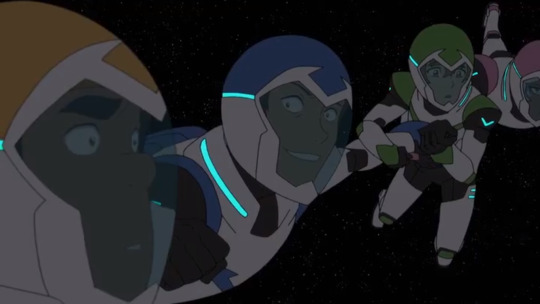
Why he parallels Keith
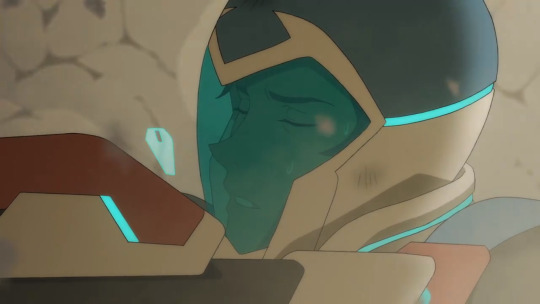
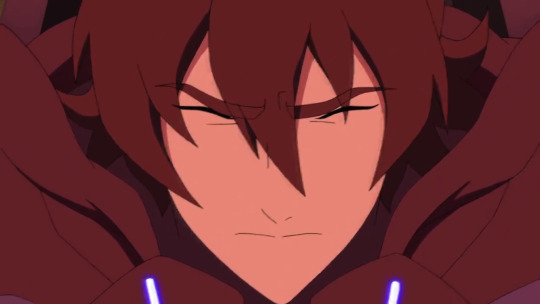
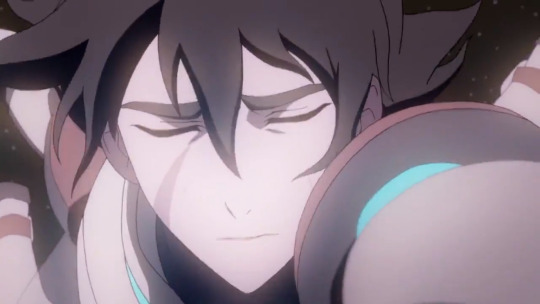
and also why he looks done with life when he is helping Allura.
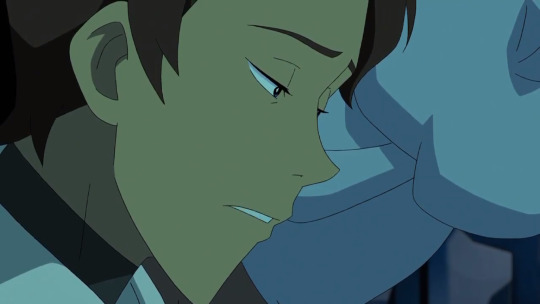
It's honestly like he has no energy left in him, and this Allura.
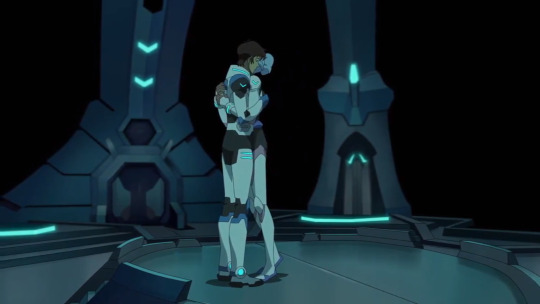
Lance's hug back to Allura was pitiful, I'm sorry, it was. She was properly hugging him while he loosely put his arms over the top of hers. Then you see his face and you can tell that everything was fleeting.
I went back over this scene and I see what @the-red-paladins is saying about this being the moment Lance realises Allura isn't for him. I see why, he looks absolutely done with life. He had given up. That is a face of despair.
The dynamic of Allura and Lance has always been him building her up as an individual, but there is nothing to build up Lance, it's a one way system and that's on him.
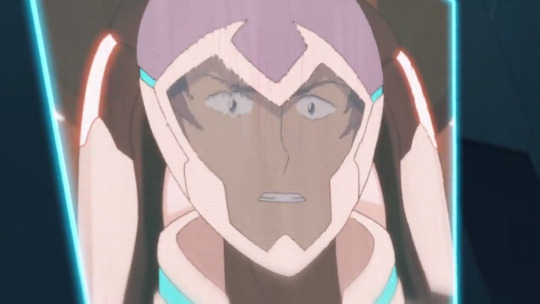
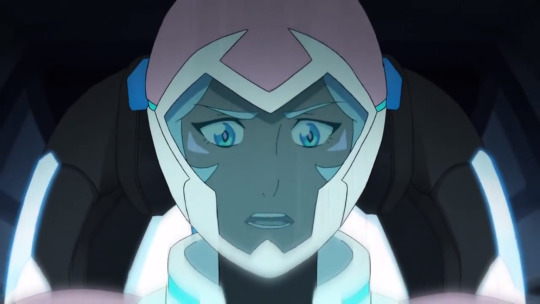
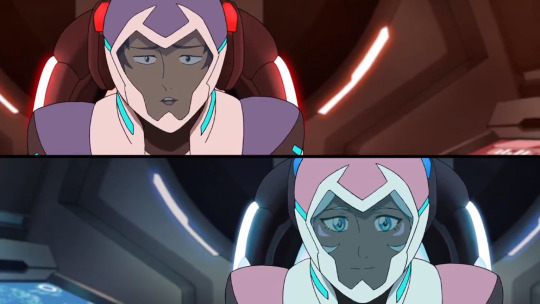
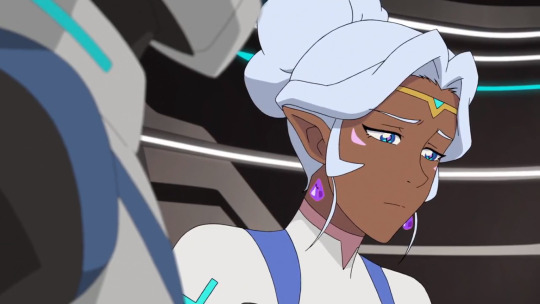
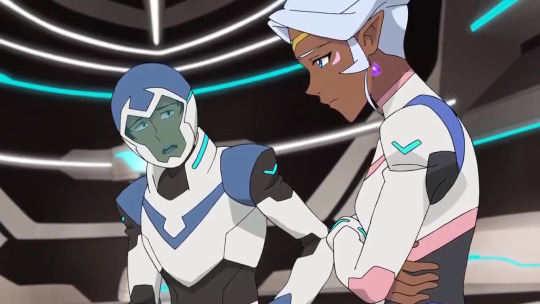
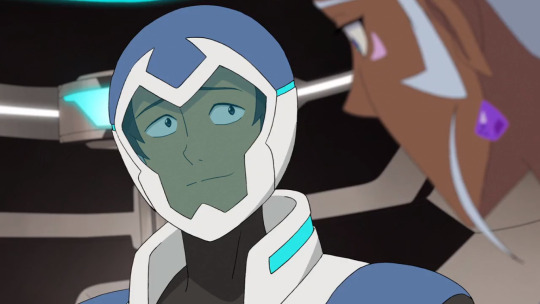
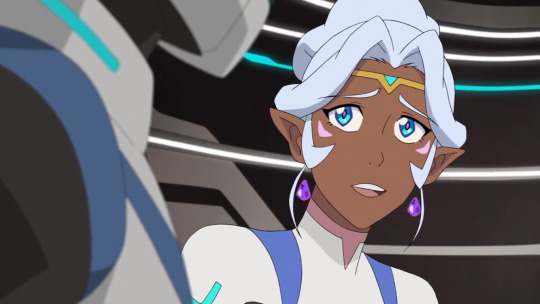
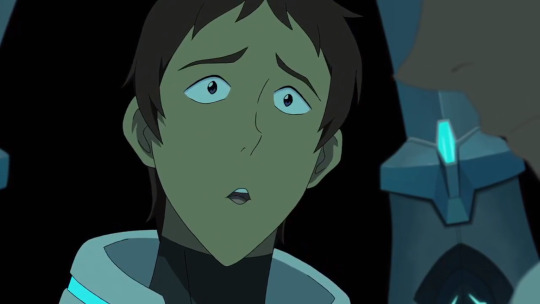
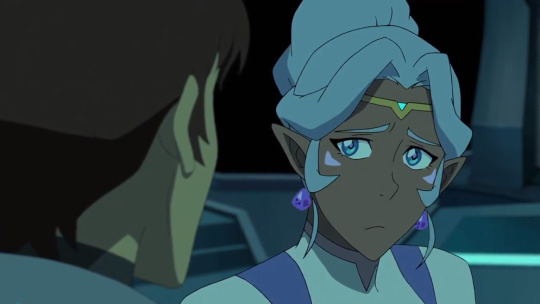
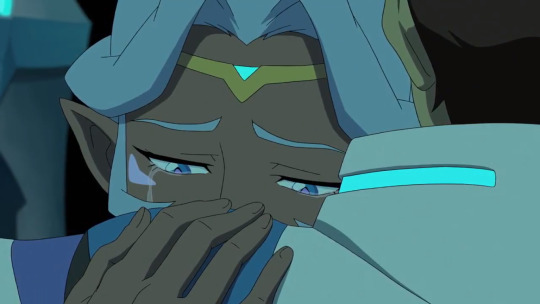
He never trusted her with his feelings
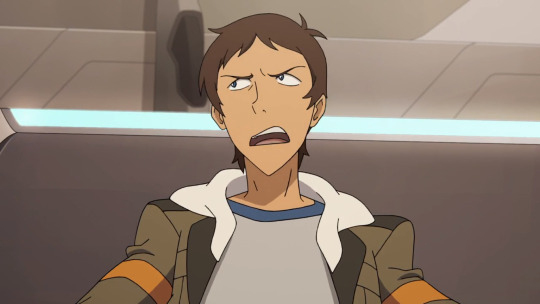
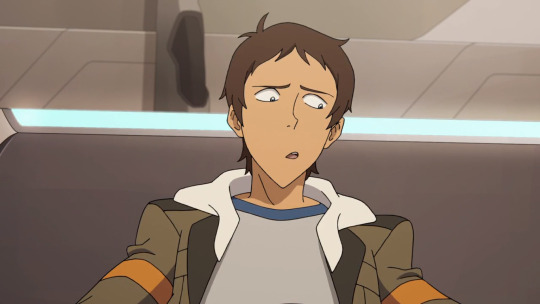
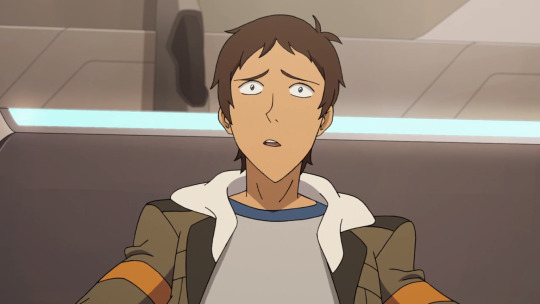
Though he still gives her advice. Lance said the right words that Allura needed to hear and Allura has misinterpreted it and herself.
The fact that Lance seems to sink lower every time he gives Allura advice is very telling. When their new friendship starts Lance was relatively stable because he grew and also was in a comfortable position with Keith

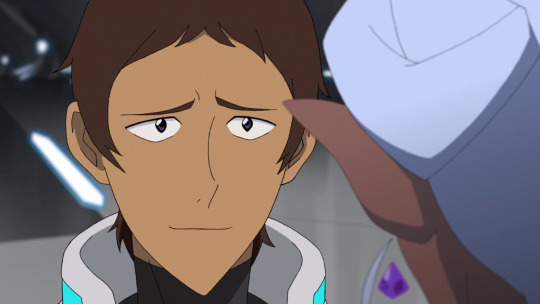
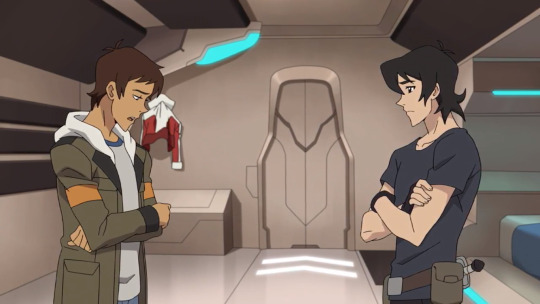
Then he left and Lance had no one he was comfortable with and because Lance hadn't fully grown he slipped up and he's gotten to a bad place.
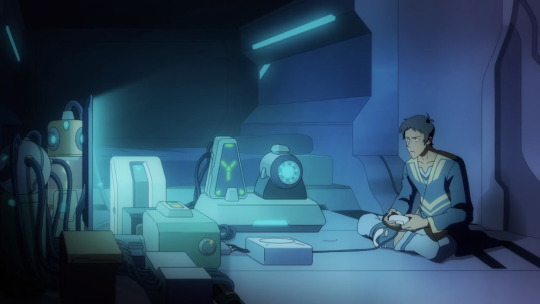
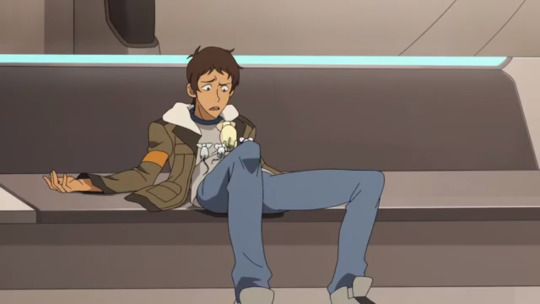
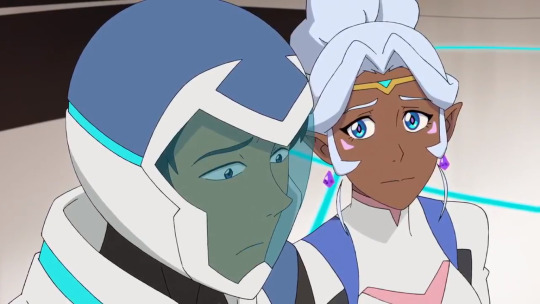
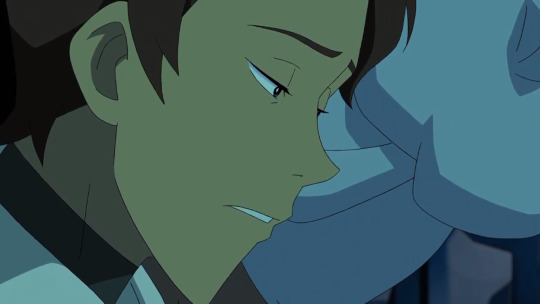
One that has made him give up completely and Allura doesn't have a clue really. But Keith does, I'm sure of it. Plus the no.1 scene parallel I can't get over is where Red saves him.
That is a complete surprise, we had no idea that Red had been activated, just that Lance was giving up completely on saving himself and his sister because of how low he has sunk.
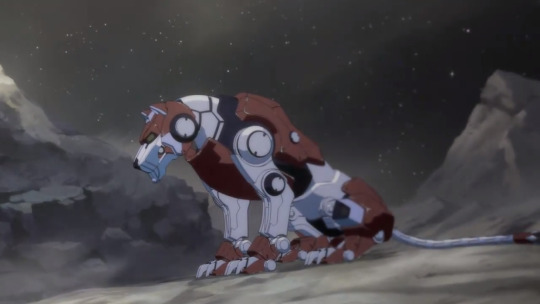
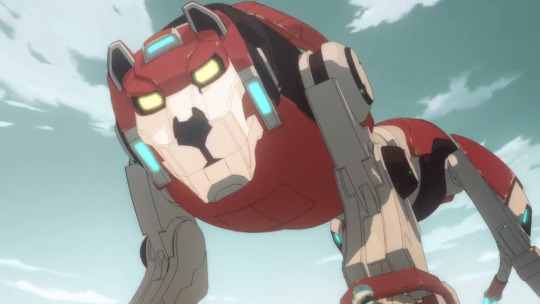
Then it parallels to this scene because of how they framed it and also contextually as Lance gave up. Keith was giving up, but realised he wouldn't do that.
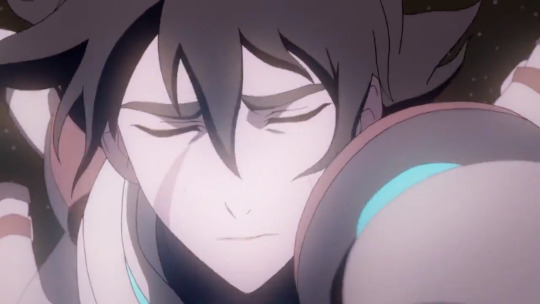
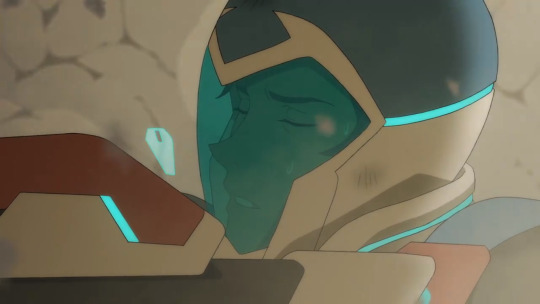
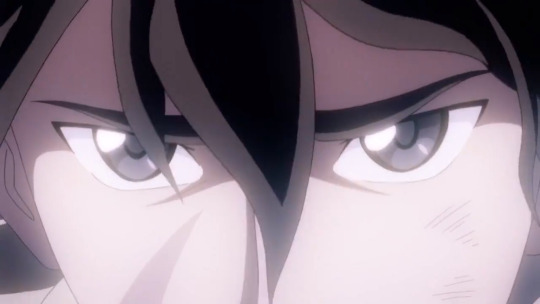
Keith is building Lance up, and at the end of the day, this lesson is something that Lance severely needs, and because for Keith that lesson is a part of him not giving up on his ties to the paladins, wanting to make up for it. Lance is shown to always follow in Keith's footsteps and Keith and Lance always being the ones to build the other, and then the role reversal. Keith will teach Lance this, he will save Lance from himself and it will be the game changer because it will be the growth that Lance needs.
If Allura was his endgame we wouldn't have seen the one time Lance shows his doubts while she is there and tells him to go to Red because of his growth and to then proceed in her own growth, that she made on her own without Lance because she saw Lance's growth. She let him pursue his own growth because she knew that that was what was best for him and for her, meaning she herself had growth.
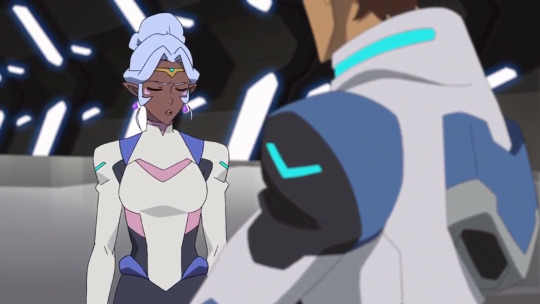
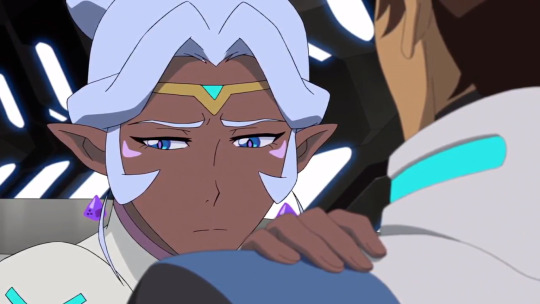
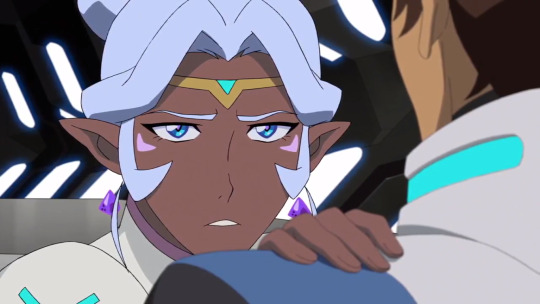
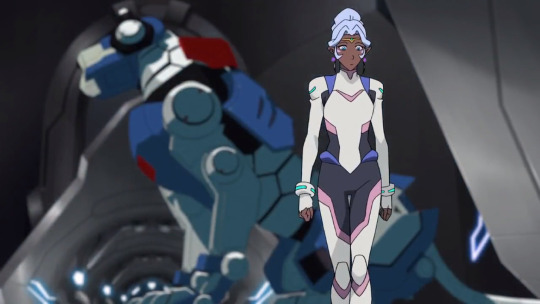
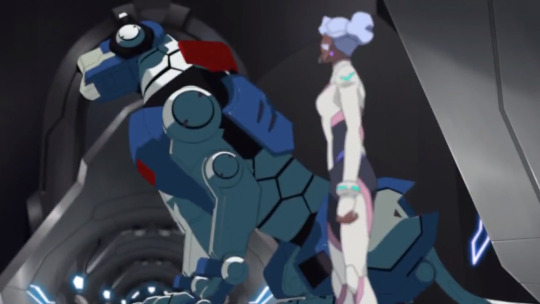
If they were endgame, her words would change Lance and help him be more secure, but they don’t.
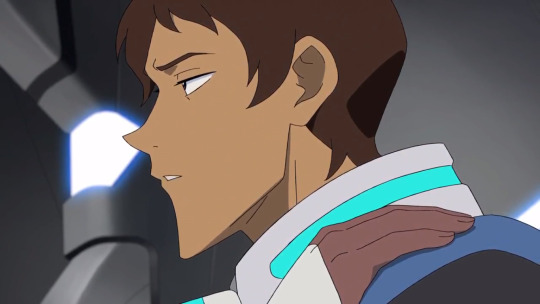
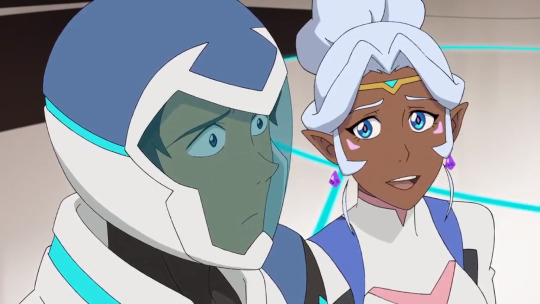
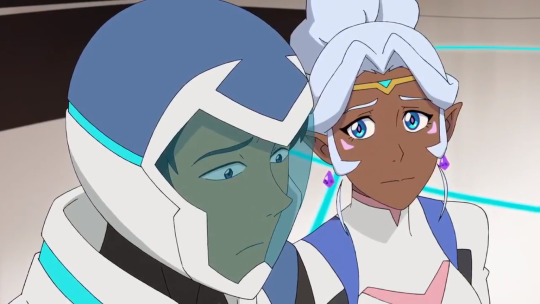
He would also feel secure in telling her.
Instead all of this went to Keith, and now Lance is super hurt because no fucking wonder.
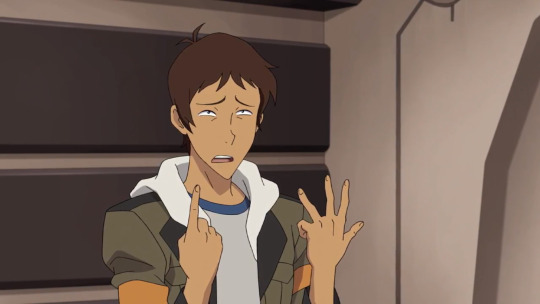
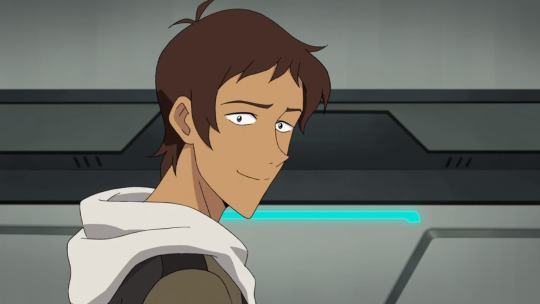
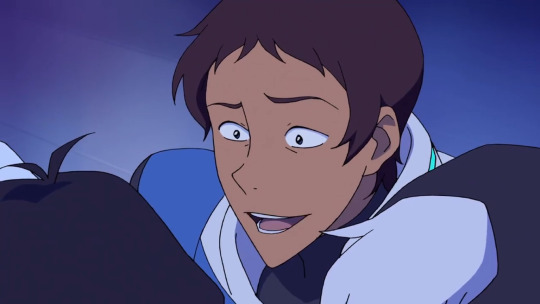
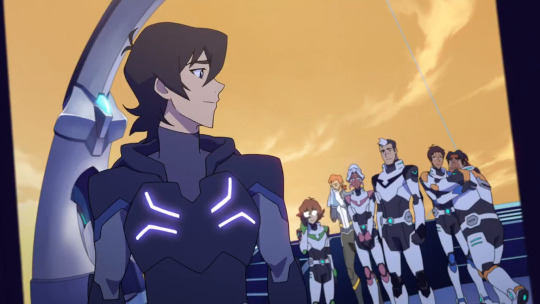
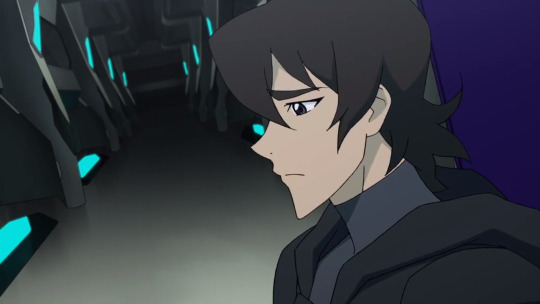
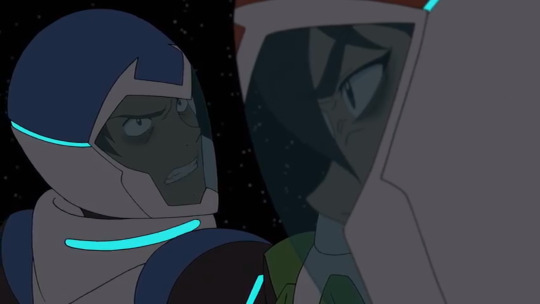
They have a lot to talk about and a lot to patch up.
So that is why Keith is not being malicious. Keith is just an awkward fuck who's confused about Lance but wants Lance at his best.
Yeah, they’ve gone back to the playfulness of how they started out. There is no intent on wanting to hurt the other, because Lance was just trying to get Keith’s attention back then, so Keith is attempting the same thing because he needs Lance’s head in the game.
You know we actually got more Klance content than A//urance this season and I find that hilarious.
So Keith is not some clone, he is still Keith ^-^ just a grown one who is still trying to find a balance.
Later Paladudes ;)
#klance#voltron#voltron meta#klance meta#lance mcclain#keith kogane#vld lance#vld keith#vld s7#vld season 7#klance analysis
2K notes
·
View notes
Text
on “operation blow us all the fuck up”
sources:
ARANEA: Ok then! ARANEA: Has everyone settled down? Do I have everyone's attention? MEENAH: attention huh MEENAH: whoda thought MEENAH: you would want any of THAT ARANEA: Just stop. Please? ARANEA: I know it's only 8een minutes since you died, and you pro8a8ly aren't thrilled to see me for any num8er of reasons. ARANEA: 8ut for me it has 8een millenia! I have 8een waiting a long time to see you again, and orient you to the afterlife.
ARANEA: However, I don't think much of it will make sense without some major contextualization. ARANEA: There's really quite an amazing amount of nuance to the full sequence of events. Many different players, personalities, conflicting agendas, all interwoven together. ARANEA: I'll need a little time to set the stage for everything to 8e comprehensi8le, if you all don't mind indulging me for a while. ARANEA: You could say it all started during our darkest hour, when it 8ecame clear our failure was inevita8le. I took it upon myself to venture into the palace of my denizUMPH.
please be aware that these were MY PERSONAL NOTES. theyre full of me deciding things and arguing with myself and putting ideas out there to see what sticks so i can come back and refine it when i can
Aranea and Meenah meet up upon a large floating lily pad over what used to be their Battlefield before it was destroyed prematurely by the Reckoning. The time has come. It was made clear long ago that their session was bleak. There would be no winning for them. Aranea Serket headed directly to her denizen, Echidna, to ask what route should be taken. Echidna of course informs the Scorpio girl of a method called The Scratch, initiated only once a game has become unwinnable. Echidna continues to explain that the kids will cease to exist and will reincarnate as average people on a different planet. You know. The basic deal behind The Scratch.
Meanwhile, out in the Void, Meenah is communing with the Horrorterrors who are very adamant that Meenah use the Tumor to kill everyone just before the Scratch so that they will continue to live on in the dream bubbles (this is in part mostly to carry Horuss who is carrying Calliope over into continued existence). As one would expect, Meenah is thrilled with the idea of staying around and being immortal and in charge forever.
Now the logistics and details behind this are a bit shady, but it boils down to this. Aranea and Meenah have only just recently had a fight with each other that really shook their friendship. Aranea is skeptical that the Horrorterrors’ plan even works. Why should you trust a bunch of octogods anyway? Aside from that, an eternity of death doesn’t sound exceedingly pleasing, nor does the idea of a mass suicide to accomplish that.
The two set off to accomplish their goals. Aranea accompanies Damara to transport the Cardinal Movement to the Battlefield for their final goodbyes. During this time, Meenah has retrieved the Tumor and is ready to begin her part. Aranea and Meenah continue to have conflicted opinions on how to go about this. Aranea is excited for her new potential life!
Each of the girls have acquired half of their crew to debate what they should do. Aranea has accumulated Rufioh who claims that he couldn’t even manage to face death to reach god tier and the idea is just too gruesome for him and Horuss who says he would not want to keep on existing forever without his beloved. Cronus joins in as well, claiming that he finds it sexier when women aren’t trying to kill him. He also makes a passing comment that Aranea would give him favors for siding with her (which she did not. And if she did they were not sexual). Latula thinks that conceptually it’s not really a solid plan and there is nothing suggesting it is a good idea. The entire idea just sounds grody. Mituna joins her because DOOM.
On Meenah’s side she is accompanied by Kurloz who simply stares vacantly at everyone with a wide smile on his face and Damara who is only siding with her because she refused to be with “the cheaters” and who just wants to start the damn Scratch already and get it over with finally. Both are also interested in Lord English’s propagation. Kankri believes that he will be able to help spread social justice in the afterlife. Porrim claims she is obliged to go with him, not daring subject an afterlife to Kankri without her intervention. This is mostly joking as she also admits it might be fun to get to keep living so to speak and that SOMEONE has to protect the little guy too. There were a lot of things in her life she never felt were complete. Similarly, Meulin believes in the optimistic concept that there is much to do- even if all she gets to do is talk to Kurloz forever, it is something to do. Kurloz may have also convinced her to join him because Lord English.
The two begin to face off in whose plan should work, and who should be allowed to be Scratched if that is what they want. If nothing else even just half of them can blow up while the others leave to be Scratched. Either way, the numbers are tied and no conclusion can be reached.
Flashback time for explanations!
[calliopes soul is involved with this somehow, i mentioned this in a previous post]
(Meenah’s oven, Porrim’s mannequins, Latula’s coins, Rufioh/Damara’s egg timer, etc . Die’s voodoo doll does not count. He has had the doll since he joined. Then again so did Biscuits and Eggs. This is not important. Stop riding me.)
There is also the matter of a First Guardian. This Guardian is cool. And unlike Scratch they are neither creepy nor do they fuck up the entire planet. Though they do claim to have a great interest in watching and observing the story. This is mostly because the Guardian is stuck in a dimensional pocket. Something like the Void. They are incapable of acquiring power from the Green Sun. As such, they’re black. Fizzled out in the Void, powerless. Unlike Scratch’s lit-up white. This is in part because Horuss/Calliope’s soul was used to ectobiologically birth them. And because I fucking said so. This is similar to how Lil Cal embodying Caliborn’s soul created Doc Scratch. A puppet linked to Caliborn. Whereas this Guardian is enveloped in the Void housing an antithesis of Scratch, one who embodies Calliope. But she’s not going to explode from their head or anything like Athena or Lord English. They’re just. The antithesis. They will only acquire their First Guardian powers once they have been summoned into their universe proper.
For some reason or the other Aranea has Quarters’ quarters. Maybe from during her fling with Latula or maybe Latula gave them to team members for whom the numbers/colors fit. Also I’m not sure on the specifics of this but BASICALLY she is intent on flipping them. Specifically Snowman’s. Because it’s a double sided 8 coin. What more of this decision could I POSSIBLY answer. Now it could be a few things. Perhaps she knows what it does. And she intends on flipping it to summon-kill herself so that she may be Scratched and avoid the afterlife. With… her teammates somehow? Maybe she somehow wants to flip it to decide what they do. I do not know. Like I said. They were shaky and hazy. THE POINT IS: Aranea flips the stupid Eight Ball Snowman Coin. She uses her Luck powers to make a favorable outcome… whatever that might be considering both sides are the fucking same. Maybe she bet that the coin would land on its side and if it did Meenah wouldn’t blow everyone the fuck up.
Anyway, Damara’s sick of this. Probably Damara. Someone has to shoot. But Cronus doing it wouldn’t make much sense. So Damara shoots the coin midair. Presumably Aranea’s Luck only ends up affecting how Damara hits the coin. Because it goes straight through the center. It is now just a black circle with a hole through it. But do you know who else is associated with just a black empty circle? THE FIRST GUARDIANNNNN. So it lands and they appear in a flash, all green and white and flickerin and makin people pass out because that’s just too much.
Now their influence is only right then. They can’t just go back in history and have always BEEN ALREADY THERE. They just can’t. They don’t even really HAVE that time stuff. I guess. ITS’ NOT IMPORTANT. POINT IS. FIRST GUARDIAN SNATCHES UP ALL OF THE JUJU AND ON THE SCRATCH THROWS THEM INTO PARADOX SPACE WHERE THEY APPEARIFY WITH DOC SCRATCH. Doc Scratch then distributes them to the leprechauns before Caliborn even meets them. There. Now they have their stupid Juju. Idk, they probably do some other capricious plot-altering GARBAGE too.
Anyway, for some godforsaken reason Aranea and the crew agree to not get Scratched and Meenah’s like yessssssssssssssssssssssss. Maybe because of the First Guardian being summoned being taken as a sign. Maybe Meenah does it without consulting them. I don’t know. So Damara starts the Scratch, and Meenah gets the Tumor at the ready for just the prime moment. I don’t really get what’s going on. Basically everyone agrees with Meenah but Meenah and Aranea are still kind of bitter and feuding. However Aranea gets scared and like what if this is the last time they ever even see each other? So she begins to apologize to Meenah and
SYSTEM ERROR: MEENAH PEIXES BLEW YOUR SESSION THE FUCK UP
SYSTEM REBOOT INITIATED. SCRATCH COMMENCING.
1 note
·
View note
Text
Walker Episode 2 Review: Back in the Saddle
https://ift.tt/eA8V8J
This Walker review contains spoilers.
Walker Episode 2
Walker’s “Back in the Saddle” sees this show starting to find its groove after the introductory pilot. While the first episode was very much set up and angst, this episode is about expanding on everything that we’ve seen already and working on reconnecting a family broken by loss. There is still plenty of angst. It’s not easy and Cordell Walker isn’t the best, but he’s trying. They’re all trying, in their own ways. And that’s always going to count for more than people give it credit for—at least it does in the world of Walker.
While some might not like the family aspect of Walker, I do. Family is at the heart of everything that we do as people, be it blood relatives or found family. And while we’re used to watching Padalecki grieve all over Supernatural with Dean by his side, this time it’s different. This time there are kids to take care of, a mystery to solve that pertains to a dead wife, and dealing with personal feelings of disappointment that stem from missing so much of his kids lives and feeling guilt because of it.
Cordell’s character is interesting. He’s messy, loves queso, and is cocky in a way Sam Winchester never was. He’s not as in touch with his emotions, holds back from getting close to people, and sets his family aside because he can’t deal with the pain of his wife’s death. In some people’s eyes, that makes him a bad person. In mine, he’s just a man who is shattered and needs to put himself back together, not only for himself, but for his kids too. It also means that there’s major growth that’s going to happen. And isn’t that what TV is all about?
Micki Ramirez continues to be a nice counterpoint to Walker’s, well, everything in “Back in the Saddle.” She’s still steps ahead of her partner, doesn’t take any of his crap, and has clear goals of what she wants in her life, no matter the fact that her “boyfriend” is back in town for longer than expected. Most characters who have these traits, be they men or women, end up being contextualized as quite cold, but Micki is different. Her strength is wrapped in kindness. Her dreams are wrapped in hope for a better future for herself and people that look like her. Plus, the fact that she kicks most of the ass on this show is swoon-worthy.
Giving Micki her own life as a character is a bonus. She isn’t here to be the sidekick who falls in love for the big and hunky Texas Ranger. She is a Texas Ranger herself and she can be her own hunk. And that is refreshing, and I can’t wait to see what this show does with a pair who has zero sexual interest in each other. Men and women can be friends. They can solve cases together, ride up to the bad guy together, and save the day together. Walker is here to prove that in “Back in the Saddle.”
On a side note, it’s really great to get to know the Walker kids on their own. Stella, who has the most problems with her father, is just like her father. She’s hot headed, grieving the death of her mother, and stands up for those who are being treated unfairly. No wonder she bumps heads with Walker all the time. August is the polar opposite of both of these characters. He wants to keep the peace and make sure that he doesn’t rock the boat in any way. But he needs to grieve. And if rocking the boat is part of that, then go ahead, kiddo.
As Walker progresses, it would be nice to learn more about Liam Walker. He’s been the surrogate father to Stella and August for months. He loves these kids and they depend on him because he chose to step up when things got hard. Liam also loves his brother. Trying to get custody of the kids wasn’t done with malicious intent. It is born out of love and an understanding that these kids need a parent who is there. And until Walker steps up, he can’t get mad that others fill the void he’s not.
cnx.cmd.push(function() { cnx({ playerId: "106e33c0-3911-473c-b599-b1426db57530", }).render("0270c398a82f44f49c23c16122516796"); });
After the second episode, it’s easy to get invested in this show and the family in it. Sure, half of the characters are emotionally constipated. But what fun would it be to watch a show where everyone is perfect and has no problems? No fun at all, that’s what it would be.
The post Walker Episode 2 Review: Back in the Saddle appeared first on Den of Geek.
from Den of Geek https://ift.tt/2NP1eAZ
0 notes
Text
I try to do this every year: here's the best media that I encountered, but which was probably not released, in 2017. It’s long!! oops!!
Books
I read 176 books in 2017. My primary reading goal was to prioritize authors of color, ideally making them half of my reading material. This fell apart somewhat in the face of various and intense life stresses, but in the end 40% of the books I read this year were by PoC, up from 10%* from last year, and I'm proud of that. It's something I will continue to prioritize.
* a metric which may be somewhat out of date, as I discovered neato things while looking into Jewish authors!! but I'm too lazy for recalculations, so let's let it stand
Patience and Sarah by Isabel Miller. I love this book so much that it took me five months to write a review. Miller wrote it with precise, peculiar inspirations--the identity of a mysterious artist; sessions with a ouija board--and while I traditionally resist the idea that the author is a conduit rather than a creator (yes to authorial responsibility! boo on authorial intent!) I think there can be moments when an author reaches above and beyond themselves. I believe Beagle did this in The Last Unicorn:
A lot of things appeal to people out of their own histories in that story. I feel sometimes like Schmendrick, when the first time he actually casts real magic summoning up the shades of Robin Hood, Maid Marian and the Merry Men...people who never existed, really they’re myths, and yet there they are. And at that point he falls on his face, picks himself up, and thinks: "I wonder what I did...I did something..." Which is very much the way I feel about The Last Unicorn. Finally, fifty years later. (source)
And I believe that Miller does it here. This is an exceptional novel; its purpose and joy and energy is remarkable, and it may be safe to call it my favorite book of the year.
Graceling series by Kristin Cashore. The books stand alone and are all perfectly good; but it's Bitterblue that won me, and I think it benefits from reading the entire series. This uses a speculative concept to explore trauma and abuse in ways that are simultaneously metaphorical, literal, and unique to the worldbuilding. I admire a narrative that's able to capitalize on the potential of its genre in that way, and there's interesting narrative-in-absentia techniques at play here, and, crucially, it's thoughtful and compassionate.
Temeraire series by Naomi Novik. I adore the companion animal trope, and am dubious of dragons; I did not expect that this would be so thorough an exploration of the former as to totally negate the later. It engages almost every question that surrounds this trope, especially re: sapience, personhood, power dynamics; the long-form adventure allows for a diverse and evolving culture. And it's tropey in every way it needs to be to give its premise emotional weight. Multiple books in this series won a 5-star rating, and as many made me cry. It's as in love and as engaged with this trope as I am. Simon Vance's audio narration makes these an especial delight.
Her Smoke Rose Up Forever by James Tiptree, Jr. I read this in the same year as my first Joanna Russ book (The Female Man)--and neither are perfect, but both are invaluable, and the combined effect has stayed with me. But nothing lingered moreso than this Tiptree collection: so exhaustive, so exhausting; the tension between her profound bitterness and daydreaming, between her (presumed, implicit, assumed) male PoV and persistent feminist themes, elevates this collection beyond the limitations of individual stories.
The Devourers by Indra Das. It would be insincere to say that this is what I wish every werewolf novel would be--I love them all uniquely--but this is what I wish every werewolf novel would be: this visceral, this vivid, this inhuman, this engaged with the concept of the Other.
Orlando by Virginia Woolf. The only real goal in life is to love or be loved as Virginia Woolf loved Vita Sackville-West; the energy that emanates from this, passionate and playful and irreverent, is incandescent. I always expect historical books about sex and gender to be restrained or dated, and for good reason, but this has aged so well; it's fluid and complicated, but too quick to become heavy. In every page, a delight.
Honorable mentions in books
Ursula K. Le Guin. I read a handful of her books this year; I didn't love them all equally (The Beginning Place is hardly her most famous but it's my favorite so far) but I'm consistently impressed, no matter how minor the work. She's profoundly skilled; she integrates and expands her central theses in ways that capitalize on the speculative genres she writes in, to great effect.
Octavia E. Butler by Gerry Canavan. I hesitate to say that I loved this biography more than Butler's novels themselves, but that reflects how it felt to read this: it summarized, contextualized, and celebrated Butler's cumulative effort and impact in a way that made me appreciate her anew.
When the Moon Was Ours by Anna-Marie McLemore. I read a lot of YA I bounce off of, a lot of magical realism I don't think works; but this I loved, for its specific images, for the way that the fluidity of its style suits its issues of gender, for its beauty and love.
The Summer Prince by Alaya Dawn Johnson. The energy in this is infectious, and needs to be, as it's as much about a love affair with a speculative premise and a place as with a person--and all those elements are accessible, distinctive, alive.
Thomas the Rhymer by Ellen Kushner. Fairyland which feels truly transporting and fantastic, truly fae, is hard to capture. This is such a quiet book, unassuming in structure and frame, but its depiction of fairyland is one of the most convincing that I've ever seen.
Games
Nier: Automata. I watched this played on release, and called it then, in March: game of the year. I was not mistaken. There's more this could do, further it could go; but what it does, with its androids and tropes, its meta elements and narrative structure and soundtrack, is phenomenal. One of the most remarkable things that a game can do is be profoundly wedded to its interactive medium, because few other platforms have the opportunity to interact with the consumer so directly--and Automata achieves that, to great effect.
Kirby series. I have no particular love of platforms, Nintendo, or nostalgia; but these looked cute, and: they are. Kirby is shaped like friendship, and the softness and colors of level design, the creative gameplay of Kirby's transformations, the sincerely impressive interaction with level elements in games like Epic Yarn, are a complete package. These brought me unmitigated joy; that's not something I often find.
Honorable mentions in video games
Dishonored 2. The plot and setting hasn't stuck with me as much as the first game. But to internalize criticism and then go on to make a more diverse game is fantastic (and it pays off, in Meagan Foster especially), and the small, almost-domestic moments and ongoing lore/religion in the worldbuilding are very much my thing.
Dark Souls III DLC. The base game was on my list last year, so this entry feels like cheating--but these were substantial additions, big worlds and significant narrative and so many new monster designs, all of which compliment the base game. It's an impressive product, and I wish more DLC resembled it.
Closure. A little indie puzzle platformed that exceeds expectations for that genre because the way that its core game mechanic interacts with player, art design, atmosphere, and narrative is so successful. (It even makes up for sometimes-finicky physics.)
Visual Media
Car Boys. I'm disappointed that Nick Robinson proved not to be the person we wanted him to be, but that doesn't change the profound impact that this series had on me. Not only is it a fantastic example of emergent narrative, it simultaneously embraces my fear of existential horror and my profound longing for a greater meaning. This served a similar function for me as did Critical Role last year, despite dissimilarities in tone and content.
Dark Matter season 3. The boy and I have been watching this together, and with few misstep we've been consistently satisfied with the way this series combines found family tropes and genre mainstays. But season 3 is a cut above. It's still all those things, but the ongoing, consistent character development, particularly of the female characters, most especially of the Android, is phenomenal. There were episodes that made me cry, that I would call legitimately perfect.
Blame! I've enjoyed everything I've seen by Polygon Pictures, including Knights of Sidonia, but this is the best they could be: tropes I love, a perfect setting for their visual style and capabilities; great pacing, writing that does interesting things with its subgenre. Without competition, the best film I saw this year; it looks great and it’s just so engaging to watch.
Person of Interest. Found family/AI feels is in essence all I've ever wanted from a narrative, and this delivers, delivers in droves: it has the crime serial format I love but, like Fringe, deviates from format to great effect. But it's the particular combination of themes that sold me: using AI as a launchpad to explore all varieties of personhood and socialization.
Honorable mentions in visual media
Yuri!!! on Ice. There is a need in the world for stories like this; queer love stories, stories about what it means to become one's best self, stories which are funny and sweet and profoundly empathetic. This year started poorly (and just kept on keepin' on, but:) and there was a sense of karmic balance that this existed post-election. It's escapism without being hollow; it's how I want the world to be.
Polygon. Monster Factory goes here. So does Awful Squad. But the boy and I have been branching out and watching almost anything that pops up on this channel; the balance between inoffensive good humor and video game nerdom is really likable.
#Juu reads#Juu plays#Juu watches other people play#Juu watches#reference#too many to tag#Temeraire series#James Tiptree Jr.#Indra Das#Octavia E. Butler#Nier: Automata#Kirby#Dishonored#Dark Souls III#Closure#Car Boys#Person of Interest#Yuri on Ice#Monster Factory
4 notes
·
View notes
Text
Let’s Talk About Eugene: Chapter 7 (Part B)
So, I’m actually glad that I didn’t get around to writing Part B before last night’s episode, because it did a lot to help contextualize not only Eugene’s actions as a Savior, but also Negan’s system of operations at the Sanctuary. (But does anyone even read these?)
In this chapter, I continue on with Eugene’s scenes in 7x11, ‘Hostiles and Calamities’, and finish off his reasons for ‘becoming’ Negan. Let’s get to it!
SCENE: EUGENE CUTS IN LINE
When we left off in Part A, Eugene had just agreed to make Amber her suicide pills. It was an emotional moment, Eugene being stuck between his identities (believing he’s not good) and being upset for Amber. But he ultimately made the decision to be good and to help someone in need.
All things considered, this is actually recklessly good. Amber is considered to be Negan’s ‘property’, as long as she ‘chooses’ to be his wife. In assisting Amber’s suicide, Eugene is essentially signing up to rob Negan of a resource that he values. A lot. We already saw what he did to Amber’s boyfriend—disloyalty will not stand with Negan.
I imagine he’d consider it disloyal of Amber to kill herself just to get away from him, but doubly disloyal for someone at the Sanctuary to make her suicide possible. The consequences would be severe, and after this scene, it wouldn’t be hard to trace it back to Eugene. But the fact that none of this seems to cross his mind tells us something about him: that his priorities are still in other people. Eugene doesn’t raid this poor worker’s booth, doesn’t cook up some cyanide or whatever for his own survival. No, it’s for someone else. It’s always for someone else.
This scene is also where Eugene goes full-on Savior for the first time.
He tests the waters by cutting ahead of several people in line and waiting for an opening in the conversation between workers to politely ask for cold-capsules. This isn’t Savior-like, and it doesn’t work.
He allows himself to be heckled and bossed around by the worker, then turns around to rejoin the end of the line as she told him. That’s when he realizes that there’s an easy way out of this. You want something, you take it. He can use the position that he has, up until now, felt guilty for possessing over these workers—and for the first time, he does.
Eugene is no stranger to wearing masks. He turns around and plays the part that Negan gave him: authority.

“All right, number 16. My name is Dr. Eugene Porter. I’ve recently been appointed to the newly created post of Chief Engineer of this facility. I report directly to Negan, which means you report directly to my ass. The cold capsules. Now.”
Eugene shows no sympathy for the woman, and behaves aggressively towards her, grabbing the notebook from her hands and tossing it back onto the table. He doesn’t just take what he needs ahead of everyone else in line, he takes more than what he needs, including an entire basket of what looked like medical supplies. For the first time, Eugene exercises (and perhaps abuses) his power over someone else.


I nearly put this as one of the reasons that Eugene became Negan, but I honestly think it’s just a by-product of having purpose. If Eugene were offered a position of authority at the Sanctuary without the guarantee of safety, it wouldn’t interest him at all. That’s not really what he’s after; it’s just a perk of being valued.
That being said, a lot of people think that the power he holds at the Sanctuary is going to Eugene’s head. By the end of season 7, I agreed somewhat with that, but not in the same way as it was often meant. I was worried, by 7x16, that Eugene had become too comfortable in his position, and felt too safe around Negan. I’ve changed my mind after last night’s episode (8x05), but never felt that he sticks around as a Savior because he has the power to be bossy.
Having power at the Sanctuary means Negan values you—a good thing. He’ll keep you safe because he needs you. But it also means you have no anonymity. If Negan values you, it also means he expects things of you. And if you don’t measure up, the consequences are lethal. And as we saw last night, Eugene’s power cannot protect him from the man who gave it to him.
In the next chapter, we’ll see Eugene valuing his power for the opportunities it gives him to protect people. He doesn’t value it for the opportunity to step all over those less fortunate than he is—that’s a common misconception. It’s possible, I guess, that power could have been a reason for him becoming Negan to the extent that he thought he might be able to use it to protect people, but I really don’t think so. Eugene couldn’t have foreseen Rick and the others rising up (Rick himself admitted that there was no way out of the deal), and honestly, I just don’t think he was thinking of anyone but himself and his own fear when he became Negan.
A reason for becoming Negan that I can take out of this scene is that the Sanctuary is well-stocked. Eugene has easy access to anything he could need at any time, and that’s a benefit given to him by his position.
But the most important thing about this scene is how contradictory his actions are. Eugene basically robbed everyone in the line of anything they might need out of that basket, just because he could. Because he was asserting his position. Those people are all workers; they’re in need, and even more so now that Eugene has had something to say about it.
But at the same time, he was forced to adopt this personality in the first place because he needed materials quickly and before they ran out…for the purpose of helping someone else. It was not for him, which is in and of itself very un-Savior-like. Caring about someone else doesn’t fit with the personality that he just adopted.
Because we don’t see Eugene behaving the way he did in this scene again, I’m willing to bet the cold capsules incident was a one-time thing. It gave him an identity that got him what he wanted, but he doesn’t flaunt this authority without reason, the way we’ve seen Simon and Dwight do. The Savior mask is exactly that—a mask. He doesn’t become Savior-like.
SCENE: NEGAN KILLS DR. CARSON
The Savior persona doesn’t stick. Eugene is just starting to get used to life at the Sanctuary when Laura drags him to the factory floor for the ironing ceremony. Suddenly, he’s the odd man out again. The only one who doesn’t know what’s happening. The only one who has to be told to kneel when Negan walks into the room. It’s a humbling experience, just in case he was starting to get too comfortable here.
This entire scene is theatrical. It has carefully timed teases and plot twists, and is in every way a performance by Negan. And it’s a performance put on specifically for two pairs of eyes: Dwight and Eugene.

Before it begins, Negan locks eyes with Eugene and says, “You are going to want to pay close attention to this.”
So, basically: this could be you, if you’re not careful.
He turns on a dime and swings Lucille at Dr. Carson’s arm. Just like that, Eugene is cowering. This is the last time Eugene will see Negan before Negan pops him the “who are you?” This isn’t a coincidence. Everything Negan does is calculated. Everything is for a reason.
Eugene has been treated royally at the Sanctuary. He’s had the freedom and comfort of his own room, as well as free reign of the rest of the compound, honorary status and perks that he’s even had the chance to take advantage of. That’s enough mending—now, Eugene needs to be reminded that he is only as safe as Negan says he is. Eugene’s fear is useful to Negan, in good measure. He wants him comfortable enough to think clearly, and scared enough to do it on command, no questions asked.
The perfect way to do it is to kill someone in front of him. Bonus points for Dr. Carson being very similar to Eugene—each of them is provided for, valued by Negan, and has an important role in the functionality of the Sanctuary. But none of that could save Dr. Carson from the crimes of which he was accused.

There’s something particularly eerie about the fact that Negan stares and smiles at Eugene just before throwing Dr. Carson into the flames. As if making Eugene a part of it. As though saying, “Watch this. This is for you to see.”
Eugene is horrified, of course. Everything about the performance was unpredictable—Carson didn’t even know he was in trouble when he arrived, and minutes later, he was dead. When threatened, he did exactly as Negan told him, and still wound up dead. The only predictable reason that Eugene can take away comes when Negan makes eye contact with him for the last time and says: “Good thing we have a spare Dr. Carson.”
It’s a warning: Do not test Negan’s need for you. Do not be replaceable.
SCENE: EUGENE DENIES FRANKIE AND TANYA THE PILLS
Somewhere between agreeing to make the pills and Frankie and Tanya’s next visit, Eugene realizes that he’s been taken advantage of. My bet is that he noticed their behavior when Negan killed Carson—particularly Tanya, who stormed angrily out of the room before anyone was excused.
Another possibility that I humored for a while was that Eugene perhaps knew Frankie and Tanya’s true intentions from the beginning, and agreed to help anyway. But it was a short-lived theory; it doesn’t add up in Eugene’s storyline, nor does it align with his character.
Eugene has been coerced into aiding an assassination attempt on Negan before. It went down in the worst possible way, not just with himself being captured, but with Olivia dying for it. He would likely never humor that possibility again—remember, Eugene can’t stand to see another person hurt or killed. And now, in the mouth of the lion, the consequences of killing Negan are sure to be nothing but bad.
Not to mention, Eugene was emotionally stunted by Amber’s mental state when he was asked to make the pills. The reasons they gave him for needing the poison outwardly threw him, so it’s not a stretch that he wouldn’t have considered they were lying…and, let’s be honest, if Eugene knew their real intentions, he wouldn’t have missed an opportunity to brag about that deduction as soon as possible. Rather, he was clouded by his own internal dilemma and thoughts of Abraham and Glenn. He was vulnerable, and felt an insuppressible urge to be good. To help.
Which is why, when he realized that he’d been deceived, it had to have hurt. It’s the lesson from that very first reason, drilled into his mind: there is no room for good in Negan’s world.
And he didn’t even believe that he was good, but his willingness to help the wives tells us that there was still a piece of him that wanted to be. That was. That certainly believed Frankie, Tanya, and Amber were—but for as much as it may have meant to Eugene that he was doing something good, it turned out to be a trick.
Frankie said, “You have to be [good],” but what Eugene has learned is that he cannot be. And he cannot trust. Not if he wants to survive.
And, hey, maybe helping the wives kill Negan is the ‘good’ thing to do—but it doesn’t matter, because good gets you killed. Sitting up taller gets your skull bashed in. Setting a tortured prisoner free (or being accused of such) gets you thrown in a furnace. Being a bystander at the wrong time in the wrong place gets you a bullet through the head. Good doesn’t survive. And Eugene wants to survive.
So when Tanya and Frankie look at him, disgusted, and say, “You’re a coward,” Eugene wears the most bittersweet smile and answers: “That is a correct assessment.”

This is the first time he has said it out loud since he walked into the warehouse with Tara, Glenn, Noah, Nicholas, and Aiden in season 5. He walked out of that warehouse having saved Tara’s life, having saved Glenn and Nicholas’s lives, having tried to save Aiden and Noah’s. He walked out of that warehouse believing, for the first time, that he didn’t have to be a coward—and he never looked back.
He has struggled with believing himself a coward since Abraham and Glenn died, but has up until now, either feebly defended himself or broken into tears at the notion. Now, he smiles, as though he is at peace with his personal failure—and Eugene gives himself up.
SCENE: I’M NEGAN
This scene opens with Eugene eating a pickle from the thus-unopened jar in his room. Eugene was forced to take the pickles in the first place, despite not wanting to have any part in the unjust system of hungry workers and power-hungry superiors that keeps the Sanctuary on its feet. The fact that he hadn’t touched the pickles, even once they were in his possession, has been symbolic of Eugene hanging on to who he is, staying true to the person who didn’t want to make trouble for anyone.
That he finally breaks into the jar tells us that he has given himself to the system that he never wanted to join. He’s not hanging on to any part of himself except whatever will keep him alive. Eugene has surrendered all hope of himself being good, being brave, being anything he’d ever wanted to be. Instead, he’ll be alive. Anything to stay alive.
But can he live with who that will make him?
When Negan comes knocking on Eugene’s door, tactfully swinging Lucille near his face, Eugene is terrified. Not only did this man kill several of his friends, but he also just watched him throw a man in a furnace like a jump scare. That’s not the kind of image that’ll leave your mind quickly. Eugene fears him; his breathing is shaky, and he’s practically cowering before Negan.
But Negan says: “You do not need to be scared anymore.”


The relief (and disbelief) that washes over Eugene’s face fills his eyes with tears. He continues to cry, to shudder, but it’s not in fear anymore. In this moment, Eugene finally has permission to let go of an enormous burden on his shoulders: the fear he has carried with him since the line-up. And this is where we come back to reason number four:
4. Becoming Negan offers Eugene a way to escape his cowardice.
Second to death, Eugene is most afraid of his own inadequacy. The quality that he hates the most in himself is his cowardice. And in Negan’s world, fear is at the forefront of his mind every second of every day, because death and Eugene’s imminent inadequacy are a constant threat.
And to feel constant fear is to be constantly reminded of his own cowardice.
If he has nothing to fear, then he has nothing to be cowardly about. Negan is offering Eugene sanctuary from fear itself. From the feeling that reminds him of who he can’t stand to be. From the very quality that he hates most in himself. If Eugene doesn’t have to be afraid, then he never has to be cowardly. He doesn’t have to embody the worst of himself.
And he doesn’t have to cope with himself.
This is the offer that seals the deal. Because above everything, Eugene’s skin crawls to live with himself being a coward, being a sham, someone who never deserved Abraham’s love, help, or acknowledgement. He’s been finding it hard to live with himself, and has been offered no help—not here, not in Alexandria—until now. Now, he doesn’t have to.
So when Negan asks, “who are you?” Eugene answers with embarrassing speed: “I’m Negan. I’m utterly, completely, stone-cold Negan.”
And he considers himself, both the brave Eugene and the cowardly, gone. He doesn’t bear the burden of himself anymore—he is Negan.
SCENE: WE ARE NEGAN
In the final scene of the episode, Eugene is the embodiment of his Savior identity. He is no longer dressed in his normal boots and rolled-up cargo pants, but sporting black from the head down. He’s eating a pickle—a symbol of his surrendered identity—and carries the Gremblygunk in his pocket—a token of his first Savior-like action. (Also a security blanket, Josh McDermitt says J). He is barking orders at workers from above, using his position of authority.


When Dwight stands beside him, and Eugene says, “We are Negan,” Dwight’s “yeah” comes off as disappointed. Reluctant. Side-by-side, you have one man who has just given himself up, and another who is fighting to win himself back. And yet they both share the name and the burden of ‘Negan’.
The following are not reasons that Eugene ‘became’ Negan (but a lot of people seem to think they are):
1. He is out to betray the family.
This is the laziest and most nonsensical accusation I’ve seen against Eugene. He gave himself up to protect the family; that’s why he’s at the Sanctuary now. He cares about them. He has no reason to betray them.
If anything, Eugene doesn’t see, or won’t let himself see the connection between his personal contributions at the Sanctuary and the harm that they may cause to his friends. I’ll talk more about this in the next chapter, when Sasha reappears in his life.
(Also, consider that he warns Rosita and Sasha to leave because “people gotta be en route” to find them, rather than turning them in. Consider that he asks special favors of Negan that allow him to have first contact with his family to try and save their lives. More on that, next chapter.)
2. He thinks Negan is better than Rick.
See “SCENE: DR. SMARTYPANTS” in Chapter 7, Part A.
3. He is power-hungry.
See “SCENE: EUGENE CUTS IN LINE”, above.
4. He plans to be a double agent.
I don’t believe Eugene became Negan to bring the Saviors down from the inside, for every reason that I’ve listed in the last two chapters, plus his reaction to Sasha and Rosita trying to rescue him in 7x14. When Sasha shoots the Savior beside Eugene, he is reduced to fear once again. And confliction—he appears almost heartbroken to tell them he’s not going with them.
But he wasn’t expecting to have to make such a decision, and his decision is based entirely in fear. It was not logical, it was not clear-headed, it was instinctual. Had he been planning to be a double agent, his reaction would have been far less emotional.
However! His becoming Negan did set him up perfectly to do just this, should he have a change of heart. And he will have a change of heart. The stage is already set.
I cannot believe I finally got through this episode, and I can tell you I never expected it to be this long. I don’t know why, though, seeing as I made 4,000 words out of three minutes of screentime in Chapter 6. What the hell.
Next chapter will cover 7x15 and 7x16, the extent of Eugene’s Saviorhood, and the balance of his loyalties. Stay tuned, as always!
8 notes
·
View notes
Text
The Oregon Trail [1971]
(Content Warning: Cannibalism, Genocide.)
In these early days of gaming, it's hard to walk in a straight line without tripping over "firsts." Looking for the first this or the first that is a hook, it's exciting to uncover, you feel like something recognizable of our present-day condition is emerging from the strange, foreign world of the past. It's almost a lie, though. Most firsts are mere trivia that can stand in the way of actually seeing the work. Most firsts are not self-consciously experimental ideas that caught on, but humble clear outgrowths of a prior tendency almost anachronistic to think of as a first, or are purpose-built innovations to serve a specific need (and sometimes you can point at The First and say that it understood what it was doing better than its successors because it knew best why it existed and then was mindlessly copied... but only sometimes.) If you're looking for some kind of great rupture to hang your hat on, the closer you look the less you see.
The Oregon Trail isn't actually first at much, besides. It's predated in most respects by The Sumerian Game [1964], lost to time, in which You are immersed in a narrative role within an existing historical gameworld and asked to manage resources, for purposes of educating children. It's plausible that our 1971 developers were totally ignorant of it, and thus the "first" as far as they're concerned, and instead drawing on, say, Milton-Bradley's The Game Of Life [1960], seeing as the original design was as a board game. The Sumerian Game is probably even more influential and important than The Oregon Trail, as it inspired Hamurabi [1968] [sic], which was then widely distributed in "learn to code BASIC games" books from 1973 on and from there inspired the whole strategy game genre. We, in the 21st century, recognize The Oregon Trail more though, because of the American Gen X ubiquity of The Oregon Trail [1985], which is as Doom [2016] is to Doom [1993], bringing us 2-for-2 on Id references for the geeks and gamers in the crowd.
It tops Wikipedia's list of the longest-running game franchises, and it's gonna stay there. Hamurabi isn't recognized as The Sumerian Game 2, but a bootleg with its own identity, and similarly you taking the reins of a hypothetical Spacewar 2 or a do-over with spiffy graphics would be a fangame or port or its own thing, not a sequel or remake. They wouldn't carry the imprint of legitimacy that comes from the all-important ownership of the intellectual property. It's the way Oregon Trail's original designer, Don Rawitsch, could take his source code offline in 1971, and then port it from paper as the 1975 version I played with only minor tweaks (one of which we'll address later.) It's the way one of its programmers, Bill Heinemann, can deny even his own son from taking stewardship of the code. It's in the way the Minnesota Educational Computing Consortium can make the 1985 Oregon Trail with none of the original three creators, become a private entity with the money the property made them, then sell their legitimizing rights to The Learning Company, who can sell it to Mattel, who can sell it to Ubisoft, who can then bestow the power to make legitimate Oregon Trail successors to third parties. It's copyright, or even more broadly the conceptual scaffolding of ownership, that franchises can not live without, and it's not ridiculous at all.
The franchise all started with only the noblest of intentions, though, characteristic of that 20th Century digital optimism that necessarily colors early video games. They were going to use computers to educate children. A game is a spicy way to approach this, but not unprecedented; one could say most games are already educational, even if in a given instance all you learn is about the game. So what's its pedagogical approach to history, and how does it fare?
Well, it's unusually gamey for an "edutainment" title. There's no room for those "read some facts" sections divorced from the gameplay we're familiar with from later titles like the Carmen Sandiego series. Instead, like reportedly The Sumerian Game before it, it relies heavily on now-lost paratext (which ultimately functions much the same as the Carmen Sandiego model) for the delivery of historical fact: the 1971 Western Expansion unit curriculum The Oregon Trail game was originally only a small part of. It could have reasonably been implemented within the tight space constraints of a 1970s BASIC mainframe program as, say, a fact- and text-heavy quiz, but instead we got something very gameplay-heavy that was shortly thereafter shorn of that original contextualizing information. As-is, you can hardly poke at the game's factual inaccuracies, because what little is there is accurate. (For instance, the 1985 edition would make the prevalence of dysentery infamous, but on the real Trail, the #1 killer was cholera.) The game we have is a supplement... but if not hard facts, then what does it teach you? Reading, typing?
The game is turn-based, and at the top of every turn it displays your five resources: Food, Ammunition, Clothing, Cash, and Miscelaneous [sic] Supplies, which are things like axles and medicine. Your cash reserves (which always start at the same place) can be used at the nondescript forts you have the chance to stop at on some turns. Food, clothing, and supplies correspond not to any real values like pounds of food but one-to-one with the cash you spent on them. You just have "30 Clothes," which somehow depletes rapidly. It might be meant as the abstract monetary value, but since there's no selling, it's unclear. Run out of clothes or supplies, and you could die at any moment. Run out of food, and you die instantly. Like in The Sumerian Game, you're managing resources through the proxy of numerical abstraction, but unlike it, this is not a game meant to educate you on economics, this is the First Survival Game. In all this, we see the inverse of the priority motivation of Spacewar: managing finite, dwindling resource scarcity instead of pushing hard on the limits of the infinite.
Ammunition, on the other hand, is not directly vital but ridiculously cheap. Pun intended, it's the best bang for your buck. You're thus incentivized to play into the rugged outdoorsy individualist role (unlike later games, there's no indication that you are anything but alone) by hunting for your food, without the fiddly business of coding something like food that goes bad if you just let it sit. When you go to shoot something, be it animals on the hunt or hunting yourself, or hostile "riders," you are dropped from the methodical turn-based world into a real-time action-reflex one, which delivers a jolt of energy to the whole experience. In a stroke of ingenuity within the text-only limitations, you are tasked with typing the word "BANG" quickly and accurately. In the 1978 version, it also changes the word up on you (like it could be "POW") which makes the mechanic even more reminiscent of The Typing Of The Dead [1999]. The metaphor stands clear: your typing skill, quick and accurate, enacts corresponding quick and accurate violence on the computer. The computer will have its revenge, though.
No matter how skilled you are at hunting for your food and managing your resources, you are at the complete mercy of the gameworld. The random events at the end of every turn are perhaps the real star of the show here — definitely an evolution of Spacewar's star, anyway. The wrong random events can bring you from fine to dead in just one turn. It's not fair!
That's the point. The Oregon Trail is not about getting to Oregon. Sure, that's the goal that keeps you going both in and out of character, but really The Oregon Trail is about the losing. The death message is rendered with great ceremony, three separate command prompts on your funeral, just for flavor. Even when you make it to the promised land, you're haunted by the ghosts of your own failure, and the entire time you're on the journey is low-level tension and dread at the imagined fatality lurking under every rock. That's the pedagogical utility of the game that a book or a lecture just doesn't give you: by placing you in the middle of a world model and an unimportant role, it communicates an impression, a feeling of what it was like to live as an ordinary person in the time and place depicted, and that impression is one of a dangerous world, arbitrary enough that you can do everything right and still eat curb. There's a straight line from here to Cart Life [2011]. Why, Oregon Trail is the First Empathy Game! The terminology of the "Empathy Game," if you're unfamiliar or have forgotten, was a bit of a fad genre in mid-2010s among a handful of thinkpiece writers and social scientists, and notably not many actual game designers. It was a genre that post-hoc lumped together titles like the aforementioned Cart Life, Depression Quest [2013], That Dragon, Cancer [2016], and even Spec Ops: The Line [2012]! With the exception of the latter, the sales pitch of the genre was basically that in snubbing traditional concepts like "fun" and "violence" in favor of depicting a minimal-gameplay sad world drawn from the author's deeply personal (and often enough, marginalized) experience, these games would make you a better person; they were good for you, like eating your vegetables. Game designer Anna Anthropy was particularly enraged by cis allies patting themselves on the back in this way for playing her short title Dys4ia [2012], and in response to all this she exhibited The Road To Empathy [2015], which was a pair of her size 13 high heel boots with a pedometer attached, so that people could literally walk a mile in her shoes and try to get the high score. (A scathing Cinderella story.)
I myself am a cis white male living in Oregon's Willamette Valley, cause to worry that when I telnetted in to play the game it would instantly award me victory. I grew up here. I was born too late for Apple IIs preloaded with Oregon Trail in the classrom, but one year in elementary school the teacher put together her own longform, paper-based, team-play Oregon Trail game. My team died trapped by snow in the mountains, and then once I was checked-out and scorched about the loss, the whole class got to learn about the Donner Party, a group of settlers who went into the mountains, got snowed in, and ate each other. That's a harrowing, tragic situation about people at the furthest extremities of humanity, and we didn't get too deep into it, but it wasn't sanitized. Years later, don't know how many, I wondered: why? Not why did it happen, but why was I taught about that as history? Not even that it was gruesome, but it didn't square with my understanding of capital-h History at that time, that it was just such a small story that had immediate effect on nobody outside of the Donner Party themselves. It was just some fucked-up shit that happened once. Trivia. What was I meant to learn? Not to go through the mountains in a covered wagon during winter? No, no, it had to be one of those abstract moral Life Lessons... Was it solemn respect for the dead? The terror of nature, and the weakness of man and our society in the face of it? I've seen it used to make exactly the opposite point, that adversity builds morality and character, which is incredibly stupid but that doesn't mean that wasn't meant as the takeaway.
Writing this now, I think I have figured out that I was being taught about my heritage. It's odd to think of it that way, but it's not out of the ordinary in many cultures to pass down illustrative tales of suffering to the young so they and their example are not forgotten, though. I believe I was meant to associate myself in some continuity with The Donner Party, their inheritors as an Oregonian, as an American, as — to put it sharply — a white person, and truly, I am. The subtext is that the past of hardscrabble living and suffering we underwent to get here (in this case, a literal location, Oregon,) legitimizes our comfortable place now. Likewise, the intention of The Oregon Trail is to get us to identify and empathize with the settler. Both are virtual memory, simulated aggrievement.
Our second game has taken as its subject and theme perhaps one of the few darker and more harrowing subject matters than war: colonialism. Identifying colonialism in games is in vogue right now, but it's currently most commonly leveled as a criticism at let's-call-them-post-Minecraft games in which you are actively engaged in both extracting resources from and changing the environment to suit you, even where there is no colonization on the narrative end. The Oregon Trail is just the opposite, using its resource management purely to emphasize that we are at the whims of our environment, while its narrative framing is colonization. It flinches from the larger truth of what it is depicting in favor of an attempt at systematized monetary verisimilitude that absorbs us.
The Oregon Trail [c. 1847-1869] can be considered a mirror for its rough contemporary, The Trail Of Tears [c. 1830-1850]. Nobody wanted to be on The Trail Of Tears. People were being forcibly relocated from what prosperity they had managed to carve out for themselves into conditions of deliberate impovershment. The mass suffering and death they experienced on the way was, when not maliciously engineered, fully intended, and it did nothing to legitimize their claims to the land they now had. Conversely, the settlers moving far west were doing so entirely voluntarily.(The game starts you in St. Louis, 1847, coincidentally the exact time and place a legally-enforced Mormon exodus began, but this game isn't The Utah Trail.) There's a phrase for that hopeful dream that fundamentally motivated every last Oregonian settler to embark on their painful journey: Manifest Destiny. The land out west is already metaphysically yours, you just have to go out and take it in fact. In period records, what is done to the indigenous people across the continent is described in jarringly passive voice (such as "dying off",) as what are clearly active campaigns of hostility are waged with full intent to exterminate. The suffocating, violent racism of the 1800s United States can not be understated, and yet it is full-on swept under the rug, not just here, but almost everywhere you turn that's not the niche of a serious history for adults. This was an era when even some white slavery abolitionists were only that way because the thought of sharing a nation with any black people, even slaves, so offended their sensibilities.
The Oregon Trail game is, point blank and very straightforwardly, white nationalist propaganda. Now, it's not hate speech! It doesn't come out of the damp basement printing press of a Neo-Nazi, but the cleanliness of the omissions and assumptions and unwarranted romanticism of a standard grade school American History curriculum, and from the noblest of intentions. It's not Custer's Revenge [1982] or The Birth Of A Nation [1915]. In fact, the most major & germane difference (possibly) between the 1971 teletype version and the 1975 one I played is a modulation towards greater racial sensitivity: The random event of hostile "Indians" is scrubbed to "riders." This leaves only friendly Native Americans, which is actually, so I read, broadly historically accurate for what a trail-goer would encounter. The Cayuse War, for example, did start with an attack on a white civilian, but most of the engagement was between military forces. Not to form a bad habit of relying too heavily on author quotes, but here's what programmer Bill Heinemann had to say about it:
I heard from Paul [Dillenberger, fellow Oregon Trail coder] that we needed to eliminate any negative references to Native Americans. Since my generation had grown up on TV cowboy shows, my first reaction was that we were denying a piece of our own history.
Get a load of this honky. He instinctively thought the heritage he needed to pass on to Minnesota schoolchildren was the pulpy good-guy-bad-guy myth of the unrevised Western, masquerading as fact. The Oregon Trail is, in the end, just as much the flippant pop culture fantasia as Spacewar, despite the pretense of fact and education. Thankfully, Mr. Heinemann thoughtfully backtracked on that count, thinking of potential Native American children playing the game. In 2017, lead designer Don Rawitsch even said that he'd like to see a version of The Oregon Trail from the Native American perspective. In 2019, we got exactly that.
When Rivers Were Trails [2019] is the product of almost 50 more years in development in ludic story delivery and edutainment. It's marketed as the Native American response to The Oregon Trail, though it too takes place about 50 years later, in the 1890s. This places it after the end of most direct warfare, save with the Apaches, although Geronimo had already surrendered and you do not visit the American Southwest. Instead, when you are given the choice to resist, it takes the form not of, say, mass armed rebellion, but in community spiritualism and helping negotiate the crooked legal system.
In the story, you wander aimlessly west, away from the traditional lands in Minnesota you can now never return to. Along the way, you meet many Native Americans, who aren't typically so much characters as they are the medium by which facts about the land and history are summarized, ala the Carmen Sandiego model of edutainment referred to earlier. When Rivers Were Trails hews closer to something like a visual novel with minigames, and is nowhere near as interested in systematizing misery as The Oregon Trail. The worst things that directly happen to the player are rare harassment by the Indian Patrol, and there are resources as a nod to The Oregon Trail, here Willpower, Food, and Medicine, and, fittingly enough considering the direct equation of resource-to-cash in the 1970s game, they're used mostly as forms of currency for trading. Other than that, they don't "matter," in that they're super easy to come by living off the land and running out of food or medicine won't kill you. Only running out of spiritual Willpower will, which suggests to me that you're on some metaphoric level a ghost animated by your journey, bearing witness to vignettes of not so much the suffering itself, but the almost-post-apocalyptic aftershocks of great misfortunes and displacements and how various people are holding on or moving on. Don't mistake it for an Empathy Game — it's strictly educational.
0 notes
Note
In a perfect world where you were hired to help write and direct the final movie of the new trilogy, how would you want Rise of Skywalker to go? What adjustments would you want made to either address anything from the previous films, or to avoid what has thus far been hinted at in trailers and interviews?
Oh, man, there’s SO much to think about here. Let’s start with, I think, things I’d want to change from previous films (either retconning them in RoS or providing context that makes them fundamentally changed)…
So, to that effect, here’s an itemized list!
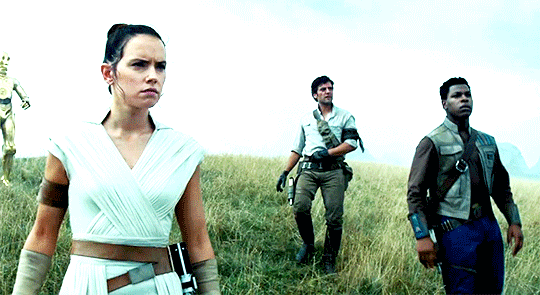
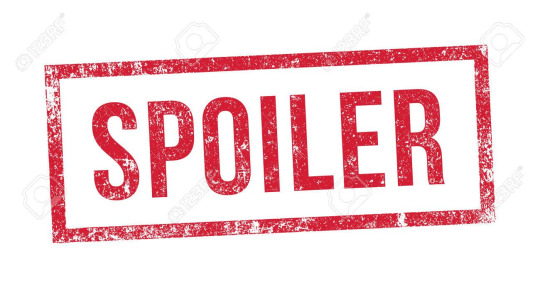
Just as a precaution, I make some assumptions or pull from information I’ve seen around the internet. Some of these MIGHT turn out to be close to canon, so if you want to avoid anything, just steer clear of this post. I’m trying not to theorize too hard, and thus avoid spoilers myself, so I don’t know anything with any solid confirmation, so I could be wrong. Just wanted to cover my bases!
Without further ado, here’s the list!

1. I think I’d retcon out the idea that Luke would ever hurt Ben as a padawan. The general characterization of Luke felt very… off in The Last Jedi, and I wasn’t sure why the writers went in the directions they did for that.
I’m not saying Luke can’t have a darker side– we know he struggled with a call to the Dark side during his training and feared it would overtake him– but the idea that he’d go as far as to even imagine killing a sleeping child, much less the son of his two most beloved people in the universe is… weird. And wrong.
So I’d retcon that out with it being a false memory planted by, let’s say, Snoke or Palpatine, in order to create a rift between them and bring Ben to the Dark side. I think that would make a great deal of sense, frankly, and bring some much-needed closure and relief to the idea that Luke would ever hurt someone so defenseless.

2. On a similar note, while I understand that the thesis of TLJ was “making mistakes and learning from them”, I felt like most of the “mistakes” engineered into the movie didn’t actually make sense for the characters making them. Poe being “selfish” and “glory obsessed” doesn’t at all match with what we’d seen of him in TFA, nor does it match with any of the extended (and canonical) material about him.
He left the Republic Navy because they were too accepting of the idea of sacrificing their soldiers. In the military, that’s called “acceptable losses”: the amount of cannon-fodder that the military’s willing to wave off and accept as the “expected amount” of dead soldiers. If that idea enraged Poe enough to leave the Republic Navy, why would he be so accepting of the same idea for the Resistance? As far as I’m aware, the only life Poe is ever willing to sacrifice is his own; he wants everyone else safe. So why write him like he doesn’t care?
Here’s a direct quote about him from his official Star Wars Wookiepedia entry:
“… Dameron developed a strong sense of commitment and duty, but had trouble with the line between his commitment to the Resistance and the commitment to his comrades, willing to disobey a direct order from his superior, General Organa, to make sure that the Millennium Falcon safely left Starkiller Base before its imminent destruction.”
Oh, yeah, that definitely sounds like the kind of guy to blindly let HUNDREDS of his comrades die. Yeah. For sure.
And then to act like he’s a bad person for not trusting a leader who isn’t making themselves clear in a time when clarity is of the utmost importance? To act like he’s a narcissist for trying to take the lead and help as best he can in a chaotic and, for all intents and purposes, leaderless situation? To frame him like he’s a bad guy for not trusting Holdo immediately, or acting like his distrust comes from a place of sexism or self-interest? Absolute rubbish.
So while I can’t retcon the whole “insubordinate bad listener self-obsessed narcissist” behavior that got written into TLJ, I’d try my best to re-contextualize Poe’s frustrations that he expressed in the film by showing why it would make sense for him to take the lead, to demand answers, to do his best to destroy the Dreadnought.
For example, showing why it was important to take down the Dreadnought: he’s constantly concerned about civilian casualties at the hands of the First Order. With a Dreadnought still active, millions of people could be killed at the First Order’s whims; by taking the ship down, he saved millions of lives.
Another good way to dispell the idea of him as a self-centered hotshot willing to throw away lives is to show just how much he values the lives of others and wants to keep them away from harm; show his own self-sacrifice. Show him being willing to take the damage to protect someone else. Show him telling someone to get behind him, to stay safe, telling them “I’m not going to lose you, too”. I think that would be a helpful step away from the perception of him as a glory chaser; show that his self-sacrifice is genuine.
Honestly, I’d put so much effort into fixing the fallout from the Poe mischaracterization that I could go on forever about it, but I’m sure you all want to read other stuff, too, so let’s move on for now.

3. Absolutely retcon the shit out of the idea that the Force connection between Rey and Kylo was anything more than platonic or an intervention of Snoke. Sure, you can indicate that there’s still a lingering connection, but clarify that it’s more about the battle between the Light and the Dark, and the inherent connection that such mirror images will have to each other, but don’t get it twisted as some kind of galaxy-spanning love story.
I’d put a lot of emphasis on Rey clearly expressing frustration with Kylo and saying “He’s failed himself. His pain is his own choice now; I tried to help him, but he rejected it, so it’s up to him to stop himself or we’ll do it for him” or something to that effect. And having her definitely avowedly denying any kind of “attraction” out loud. That’d be nice.

4. In a parallel train of thought, we gotta talk about Rey’s parents. While I’m certainly fine with the idea of Rey Nobody, because it’d be so great to have a Star Wars story where someone NOT from the Skywalker bloodline is just as strong as one of them, and is just as worthy and important, regardless of their bloodline or heritage, I’m also concerned that leaving her a Nobody would give credence to all that bullshit Kylo was spewing about her “not mattering” to anyone but him, ugh.
And it’d leave a door open for R*ylos to be like “WELL THEY’RE NOT RELATED SO OBVIOUSLY THEY CAN HAVE SEX!”, ew.
So we’d have to give her some kind of actual backstory, and finally clear up what that is. It’s not something I actually want to do all that bad– I’m genuinely totally happy to not know everything about Rey’s parents, and the story would be fine without ever knowing anything about them– but I feel like so many people would demand it, and ensuring that Rey and Kylo are somehow related would finally put a cork in that insufferable bottle.
I don’t really have any great suggestions for how to deal with it, but I think there’s definitely the potential for a cool twist where Ben isn’t actually Leia and Han’s biological son, but Rey is their biological daughter. A sort of switched at birth idea, if that makes sense, and while it might be hard to believe (wouldn’t a mother know if she gave birth to a boy or girl?), there are lots of ways to work around it, and I think it could be a cool twist, though it does leave the loophole of them still not being related…
Hm. Well, at any rate, I’d have to iron it out with some other brainstormers, but I’m sure there are ways to fully cap off and prevent R*ylo from ever happening. Don’t worry, I’ll name some later in the list.

5. I’d also do my best to take away any lingering ideas about Finn being “goofy” or “cowardly”. TLJ decided to present him as this selfish weirdo more interested in wealth and himself than in the greater good, which was… odd. While he’s certainly careful about self-preservation, he also has a good heart, so I’d do a lot to emphasize his strong, heroic nature, and not just use him as a guy for all the gags to bounce off of. He deserves serious, thoughtful moments, heroic moments, AND silly, light-hearted moments.

6. While on the topic of Finn, I’d also put FinnRose to rest and just… not have that be a ship. I’ve talked about it before, but I’ll summarize my basic issues with it: they just didn’t have any chemistry, it was a very forced and hasty relationship, and it didn’t make sense for either party.
Rose has a problem with hero worship; that much is evident. So why indulge her in it by pairing her with someone she childishly idolizes? Why not have her character arc be about finding her own personal bravery, not being reliant on others or their stories, but forging her own?
As for Finn, I’d love to see him end up staying close to Rey, possibly even beginning to walk the road towards their own relationship (though I do also value the idea of Rey not needing to have any romantic relationship in the saga at all), at the very least as friends.
The whole “what we love” line in TLJ made no sense (except as a shoehorn to explain the validity of R*ylo in future films?), so I’d just have her explain in RoS that she was talking about “what we love” being belief systems that we fight to protect, like defending human decency, freedom, and peace, and that the kiss was a weird, juvenile decision that she’s embarrassed about in the same way one might be embarrassed about a childhood diary entry about a crush. It was just a fleeting moment of weirdness, but now that she’s more grown up and sturdy in her own personality and life, she doesn’t have to rely on the childish ideas of heroes and romance to keep her going.

I think that’s a long enough list of the retcons for now, so I’ll move into things I’d like to see happen in the movie and things I’d rather NOT see in the movie (i.e. things from the trailers that are being hinted at that I want GONE).

1. I’m just gonna get out in front of this: I don’t think I’m gonna like Zorri Bliss. I don’t. I’m really tired of “badass female characters” in that “badass female character” is such a boring stock trope by now. Skinny white woman who engages in violence and is flippant and emotionally removed, oh, joy, I’ll hold for applause. But what I’m really concerned about is the angle they’re trying to push with her and Poe; specifically, that Poe may not be “that good of a person” because he used to hang out with her, and she’s implied to be a smuggler or mercenary of some sorts.
Look, I get it. We don’t like “perfect” characters. I know that I love characters with oddities and quirks and flaws, and who make mistakes. But there’s a difference between that and fundamentally re-working a character so that they’re “not so nice” anymore.
Poe already has flaws to work with and explore. Why make him have a “dark” backstory when he’s already interesting enough? And why make it connected to a “past relationship” with this random new woman?
I’m also concerned about them pushing a romance, which we simply don’t need, especially because it looks like it’s being done to finally quash any perceptions of Poe as queer. Which is just so shitty on so many levels, but I don’t have time to unpack them all.
So what I would do is probably just… cut Zorri altogether. We’re already introducing new characters in this film, and specifically adding Jannah to the roster, and tossing in new characters to an already crowded roster won’t really help. None of them will get enough screen time to properly reach catharsis in their arcs, so we just have to nip the least helpful bud, and Zorri’s seems like it’d be the first one to go, in my opinion.
Maybe she’ll turn out to be great in the film. Who knows. But if it was up to me, I’d drop the whole subplot of her, and making Poe’s backstory a sullied one. I don’t need that.
Instead, I’d use that time to allow the main trio to DO THEIR THING. We need to see THEIR character journeys: not random newcomers.

2. No Bendemption.
This is gonna be a slightly controversial take, I guess, but I think a redemption for Kylo would be kinda hackneyed and forced.
That’s not to say I don’t think villain redemptions are possible, fun, interesting, or worth exploring. But I’m saying that I think this particular one just… wouldn’t work.
Kylo doesn’t seem to be at all legitimately sorry for the things he’s done. He seems to be aware of his choices and capable of making them independently. Sure, the writers might force the idea that “oh, it was PALPATINE controlling him all along!”, but I feel like that would be so counterintuitive to the point of these stories.
The whole point is about choice: who we choose to be, what we choose to do. We can all choose to be kind, or we can choose to be cruel. We can choose to put others first or serve ourselves. We choose the Light or the Dark, and we get to decide what we do with that. Everything we do is a choice, and the Star Wars saga is about becoming out better selves and choosing to help those around us because it’s right.
So making the baddie secretly mind controlled would be… dumb. And hollow. And devoid of substance. So that’s out, not an option (if they want to tell a valid story).
So that just leaves us with Kylo Ren, Ben Solo, whatever, has been CHOOSING to be this way. And while he’s certainly felt pained by it, he also keeps making his choices; he’s now Supreme Leader, and he could choose to destroy the whole thing, leave, fight for good, but he doesn’t.
So he can’t BE redeemed. Because he doesn’t want to be.
I mean, I’d honestly have to write a whole essay on just this singular topic to accurately convey my point, but here’s a shortened version of it:
I think a Bendemption wouldn’t be prudent at this point because he just doesn’t have the time to make a satisfying arc in one movie without it feeling forced, rushed, and out of character. So, to tie off the saga, he has to go out like Vader did: he has to die to be redeemed.
He can either die a villain or die a hero, but regardless, I think he just… needs to die in order to properly close the book on him. It needs to end with sacrifice, and either he sacrifices himself or someone else makes a sacrifice of him. Only then do we reach the catharsis.
And, look, I know the Bendemption is gonna happen. But if I was writing it, I wouldn’t let it happen: he’d have to have his Vader death. At the very best, it could be a noble one. At the worst, he’d die as he deserved to. But it would finally be over.

3. No grey Jedi Rey.
I don’t really love this whole cultural direction we’re taking with our movies where “the bad guys are secretly good and the good guys are secretly bad and the real truth is just to be in the middle!” because it’s so unhelpful.
Yes, extremism is bad and blindly believing any one group is the best and most moral, without ever questioning that, often prevents people from critically analyzing their choices, but it’s not that there isn’t an objective truth in the world; there is. There are objectively good and evil things to do. So we can’t pretend that relativity is universally applicable, because it isn’t.
So having Rey “accept the Dark and the Light” would be… difficult without seeming clownishly college-philosophy-student-y.
While it would be important for her to accept that the Dark can exist in all of us, and that it’s not inherently evil to be tempted or to acknowledge it, the difference is in choice. She shouldn’t be allowed to have the best of both worlds because that isn’t how it works in real life, either.
Indulging in our worst impulses, darkest desires, or lowest cruelties doesn’t make us more “real”, it makes us worse people. So having her “use the Dark side” would also just feel like this weird attempt to allow her to love Kylo or accept evil as “alright because we’re all bad inside”.
This isn’t to say she has to live in a world of harsh absolutes, but rather that she should, ultimately, choose the Light, kindness, and a journey towards making sure that she is keeping herself in check, as well as making sure that she is doing her best work for herself and others.
So I’d write a clear moral line in: anyone can change, yes, but the important part is to change for the better, not just to accept the worst and stagnate in one’s most awful, darkest qualities.
The idea would be lenience by extending kindness, which anyone can choose to accept, not just “you’ve been evil but I love you anyway”. Nah. We can’t just tolerate people’s evil behavior and let it continue: we have to extend the possibility of mercy and tell the person they can come to the Light if they so choose, but we won’t descend to them. They rise, or they fall, and it’s in their own hands.

4. On a less philosophical note, DON’T make Finn, Jannah, and Lando all related.
A lot of the content I’ve seen circling for them seems to imply a familial relationship, possibly that Finn is Jannah’s lost brother, and that Jannah is Lando’s daughter. And, yes, while I’d love to see Finn reunited with his family and given a chance at a happy life… it’d be kinda cringey and bad to imply that the few black characters in Star Wars are all related.
I get that Star Wars is a dynastic story centered on families and genealogies and inheritances. But holy shit, it’s kinda racist to imply that the, like, only three black people in the series are going to be related.
It’s a galaxy full of people.
Not all of them have to be related just because they have similar melanin.

5. As for the overall plot, I think what I’d just want is the final triumph of good over evil. I really need to see that. I don’t need an ambiguous ending, I don’t need a dark one, I need one where the Light wins out, because that’s what we need to see, what we need to believe, and what we need to strive for.
The First Order NEEDS to fall. Kylo NEEDS to be out of power. And there NEEDS to be an emphasis on the value of lives, on the importance of taking care of the people in our universe, and on the belief that good does prevail, even when it doesn’t necessarily seem like it will.
I’m not too bogged down with details– planet-hopping is fine, traveling to new worlds and seeing new people is all cool– but more concerned about the overall message. The MESSAGE is what I’m most interested in. And we all know what my message would be.

6. Oh, and just focus on keeping the trio together. Structurally, I’d just need to see them working as a team; we’ve had way too much time of them apart, so it’d be nice to see how they interact and function as a group. I’d like that.

Anyway, this is just a short-list of things. If I were to actually talk about this, I’d need, like, a whole essay just to unpack my thoughts. Oh, and I’d probably prepare a full alternate script. Just because.
I have plenty of other ideas for things I’d love to see happen, but this is just a list of things I don’t want or things I’d do to prevent things I don’t want. LMAO.
I’ll come back to this idea, this list-ish format of thoughts, after the film is out and after I’ve seen it, in order to talk more about things I’d have done differently or changed (provided there’s anything I would have done differently or changed), but for now, this is just a handful of my ideas about things I’m concerned with.
Let me know what you guys are thinking; I’d love to be able to discuss this and kinda get a feel for what other people are thinking about, concerned about, worried about, or excited about.
0 notes
Text
Power and Magic
Read it here on AO3
Pairings: Loki x Reader and the lightest Sif X Thor
Chapter: 13/104 Magic
Warnings: the usual: sex, death, and violence with light smatterings of misogynoir
Summary: The princes come with their exalted Father arriving amidst a hail of pomp and pageantry all parties would rather forgo. This is war, where men die, their blood purchasing land and peace until it's time for more men and more blood. But your mother adheres to the old rules of hearth and hospitality. The Lords of Asgard must be given their due despite the grim business precipitating their arrival. It is too bad they don't deserve it. There is nothing to recommend him, Loki, Prince of Asgard. He is rude and cold and childish. You try to find some merit in him. You find none. Exactly none. But maybe, after trial and tribulation,
You will.
That pain in your heart dulls when you later see Se’risa dressed in trousers and a tunic, her servant’s smock folded neatly on your bed.
“Mistress Aleene says I don't have to work for her anymore and that Queen Frigga granted me permission to go to school with the noble kids.”
She's unhappy, obvious in the way her bottom lip pouts. She fights her tears and loses when you nod, hiding your bare wrist from her behind your back.
“Princess! Please don't get in trouble for me!”
Your heart breaks when she bows, hand over her heart mimicking what you did for Loki. She’s too young for such things, you think, swearing loyalty or fealty. “Please! Don't trouble yourself for me. I'm just a dirty servant!”
“Oh ‘Risa please don't do that.”
If you had the strength you would have lifted her from the floor into your arms, but after a day’s worth of business and errands you can barely keep upright.
Still, you try. Kneeling and putting her back on her feet so the two of you are face to face.
“You aren't a servant anymore, you hear me? You’re not a servant. You’re a princess just like me.”
“I am not! You are the princess and princesses shouldn’t waste their time or their…”
Se’risa squirms in your embrace to pull at your arm. She holds it between you, staring at your naked wrist like a murder weapon, eyes welling with tears. “Princesses shouldn’t waste their precious things on dirty servants!”
You laugh, it’s your first reaction. Nothing’s funny, you’re just amused she found out so quickly. Or Aleene purposefully told the girl to inflict unnecessary damage. But Se’risa’s face breaks when you laugh, possibly mistaking it as directed at her. Damage control.
“That’s what you’re worried about? A silly bracelet? Do you know how many of these I have?”
One. Only one.
“One for every day of the week. Two for holidays. Three for feast days.”
Se’Risa sniffs. “You’re lying.”
You are, Loki thinks, secreted behind the semi-closed door to your room. And a poor one at that.
He came here after his meeting with his mother. He hadn’t settled on what exactly his intentions were, unable to choose between kissing or annoying you senseless, both scratching the same (well not exactly the same) primal itch in his brain.
He hesitates when he hears the child's blubbering, stopping long enough to go from hesitation to eavesdropping.
He's seen the sum total of the jewels you escaped with. You’re no where close to having something different for every day of the week. And aside from your crown, that bracelet was your finest piece.
“No it's true.” You're too deep in this hole so you keep digging, hoping to find another escape. “One for every day. So it's nothing, especially when compared to you. I have so many bracelets, they mean nothing, and I have only one you, so you mean everything.”
You dab her eyes with your sleeve. “Chin up. Princesses don't stare at the floor, okay?”
Se’risa perks instantly, beads clinking softly with the movement.
“Before I go to lessons tomorrow will you help me with my hair? And I can pick out your bracelet for the day?”
Your heart drops, she just won’t let it go. So you double down, hoping the hole you’re digging won’t cave in on top of you. “Of course.”
Shit.
You don't hear Loki’s soft chuckle from outside your door, nor hear him tell a servant to bring you to his chambers in hour. You're still focused on what tale you're going to tell this girl in the morning, torn between admitting the truth and faking illness as an excuse to avoid getting dressed for the day. Before you have the chance to decide, Loki’s servant knocks.
“My Lady, Lord Loki requests your presence.”
Se’risa makes a face. “I don't like him. He says mean things.”
“He does, but they don't hurt when he says them.”
“Is it because you like him?”
You clear your throat hoping to avoid answering but the girl did witness you kissing him so…
“No, it's because when he says them he doesn't make the words hurt. If he ever does, trust me I'll let him know.”
“But you do like him?”
“Admittedly…”
“Why?”
Oh Hel. You don't even know exactly why, how are you going to explain that to a child?
“I'll tell you when I return.”
Se’risa sneers, makes a disgusted noise in the back of her throat. “Fine.”
**
If your room is palatial by your admittedly narrow standards, then Loki’s rooms span the length and breadth of the world. You could quarter your Cavalry here with their horses and half the palace guard alongside.
“This way.”
The servant leads you down corridors of marble and stone into a sitting room set with dinner for two.
A small round table, lit with crystal candelabras. The plates are gold, covered with domes to keep the food under them warm. A decanter of wine sits ready to pour, two cut crystal glasses ready to receive.
The silverware is actual silver, not that you could tell but it's a damn good contextual guess. You count the knives again wondering why there's a need for more than one before you…
Your hand strikes without thinking.
Your father's dagger! He must have left it out in a moments inattentiveness and forgotten it. You snatch for it, ready to claim victory but your hand slides right through it.
“Shame on you. I'm not sure if I'm amused at your gullibility or offended that you think I'm that stupid.”
He appears in smoke as the dagger disappears into it. His magic smells like the threat of rain on a summer night, when lighting strikes but no water falls. Thor is the Thunder Prince, he sounds the noise that makes the Heavens shake. But Loki is the flash that comes just before, the one you don’t expect, the one that strikes you dead before you even hear thunder’s boom.
You're reminded, you really never forgot, how frightening he could be. But you've never been afraid of him. And you aren't now. He is deadly fearsome but has never once made you feel afraid.
He's dressed well. Black and green sleeveless tunic, long enough to touch the floor draped over a linen shirt with simple black trousers.
You look extremely pathetic by comparison. Leather trousers and a modest linen shirt. You’re dressed for riding not a dinner with a prince.
“Had I known you were inviting me to dinner, I would have dressed better.”
“Next time then, Princess.”
“Next time how about you ask first?”
You’re quick. He loves it. You don’t have to think, you respond. You two trade wit seamlessly.
“Ahh, shall I present myself to your guardian and beg her permission?” He clasps his hands in mock supplication. “Please will you let your mistress come out and play?”
“She'd only tell you no.”
“So the foal doesn't like me hmm?”
“It's precisely because you call her that, that she doesn't. You know her name”
“I prefer yours, Princess.”
He wins this round, but only because you let him, desiring to let the sound of your name like that sink into your ears, uninterrupted by your witty retort.
“Well I’m here, my Lord.”
He escorts you to your table for two, pulls out your chair, pours your wine.
“I half expected this plate to be full of hay you know,” It’s not. It’s some delicious roast boar.
“If this is not to your liking I’m sure we can find you sweetgrass in the stables.”
He’s surprised when your eyes light up, wide and wonder-filled. “You’re people don’t really eat--?”
“No! Half-wit. The stables. Walking is overrated anyway. Put me on a horse and I’ll be just fine. Four pairs of legs are better than two.”
“You aren’t strong enough for it.”
It’s not a question, he knows. He can tell by looking at you.
“I know. But, I will be.”
After dinner, he leads you from the sitting room, past overstuffed chairs and overstuffed bookshelves and into his inner chambers. There’s an armor stand against a far wall, a great gold and horned helm sitting atop it. Staves and scepters lean against the walls. Weapons of very type and shape lay strewn about the floor. He’s carved a very narrow empty space, pushed back the creeping horde of his things to make space enough to navigate through.
His trinkets are fascinating, he’s like a magpie, travelling out among the lands and bringing back the best treasures of the realm.
This is Loki’s heart, you realize. This place. You’re here in his heart and it beats with all the magic in room.
Something snags at you, a burr or thistle pulling at your consciousness. Why are you here?
You ignore the feeling, choosing to run your fingers over his collection of ceremonial knives.
In the middle of the display, your dagger sits in a place of honor. You purposefully ignore it, shooting at your host a glare that makes him laugh.
“That one is actually yours, go on, take it.”
You cluck your tongue. “Fool me once.”
He isn’t lying. That one is the genuine article. He reaches around you, bringing him close enough to kiss and picks up the knife with his hand, it doesn’t pass through him.
You grumble a string of curses in your tongue and the common one, so foul even Loki’s scandalized.
But he laughs, it's light, birdlike. It doesn’t rumble the belly or throb in your blood the way your father’s laughs did. His sits high, on unreachable branches, ready to fly away if disturbed. He doesn’t truly laugh often, so when he does, it doesn’t linger, like snatches of birdsong. There is no ice in him when he laughs unguardedly.
Just magic.
You’re quiet for a long time as you explore his things. You ask him questions and he answers. Where this came from, what does that do. As he answers your questions, he tries to figure the answer to his own. Why did he bring you here? There’s the superficial answer, better put, the lie for why you’re here. But the question remains.
And you ask it.
“Why did you bring me here? Really?”
You turn to him, you want to touch him but you don’t, unsure if you’ve earned that privilege yet. “Dinner was lovely and this place is, it’s magic. And as wonderful as all this is, I don’t think you brought me here to show me your toys.”
He didn’t.
“Close your eyes.”
That wasn’t the answer you were looking for.
“What do you want from me?” You persist.
“For you to close your eyes, horse girl.”
“Loki. Tell me.”
“Princess, trust me.”
He hasn’t given you a reason to. He doesn’t expect you to. But you take a deep breath and close your eyes anyway, gifting it to him, making him question everything all over again.
She deserves better.His mother echoes in his head.
The spell is quick, over and done in a few heartbeats.
“Open.”
There is a collection of jewelry in front of you. Bracelets. Several velvet cushions full. One for every birthstone. One for every precious gem.
“What? What are these.”
He takes your hand, the one missing the braided loop and guides it to the piece in the top most, farthest left corner. “This is for Firstday.” He moves it over to the right. “And Secondday.” He moves you again. “And Thirdday.” Down the line marking the days of the week. In the second row there’s two bracelets piled on top of each other. A row below that, there are three.
“You heard me.” You gasp.
“I did. ‘One for every day.’ And so forth and so on.”
You draw your hand away from his, pull it back like he burns you. “I can’t take these.” You’re answer is quick and finite. Immutable. You will not take any of these with you. You stutter and amend yourself, trying to salvage your manners. “I mean, thank you. Thank you. This is...I’m in your debt again assuredly but I can’t.”
“Why?” No accusation or hurt in his question. It is just a question.
“This is too rich a gift Loki. I can’t take it.”
You’ll be in his debt, you’re already in his debt. This is too much kindness, and too much kindness is never offered freely.
“These kinds of things, you should give them to…”
You are the Princess of a small kingdom. Your wealth and prestige can't match that of Asgard but being royalty and a woman besides, certain universal truths will out.
Nothing is given to a Princess for free. There's always a motive, something to gain.
Back home, men and women vied for your affection. They wanted the throne next to yours or your favor which would assure them rich rewards. True friends were rare beyond the obligation of Captain and soldier. Fa’Rey--before her dagger proved you wrong--was the only one of them you really trusted.
You left no lovers behind, you're pretty sure you don't even know what that kind of love feels like. So why all this?
“You should give them to someone special. Someone who means something to you. Not me.”
One kiss ago, Loki was a stranger. He saved your life twice over, he restored Se’risa to you. He was an infuriating bastard who you couldn't stop thinking about. But he was still a stranger.
One kiss later, he still is. And you still can't stop thinking about him.
But he's still a stranger.
“You’re a stranger Loki, I don’t know anything about you and you don’t know anything about me. All I know is...that kiss was really good and I’d like more. That’s all I know. And I have no idea what’s going on in your head, if you even feel...What do you want from me, Loki?”
Everything. He wants you, to kiss you again like he did yesterday, but he’s greedy. He wants more. Loki is selfish and gluttonous, he’s had a taste and now he wants you whole. He could ask, or offer, or imply his wishes, leave his door open for you to walk through at any time and for you, his door would always be open.
But with the way you look at him, the way you trust him so earnestly, he knows it would never just stop at his bed. He’s greedy, he knows the depths of his faults. He wouldn’t stop until he’s got your heart in his jaws. And you can’t know that, you can never know that.
“She deserves better.”
“You misunderstand me, none of this is for you.”
Your heart drops, makes a new home around your ankles. “Oh.” You try to put it back in place, salvage some of your pride. “Then why?”
“You’re a poor liar. The worst in fact.”
“I don’t under--”
He interrupts you. “So here’s a bracelet. One for every day of the week. Two for holidays. Three for feast days, so you don’t have to lie to the poor little filly anymore and my reputation remains intact.”
He’s satisfied when the smile returns to your face, he’s held off the truth for a little while yet. He’ll tow the line for now as best he can, keep the beast at bay.
Your heart lifts, somewhere in the clouds now. “Why didn’t you say so.”
He forgets himself, his turmoil, the moment your lips are on his again. He simply forgets.
There’s no doubt this time as to who kisses whom. You wrap your arms around his neck, close your eyes, and it’s magic again. Magic that sparks between you like lightning. You smell rain and leather, you hear thunder in the low groan that rumbles either in his chest or yours, you can’t tell anymore.
Yes! This is what he’s craved all day. This. Just like this. You close and soft and yielding in his arms. Not too much, he warns himself. Savor this, make it last as long as you can. Maybe it will be different this time. Maybe you’ll be different this time.
He keeps you close when you part, won’t let you get too far away so that he can’t kiss you again.
“You saved my ass again.”
“And what would you have done princess, had I not?”
“I considered faking sick.”
“Keep your boasts more modest next time, or you will drain my treasury.”
You laugh and kiss the corner of his mouth.
“Why didn’t you just get me my bracelet back?”
You watch him select one, thick gold leaves studded with smaller emeralds. You give him your wrist and he slides it on, fitting as though made for you.
“It’d be easy to return your bracelet to you. So I didn’t. Besides, I suspect your pride is so damned prickly you'd figure out a way to pay Aleene with another one of your jewels and I’ve got better things to do than retrieve family treasures from petty creatures like her. This is will do.”
“Yes, it will.” You echo, and you aren’t talking about the jewelry.
WHY DID WRITE THIS GARBAGE??? (That I love so freaking much it defies belief)
#power and magic#loki fanfictio#loki x reader#loki x black!reader#mcu fanfiction#cheesy#so much cheese it should be france
5 notes
·
View notes
Text
So... I see the Defenders fandom is starting to have some opinions about the writing. And I’d like to offer my own two cents re: Karen and The V Word. Sadly, it’s not vagina. (Okay but, The Defenders needs 9000% more Sapphic women tho, I’m just saying. Do we have any canonically queer characters come to that??? Thoughts for a different post)
The V word is of course... vigilantism.
And MAN do I have some FEELINGS about Matt and Karen’s interactions, and Matt and Foggy’s interactions come to that, throughout Defenders. Now, I’ve read some good defenses of the writing and I don’t necessarily disagree. This isn’t so much a bashing or even criticism (I lied: it’s a little critical) as just... an exorcism of my feelings about what happened. And my feelings are, essentially... WTF.
Karen and Matt run into each other in the first episode of Defenders and they were... fine??? And that, RIGHT THERE, is what bothered me. WHAT. IN GOD’S NAME. JUSTIFIES KAREN BEING FINE WITH MATT??? When we ended Daredevil season 2, Karen was pissed at Matt, and this was BEFORE the mask reveal. She was pissed at him for lying to her, for patronizing her, for betraying her and Foggy and everything Matt PROFESSES to care about. She was justified in being angry with him. Again, this is all BEFORE the mask reveal. Now they don’t show us Karen’s reaction to the mask and, to be honest, I'm kinda upset with that because it would have contextualized where Matt and Karen are now A LOT better. And, honestly, I think the writers kinda fucked themselves by NOT writing that scene, even for themselves, and instead assuming everyone’s feelings about it and assuming where they would be after X amount of time passed. I’m also annoyed that we have no idea how much time passed between end of season 2 and Defenders because, again, it would make reactions a LOT easier to read.
But, regardless, this is where we are, this is what they gave us, and we’re supposed to believe that enough time has passed that Karen and Matt are on speaking terms. And you know what, I believe that. Because, for better or worse, Foggy and Matt are Karen’s only friends in New York, they are her lifelines, and as mad as she has every right to be at Matt, she couldn’t rip him out of her life entirely; it would hurt her too much. But, being on speaking terms with someone and forgiving them are two VERY DIFFERENT THINGS. And that’s what I felt was missing from their first interaction. Where was the caution? Where was the underlying bitterness, the unresolved anger? Now, part of that is presumably explained by Matt NOT ONLY dropping the truth on her but also saying “I’m retiring” in the same breath. But that DOESN’T FIX WHAT HE DID WRONG. I’m sorry, she might be relieved he’s not endangering himself anymore, she might be gratified he finally told her the truth, but that doesn’t change the fact that for MONTHS he refused to trust her with this information, refused ANYONE’S help, trust, or love, and DID run around taking the law into his own hands and putting himself at incredible risk. Which, besides being hypocritical, is a SLAP IN THE FACE to anyone who cares about him and to his ‘real’ life. Matt, if you got hurt or worse, who would defend your clients? Who would take your cases? If you really believe in being a lawyer, WHY are you throwing that life away???
To sum up, how ever much time has passed, it’s not enough to undo all that Matt’s done. Karen has every right to still be boiling mad at him, civil, courteous, even sympathetic, but mad at all the hurt he caused, the worry, the insult, and the goddamn hypocrisy.
And that was 100% missing from their first encounter. The justified resentment, distrust, and pain show sup more in their later interactions, but I, for the life of me, couldn’t work out why Karen was being so LENIENT with him or TRUSTED??? HIM??? after he had lied to her SO much. And that’s what I LIKED about Foggy, what I ALWAYS like about Foggy, Foggy knows Matt FAR too well. So Foggy doesn’t take any of Matt’s bullshit. Foggy always keeps him at arm’s length, takes his promises of change with a grain of salt. Foggy doesn’t trust Matt as far as he can throw him because he KNOWS Matt and Matt lies. He lies, especially to the people he cares about most and Foggy knows, from long exposure, there’s nothing anyone can do to change that in Matt. And that’s an honest relief because it means Matt can’t hurt Foggy that way anymore. You can’t break trust that isn’t there. And that makes me sad for Karen that she SEEMED to genuinely believe Matt, which... I guess could be explained by not knowing him as long as Foggy has, but... fuck, Matt put Karen through hell. He lied about literally everything. Even the kindest, most forgiving people in the world would hesitate with Matt again. And Karen is a very canny person, she’s been through a fuckton herself. It would strike me as a normal self-preservation instinct to not want to give Matt a second chance so soon. Hell, look at Foggy! Foggy, the kindest soul here, who has endless second chances for Matt, he still doesn’t buy that Matt wants to change.
And here comes the addiction metaphor that I gather people have... mixed feelings about. Personally, I think it robs Matt of autonomy to describe his relationship to vigilantism as addiction. I think it’s a full, free, conscious choice he makes every time. Sure, he’s compelled by his sincere beliefs about justice, but that’s not addiction; I don’t think he “needs” it. And if you believe it is a free, conscious choice, that warrants a little less forgiveness from everyone. Acceptance, yes, but you don’t have to forgive someone for something they will choose to do regardless of what you say. That’s their choice, that’s the point. There’s no excuses for it.
And this also makes Karen’s willingness to put the past behind them and invest in Matt’s future odd because... perhaps she doesn’t see it as a choice. Which would be VERY out of character from where she was in Daredevil, especially re: Frank, but... perhaps she wants to believe something other than what she knows to be true. After all, her experiences with Frank have sorely tested her beliefs in literally everything. Not least of all Matt. And I could buy that, buy that she’s trying to delude herself. That would also pair with her later reaction when Matt comes to take her to Misty’s office and Karen finally lights into him a little. It still feels... distantly hypocritical to me, given her presumed ambivalence about vigilantism, why she’d be so disappointed in Matt when she’s not even sure IF she disagrees with vigilantism in principle... I felt her reactions lacked that nuance and that telling but that was so PRESENT in the Karen of Daredevil season 2, but seems all but disregarded here.
But, as someone pointed out, it’s entirely possible that Karen really doesn’t know as much as the audience does, or as much as the audience thinks she knows. Because The Defenders refused to didn’t show Karen’s reaction to the mask, we can never know for sure what Matt DID tell her. If he truly told her EVERYTHING, or if he was still hedging his bets as fucking usual. So it’s entirely possible that Karen hasn’t put all the myriad Daredevil pieces together yet, or that she hasn’t had enough time to truly digest what Daredevil means to Matt, if not to herself or anyone else. And I could buy that, I could buy that Matt, in his infinite wisdom, was tight-lipped about his feelings as usual and if he, like a genius, announced the whole Daredevil thing was over at the SAME TIME he tells her it WAS a thing, Karen might internalize what Daredevil means a lot differently than we all have. It would also credit her willingness to believe him if he only told her to tell her it’s finished. It makes Matt a COLOSSAL manipulative dick, but that’s not entirely outside his realm of behavior. So that makes me feel a little bit better about this trashfire questionable writing if we suppose this different context for Karen. Now, it’s unfortunate the writing is forcing us to assume a context they haven’t bothered to fucking write, but they perhaps felt that the context would be self-evident from the written dialogue and reactions. SOMETIMES reverse-engineering is intentional. If it was, I don’t think it was particularly successful this time, but I'm willing to credit it as a failed idea rather than no idea.
So that’s my two cents about the Matt-Karen-vigilantism triad. It’s still sad to think that Karen is depending on false information or at best a lack of information, but it would explain why her behavior lacks all of the outrage due to it and all the nuance it was shown to have in season 2 of Daredevil. I still believe that Karen is on the fence about vigilantism and I do think this will get explored more in The Punisher series, though perhaps not as much as we might wish, depending on how much she’s actually in the show. I really don’t want the result of all this to be a disservice to Karen Page because I love Karen Page and the Daredevil show at least has done SO MUCH and so WELL with her and it would be SUCH A SHAME to see them retract some of their good work with her. So we shall see, in the meantime, I’m hopeful for more coherent characterization in the future and I’m willing to use the above justifications to write The Defenders off as a lot of bad lies.
Hope this has been a good read!
#Karen Page#The Defenders#The Defenders spoilers#Gotham or Hannibal or Daredevil#The Punisher#vigilantism#Matt Murdock
4 notes
·
View notes